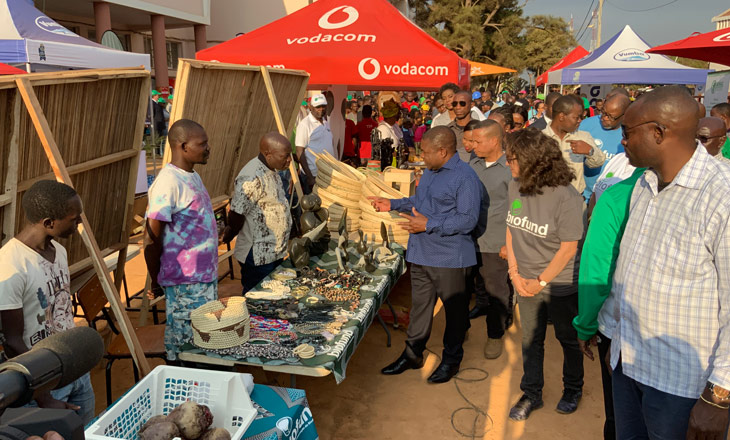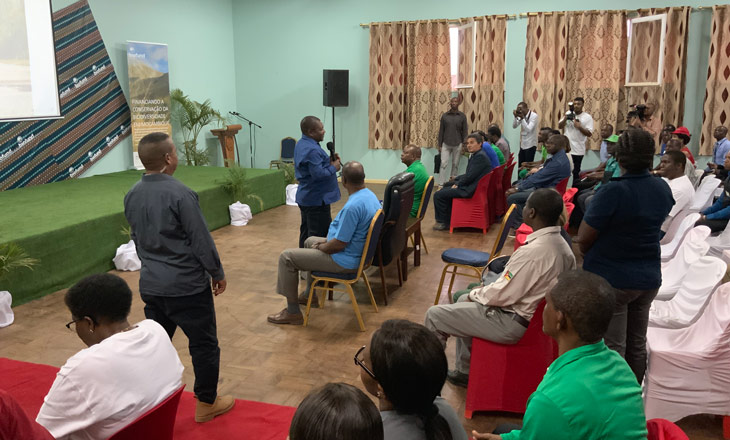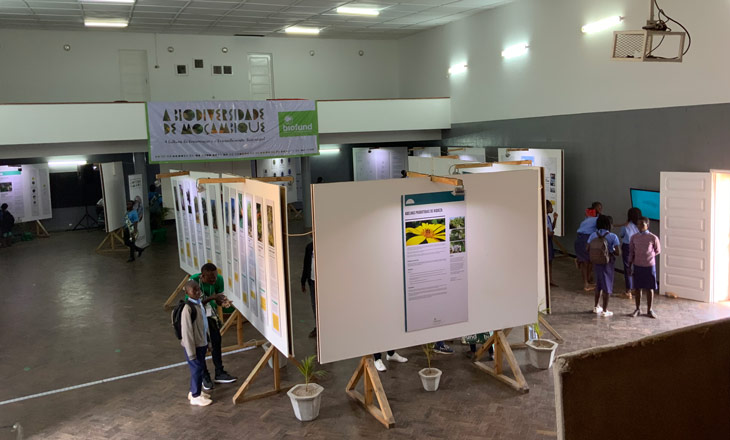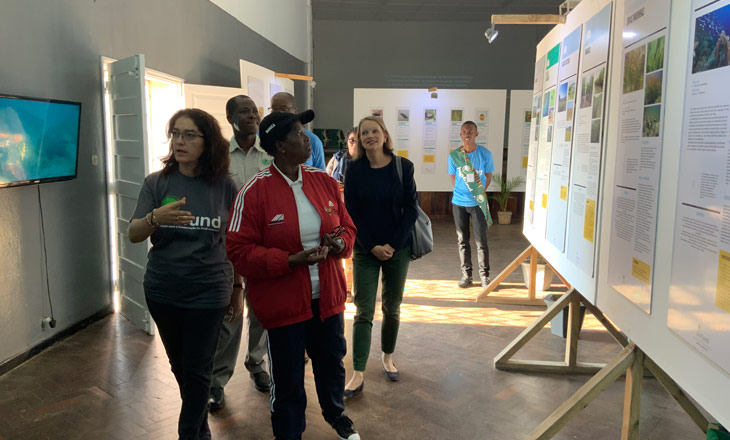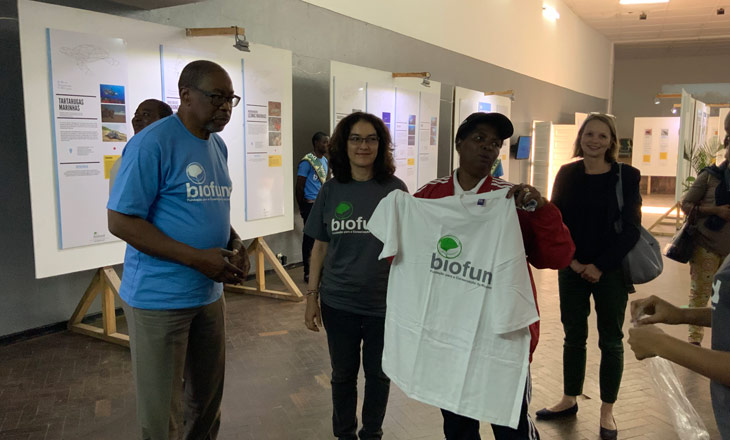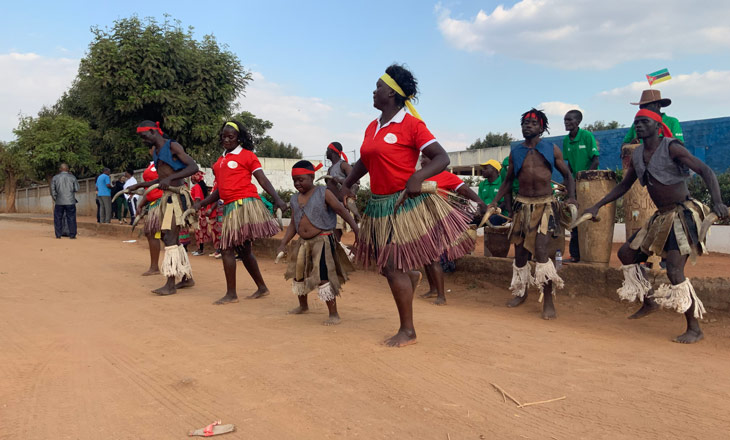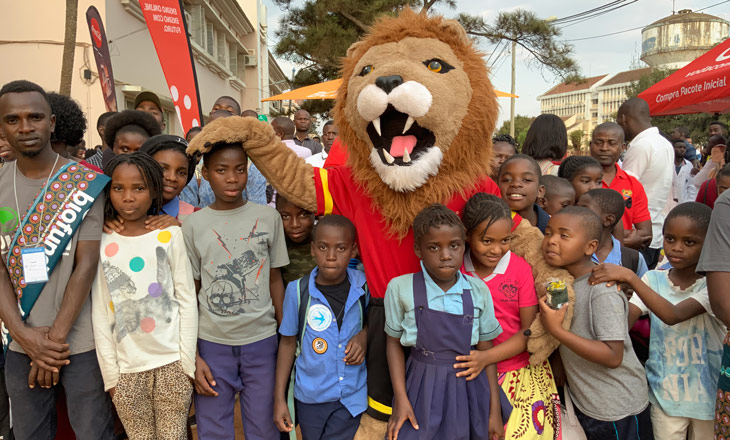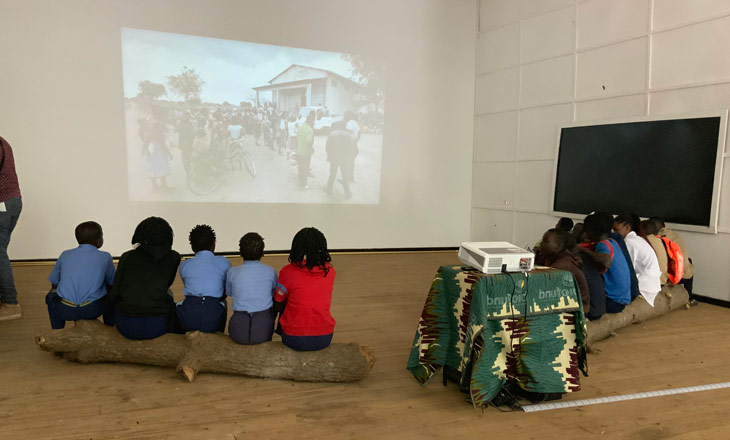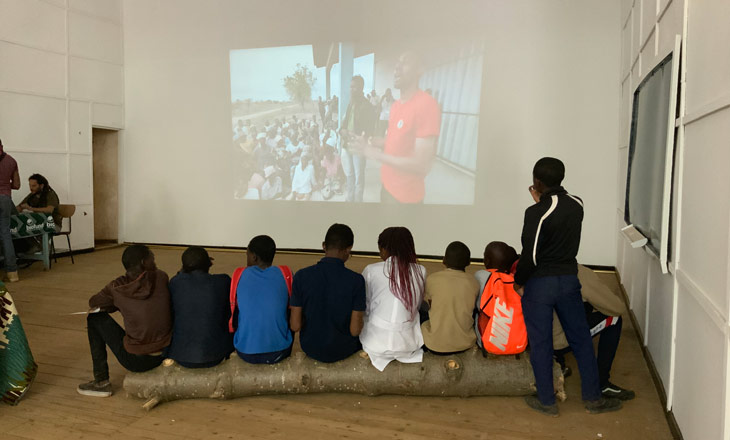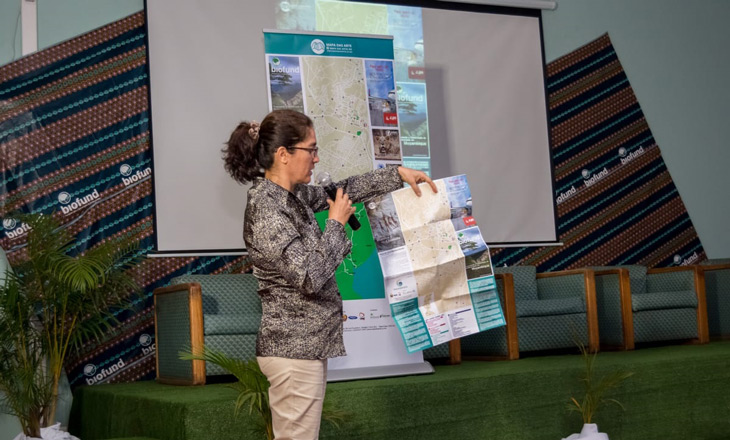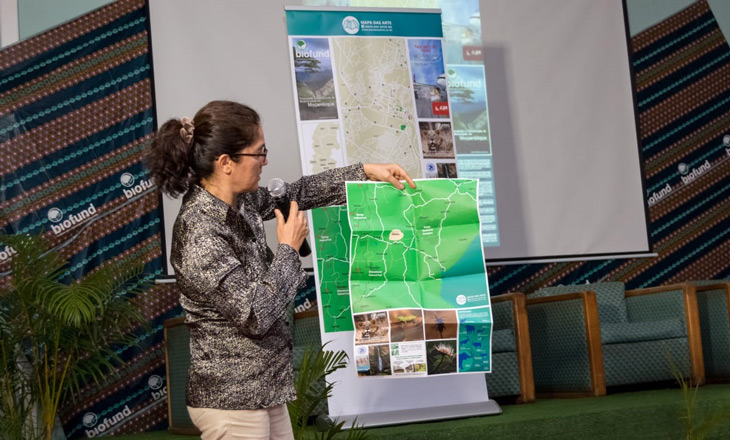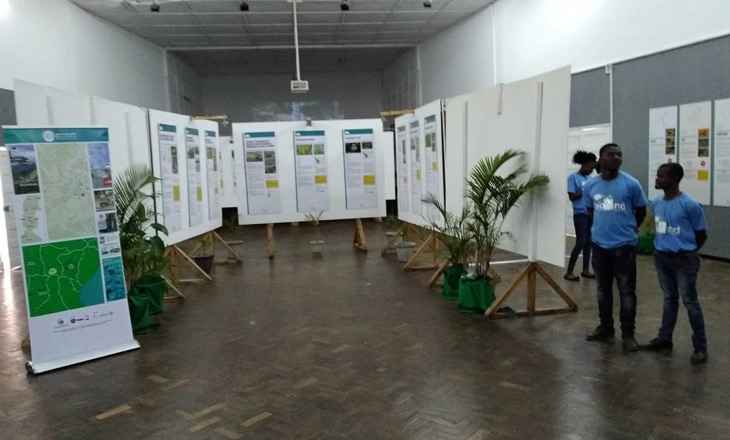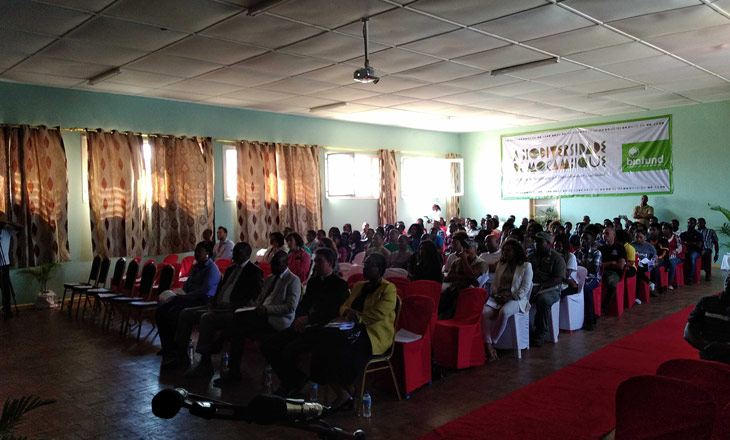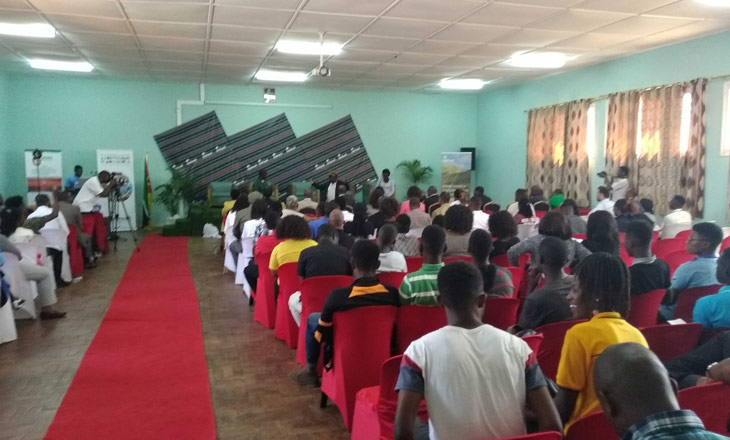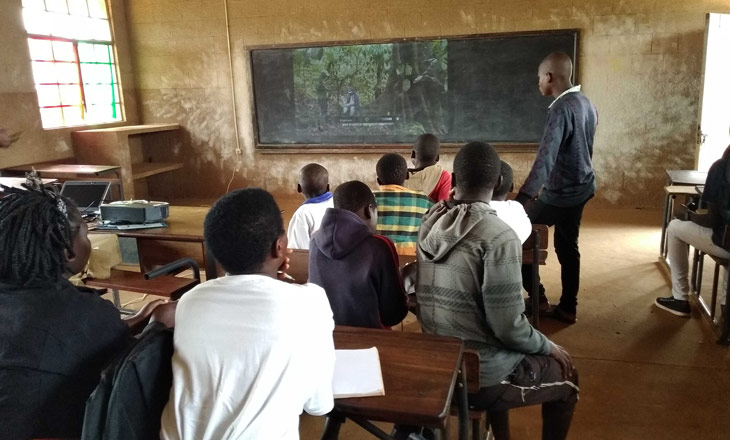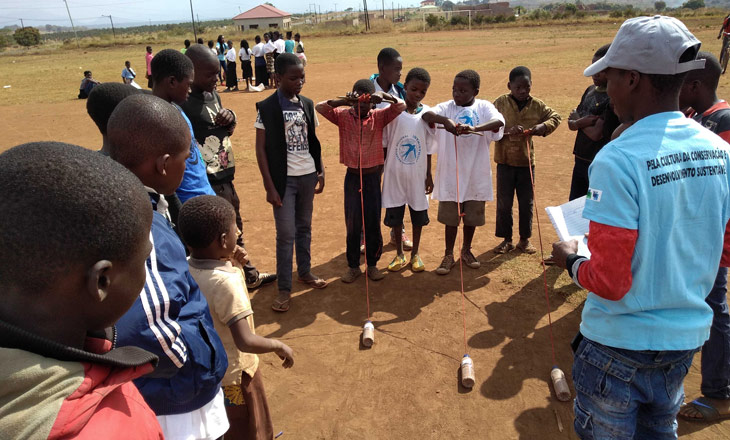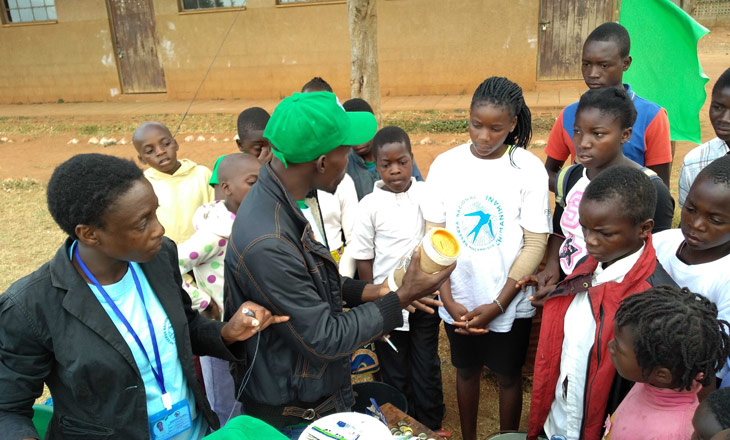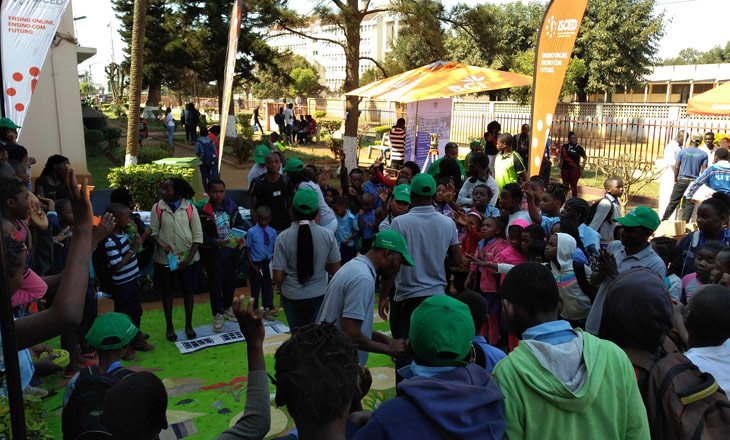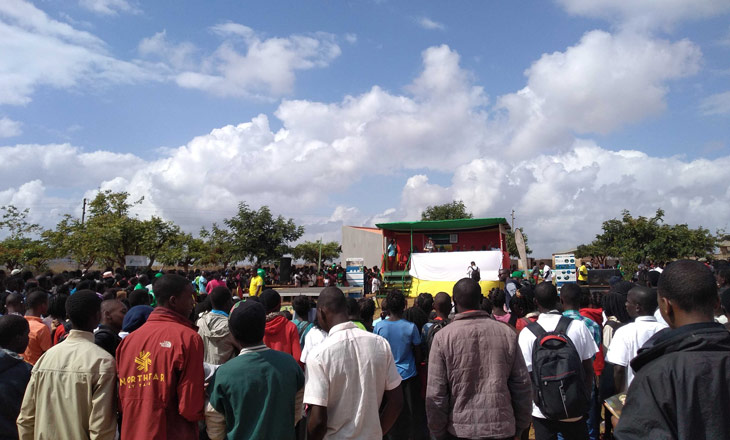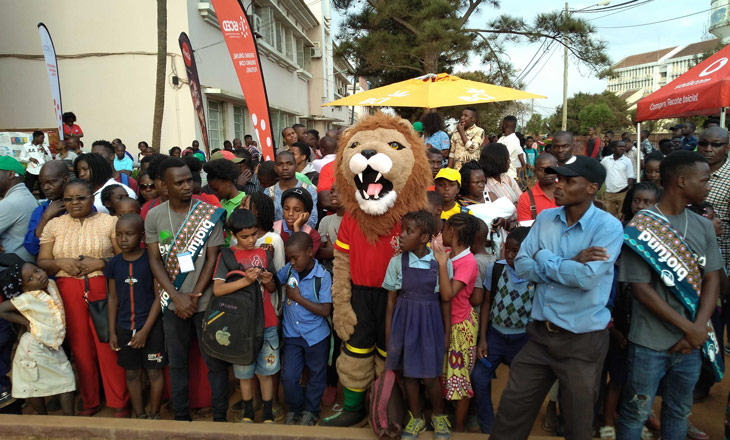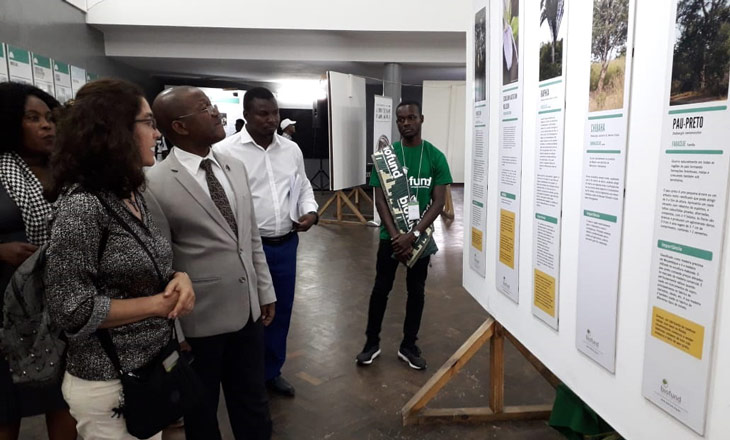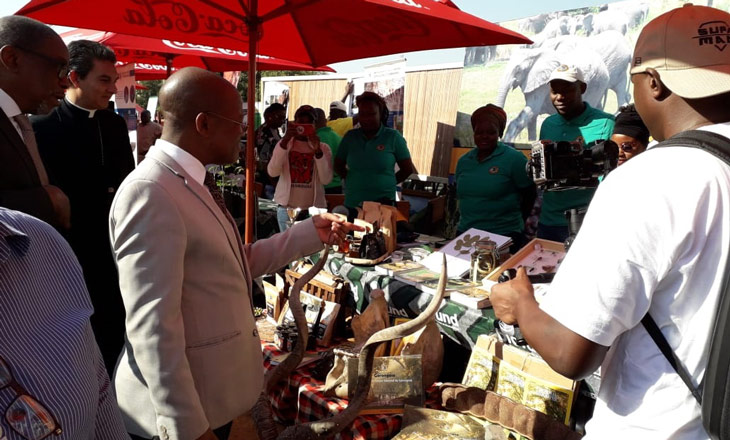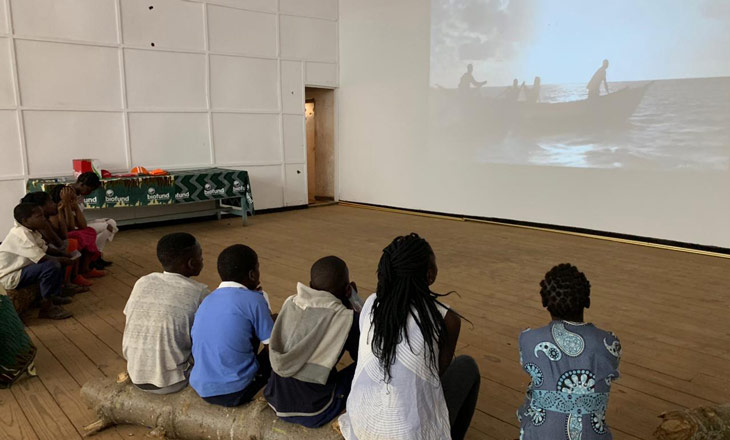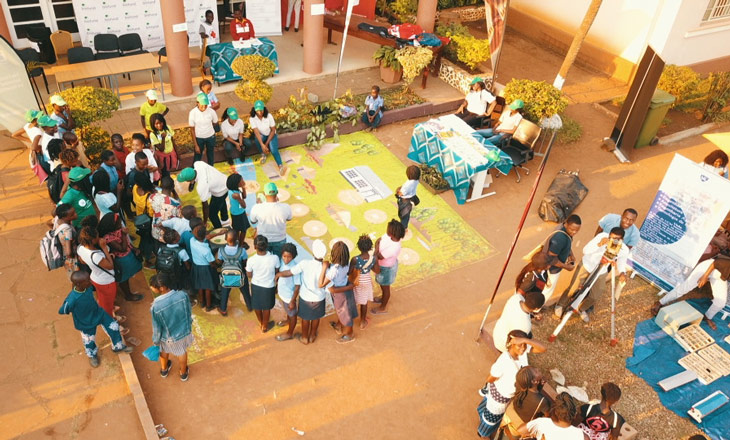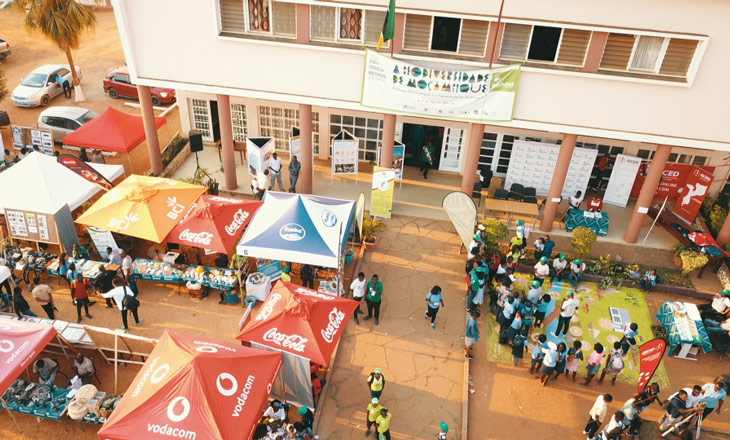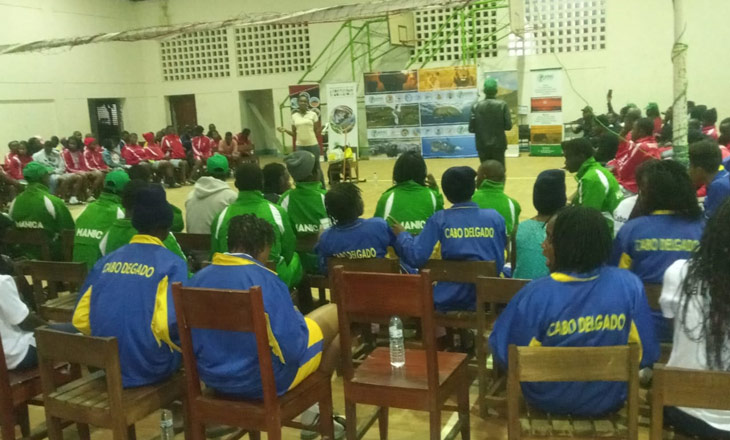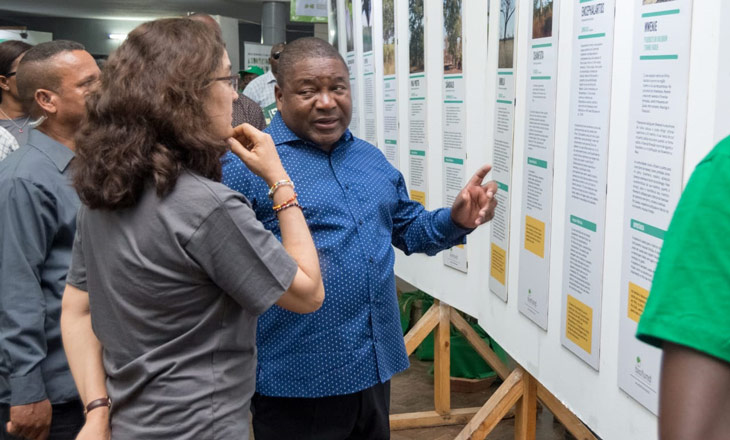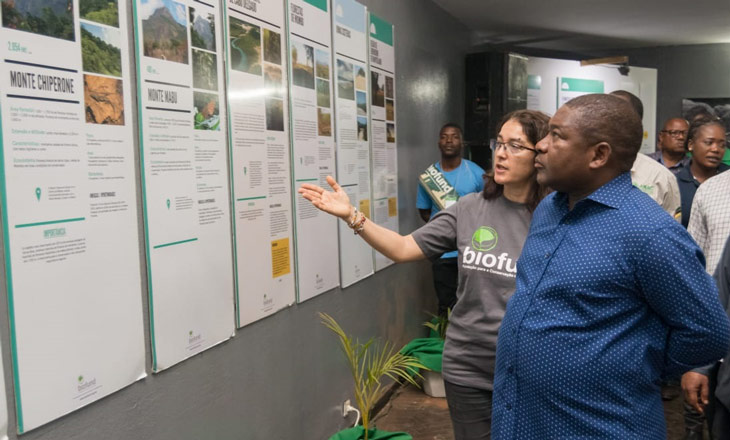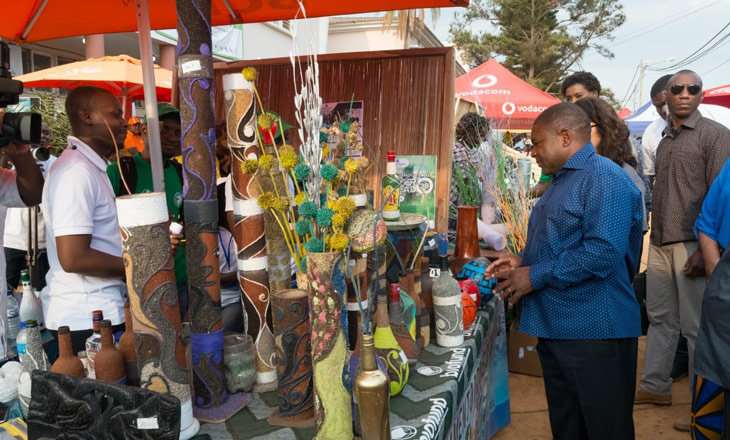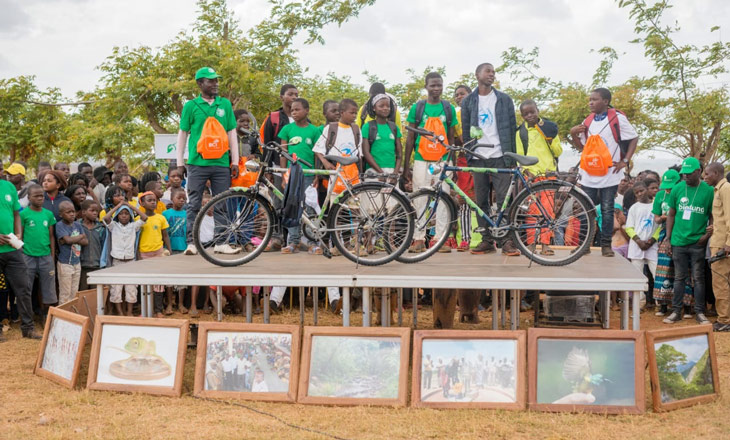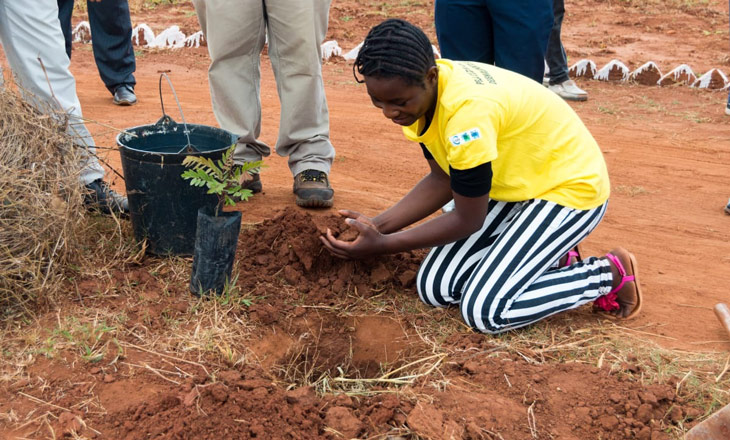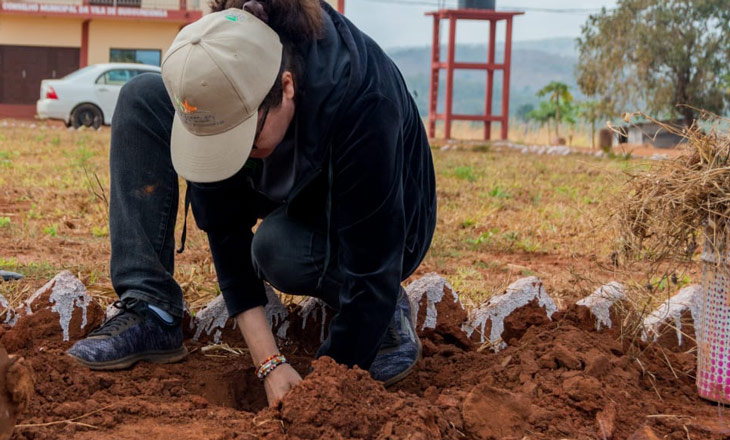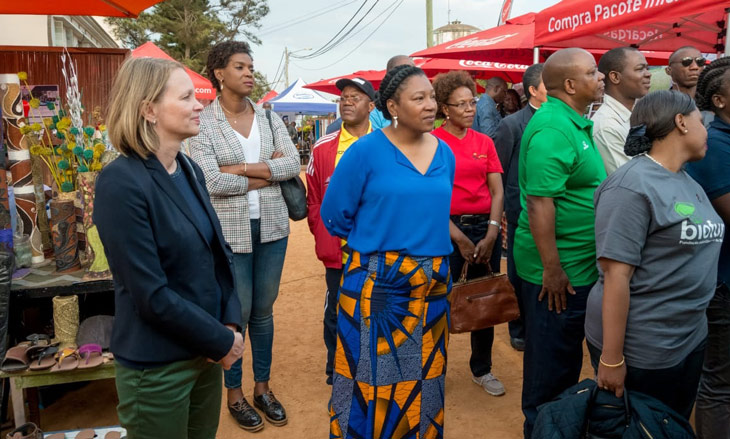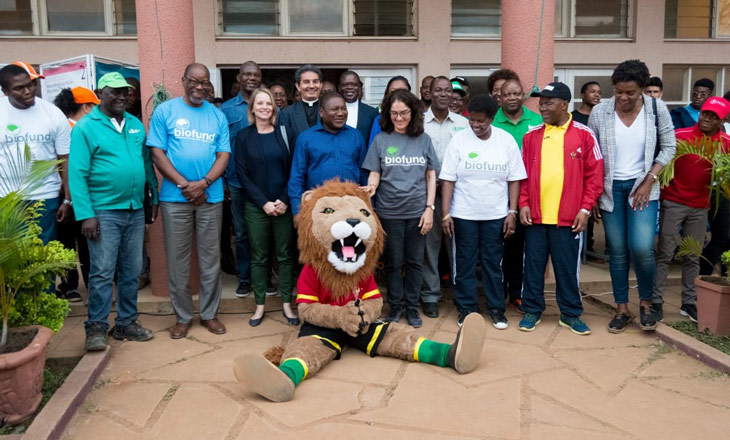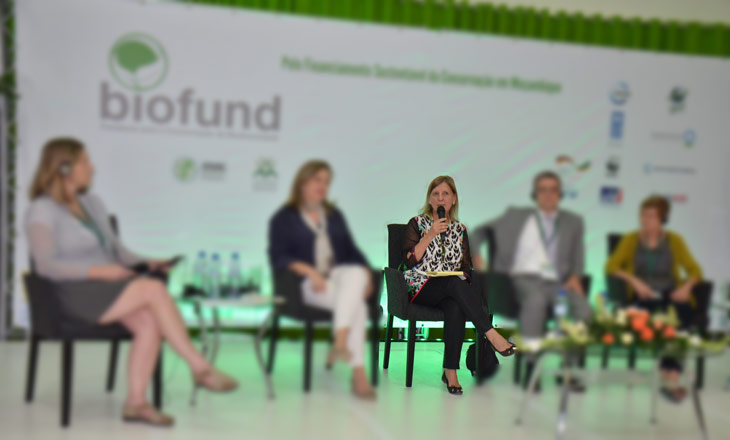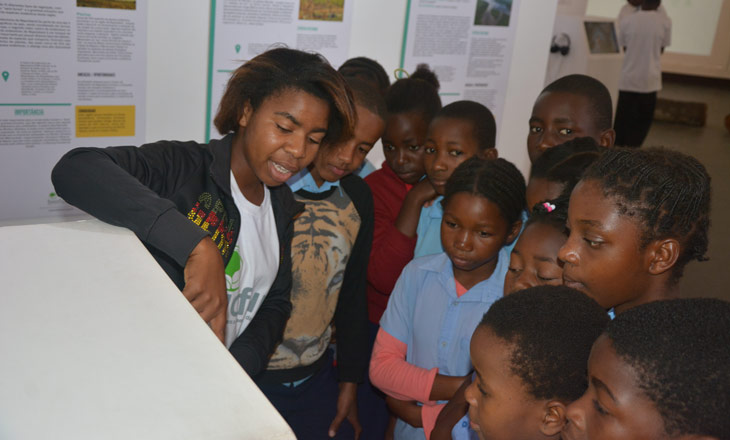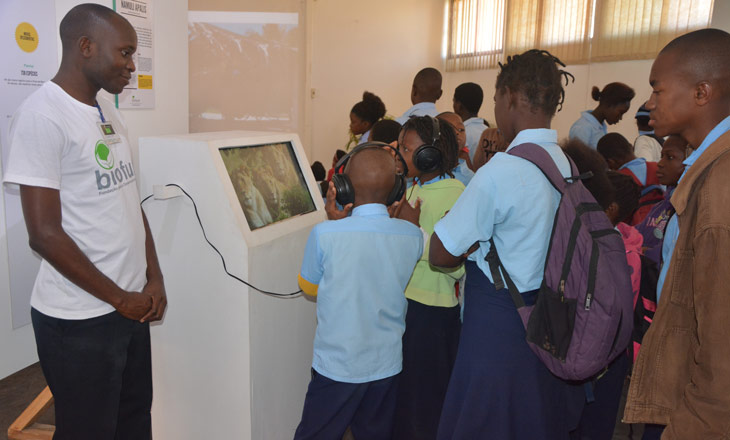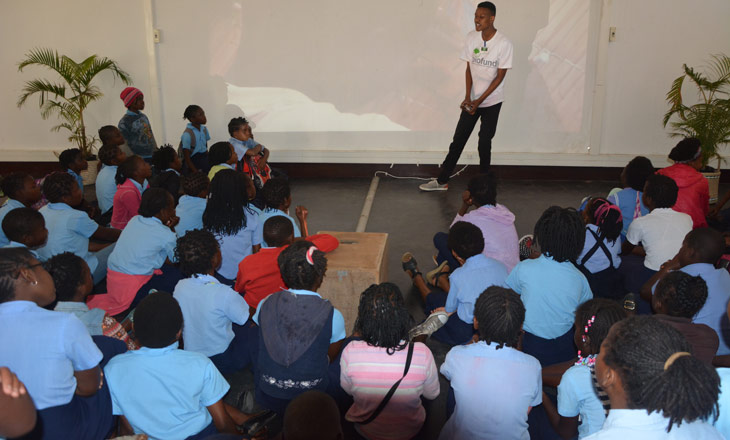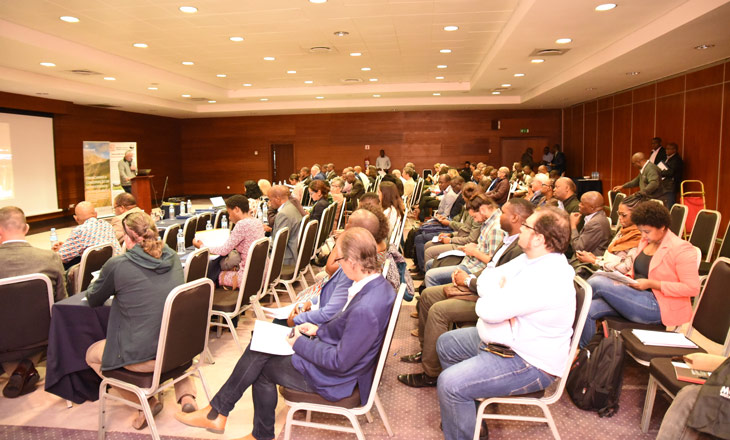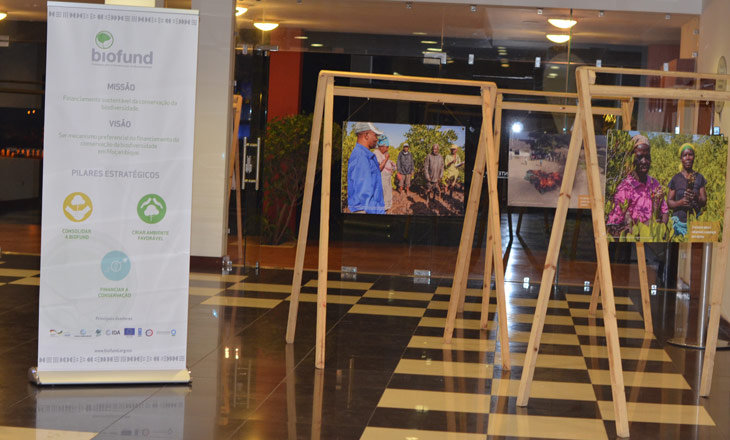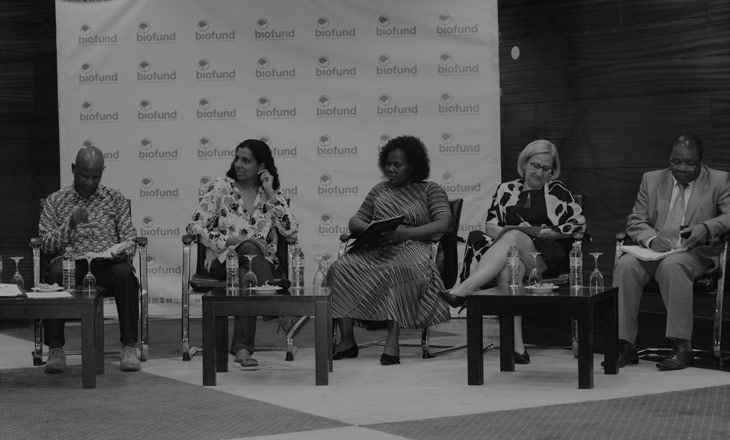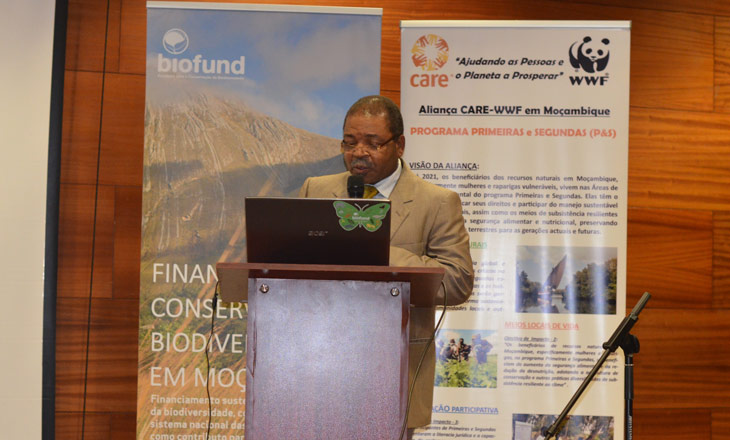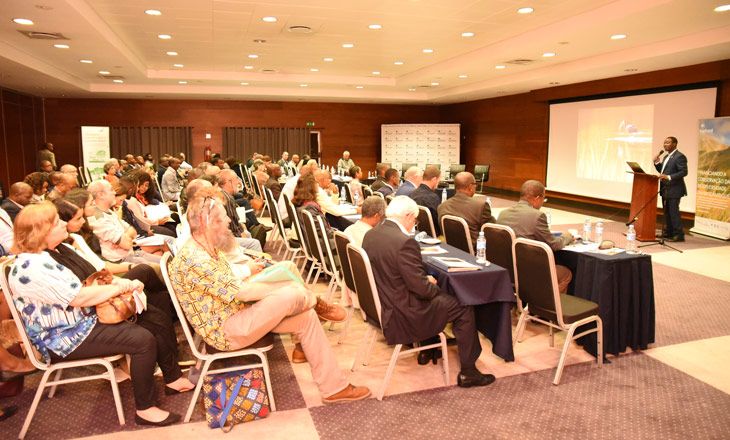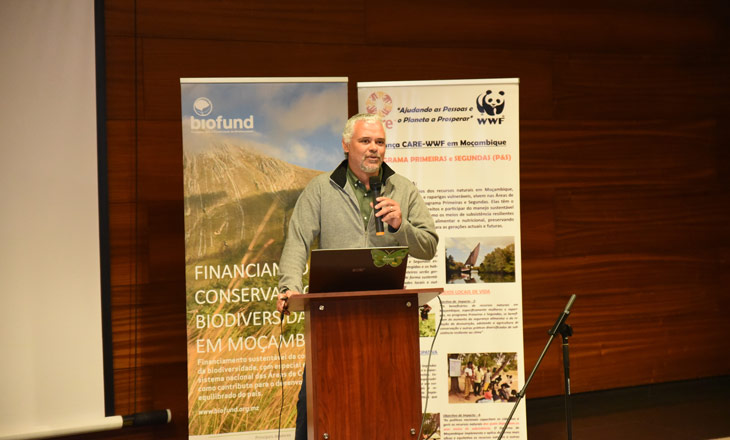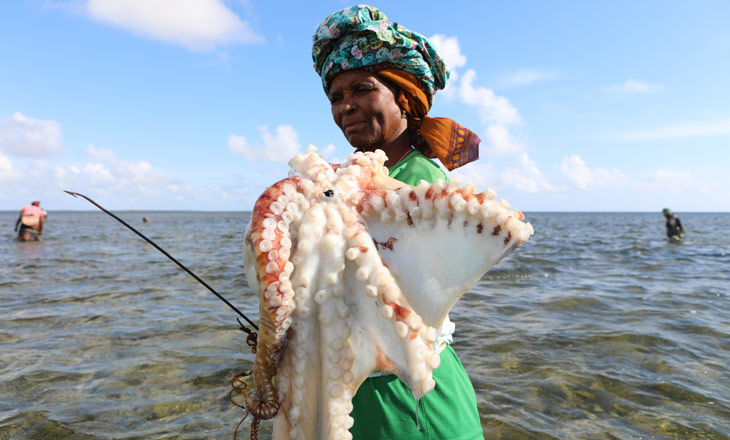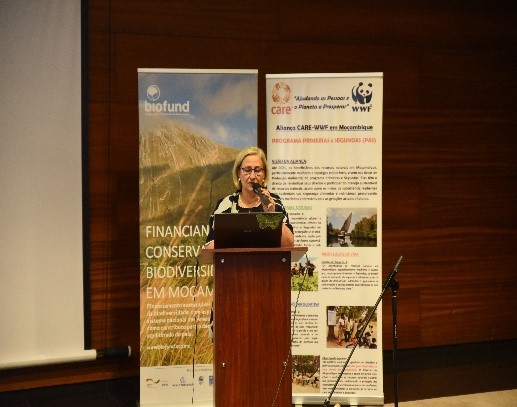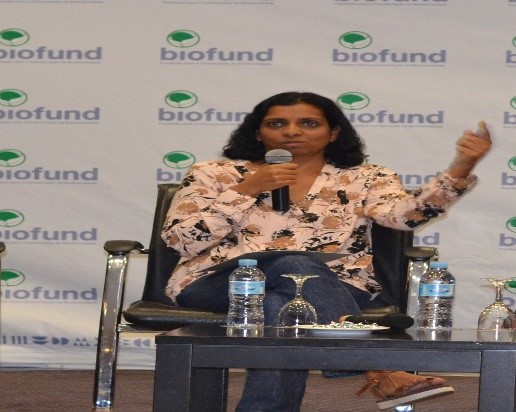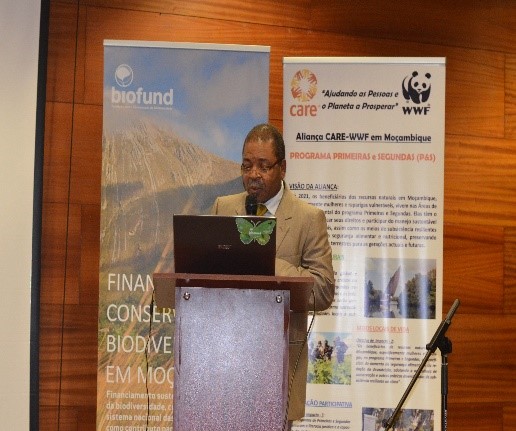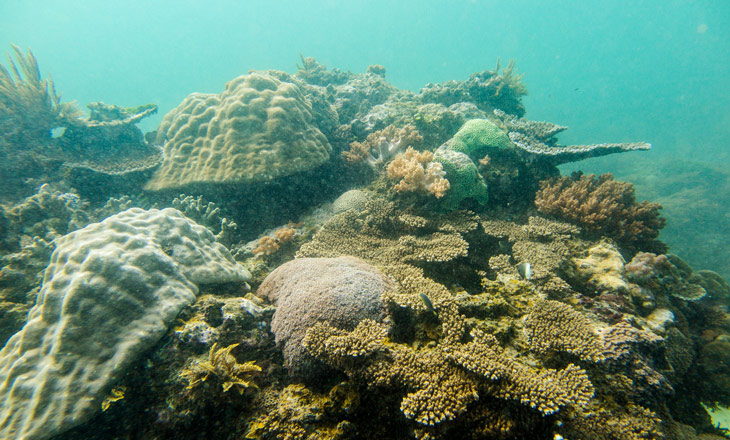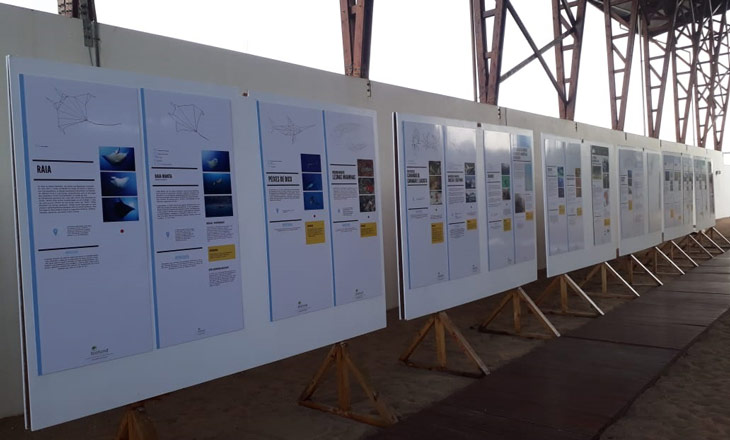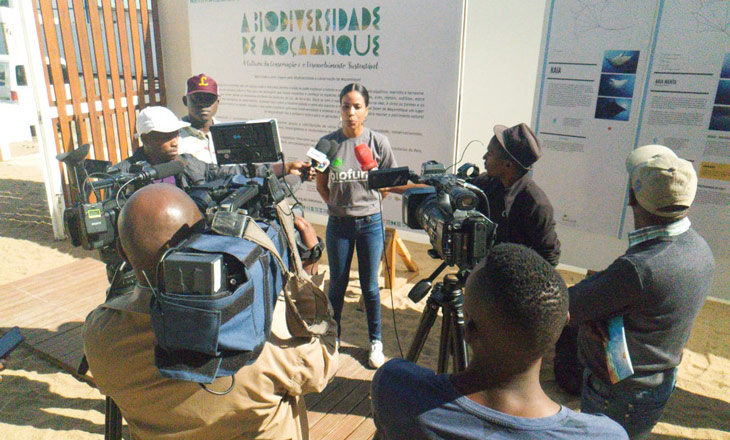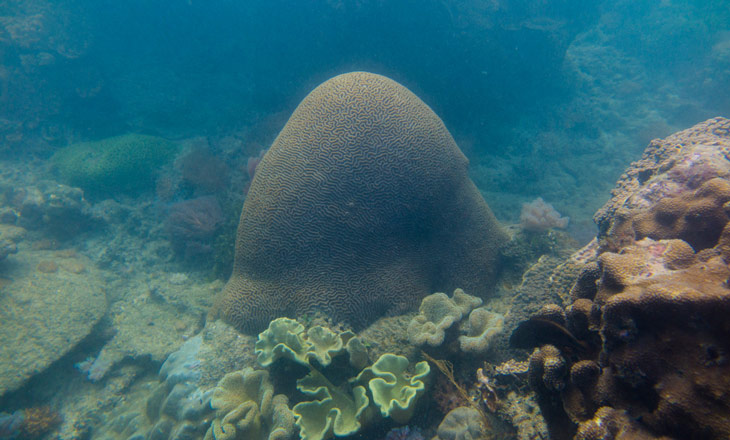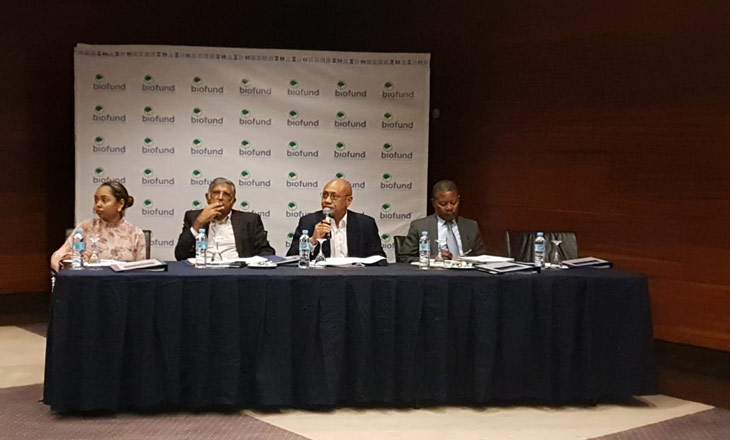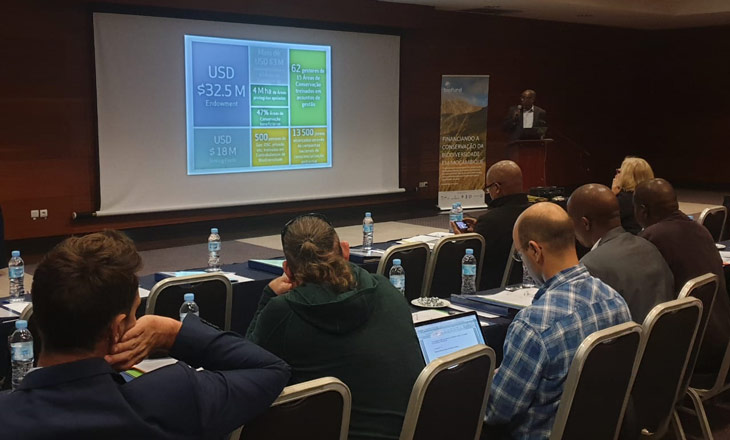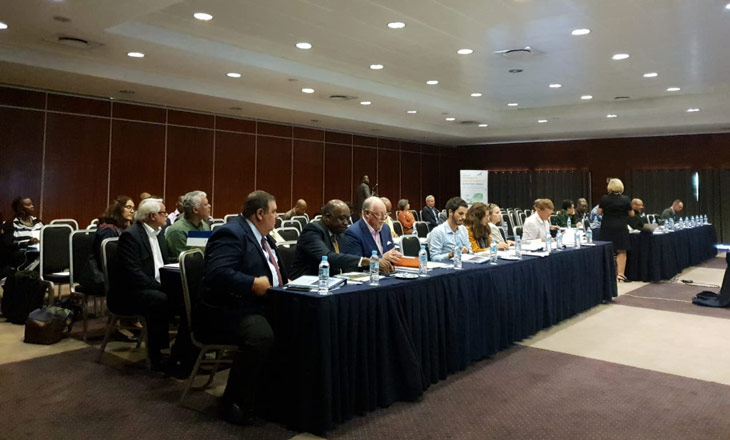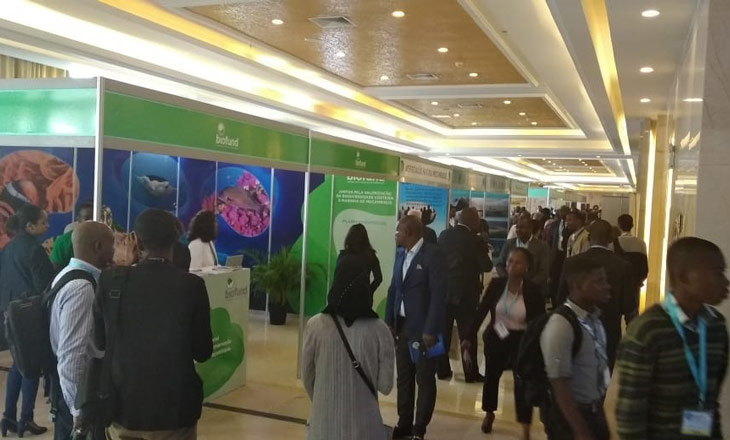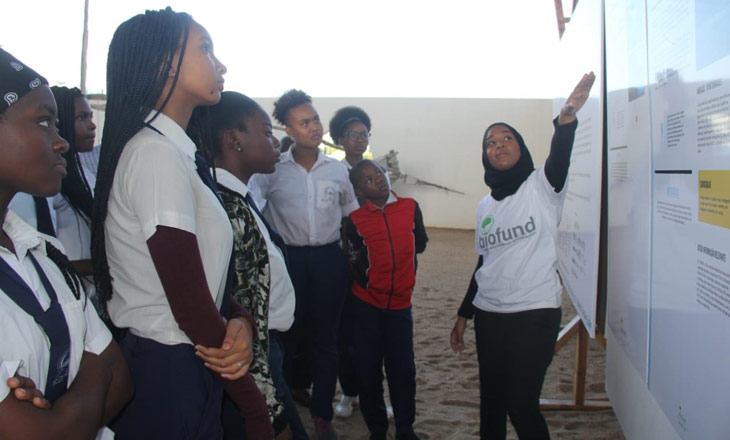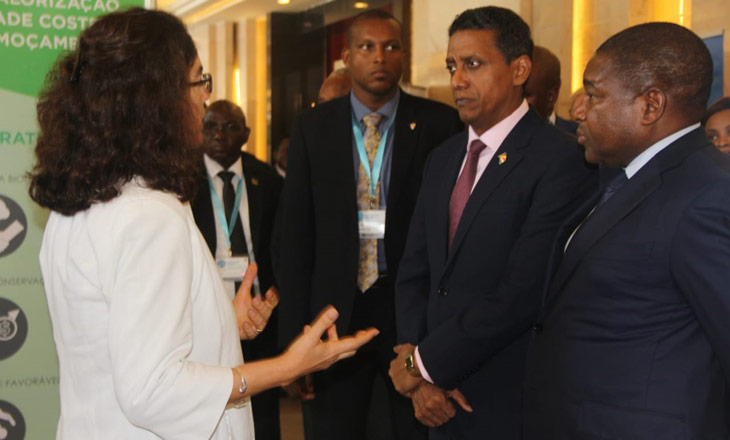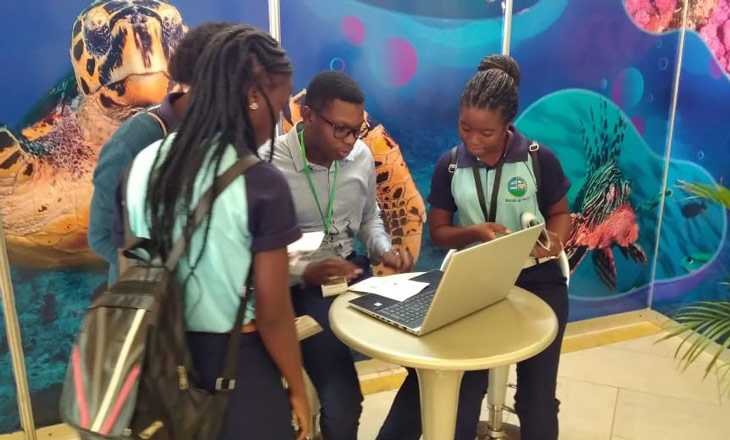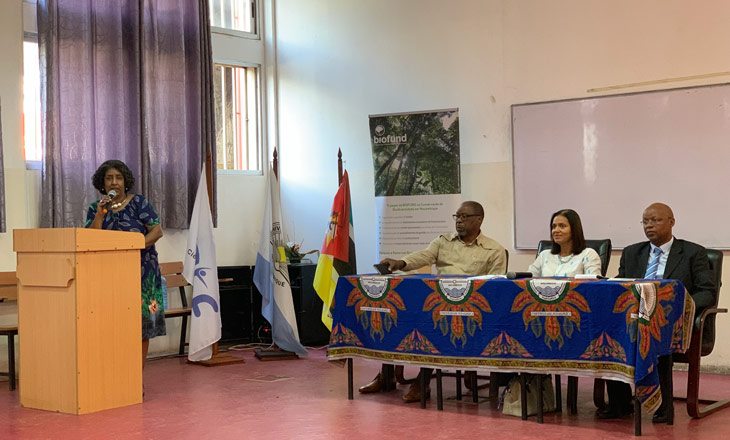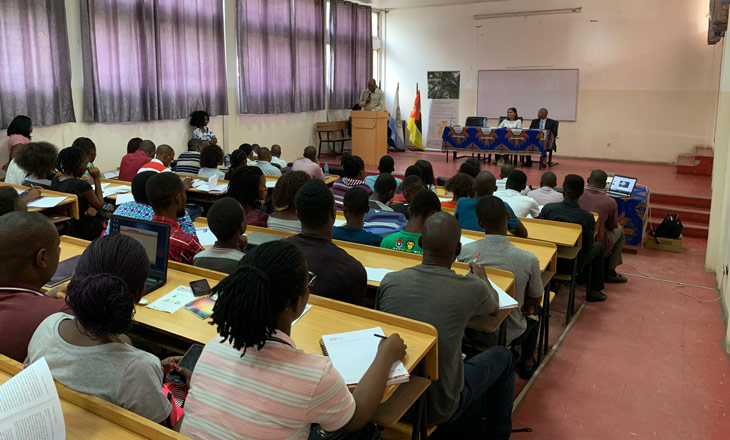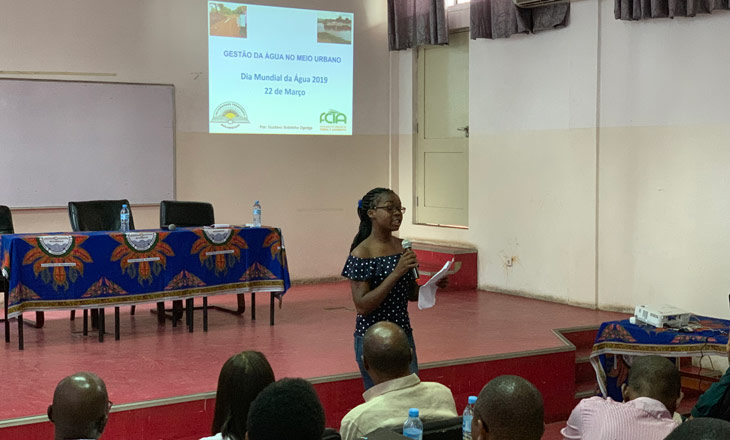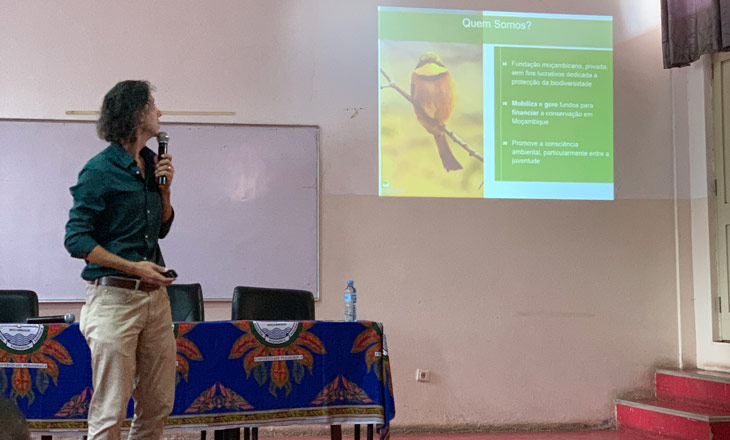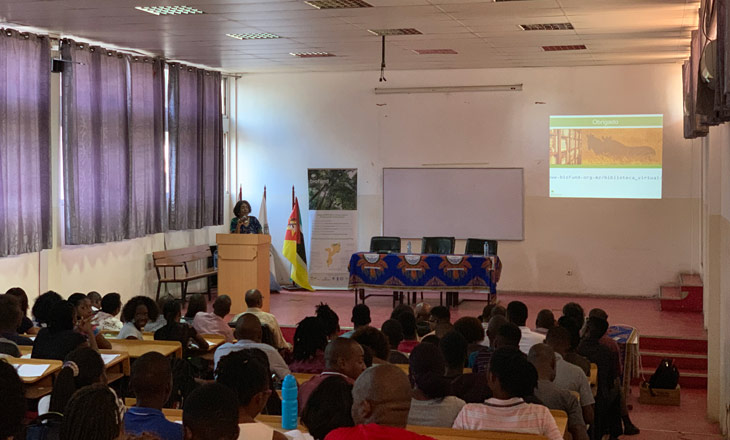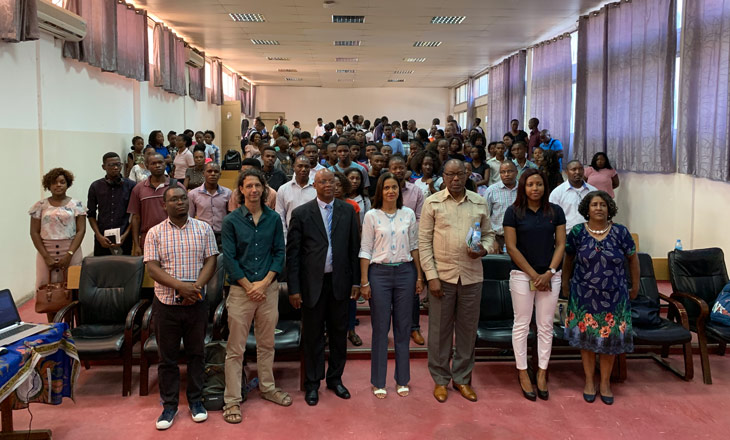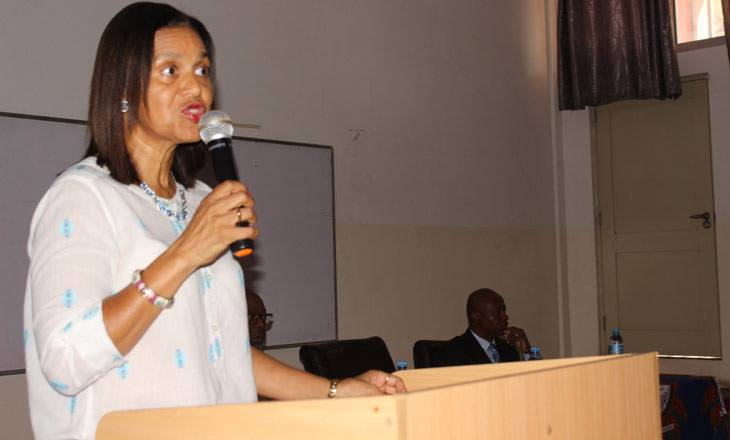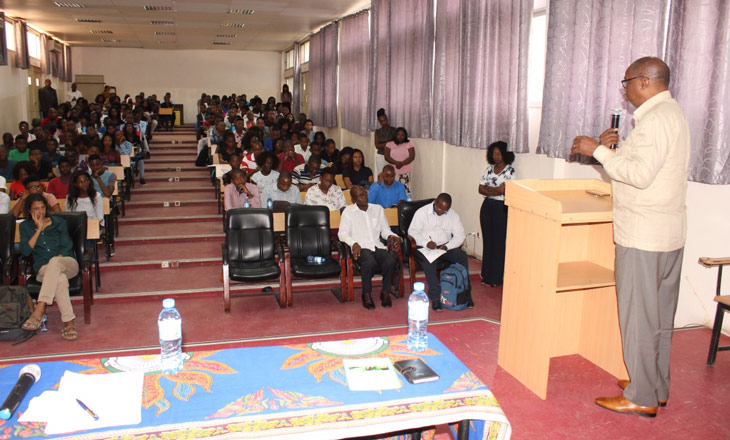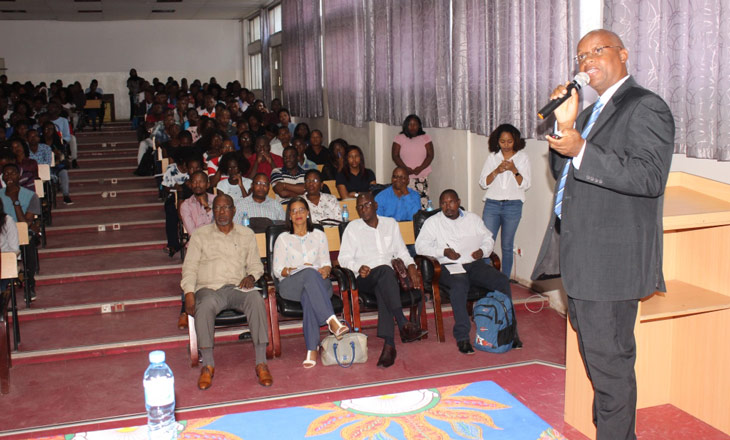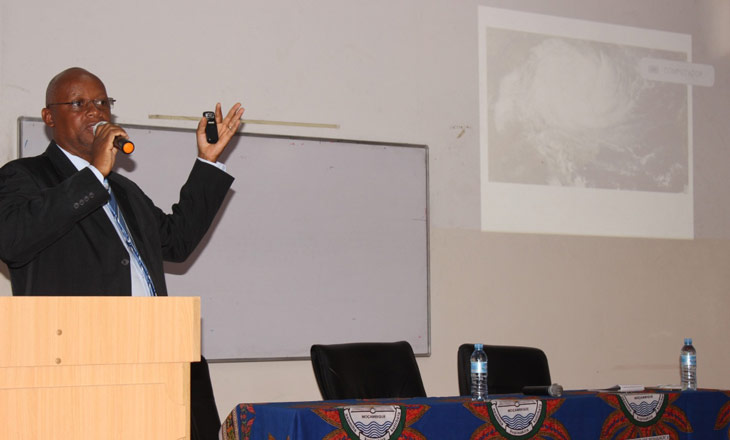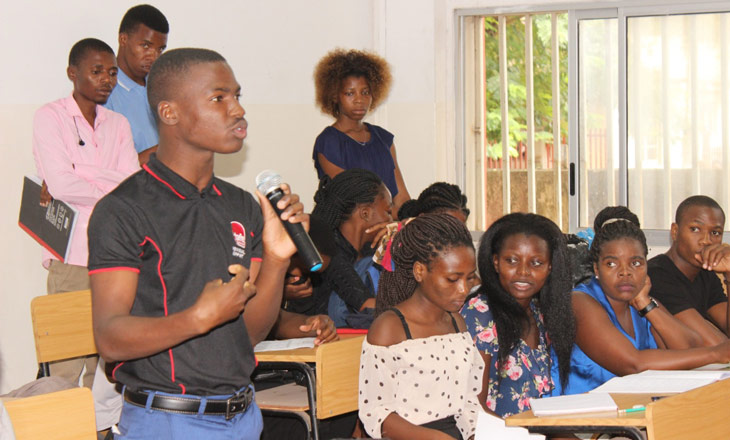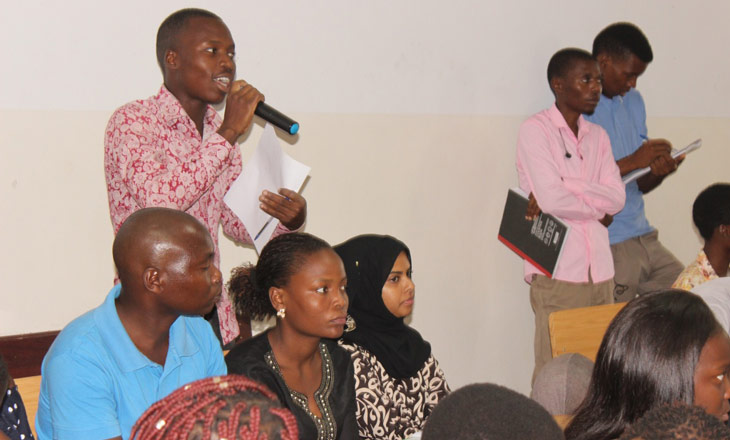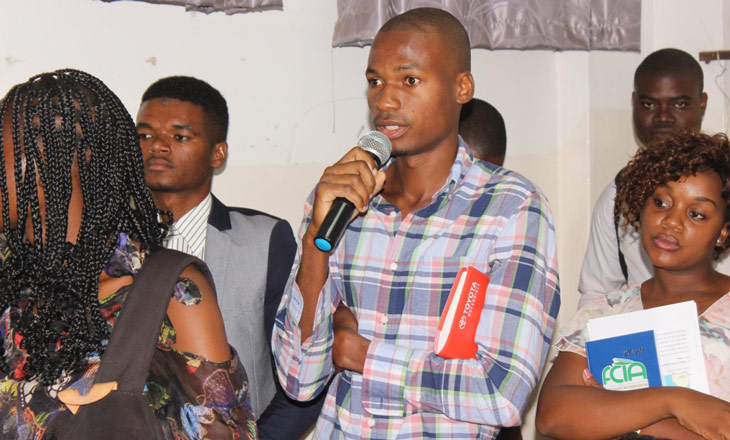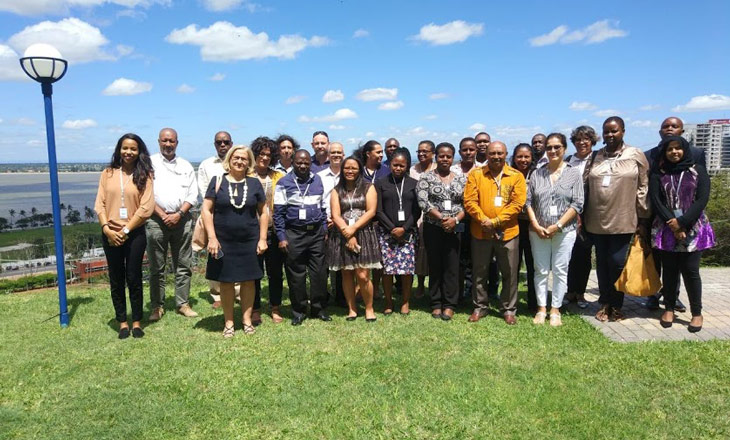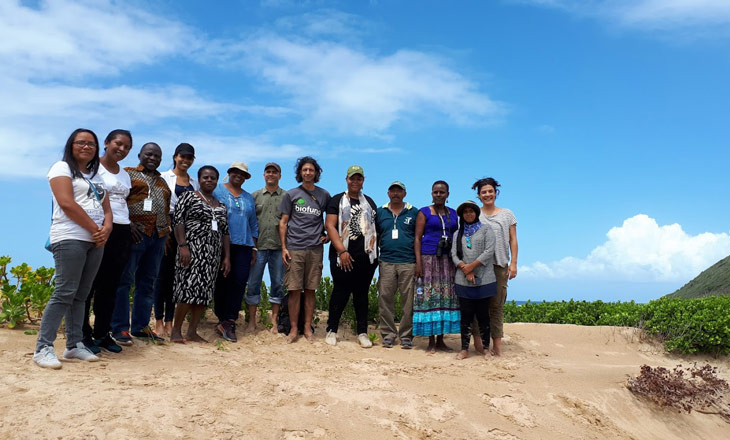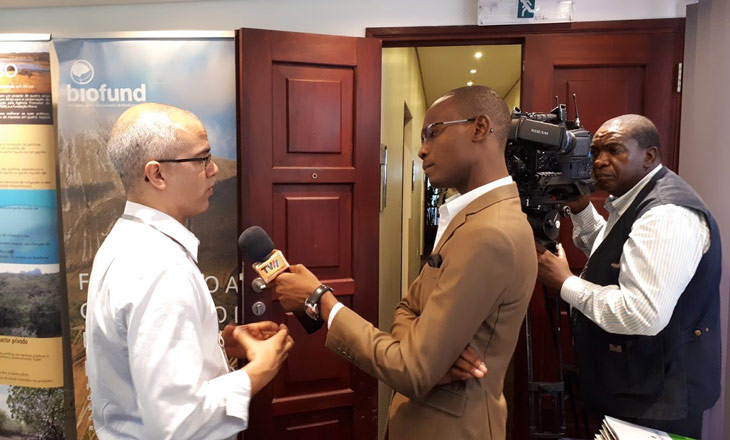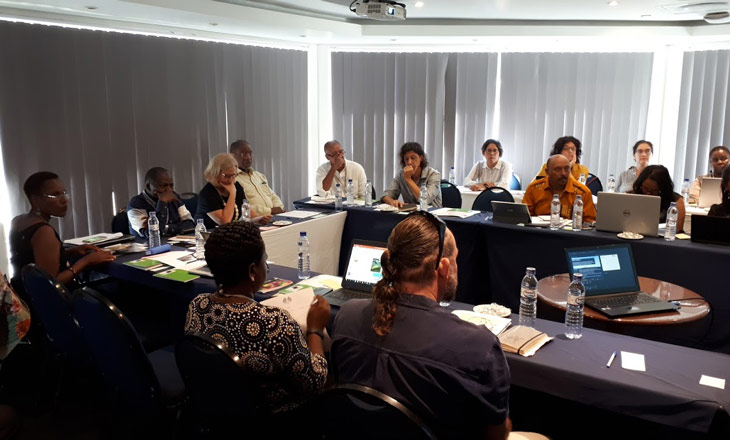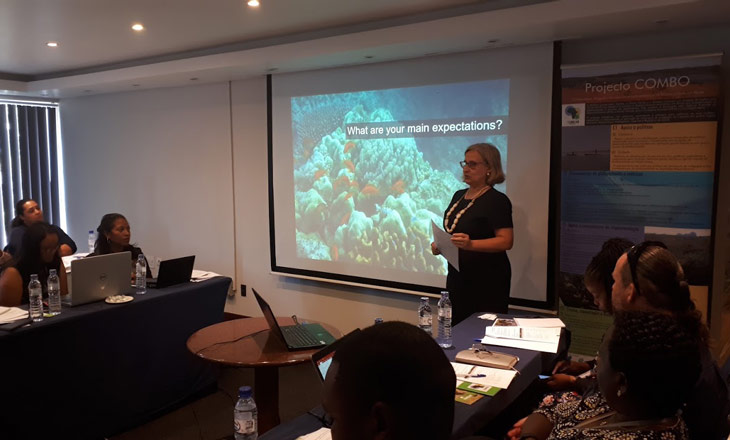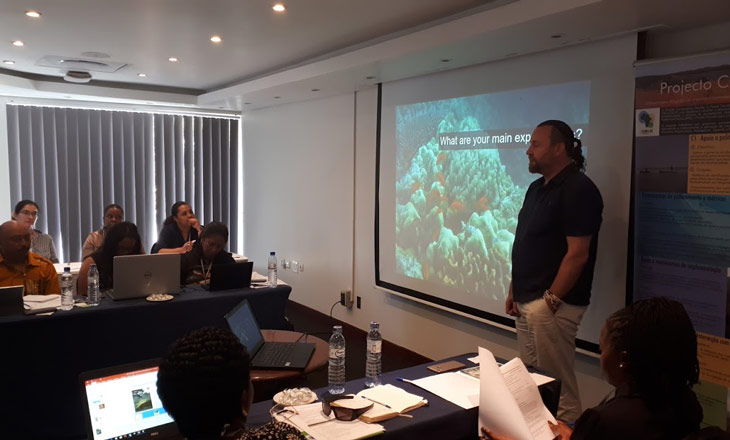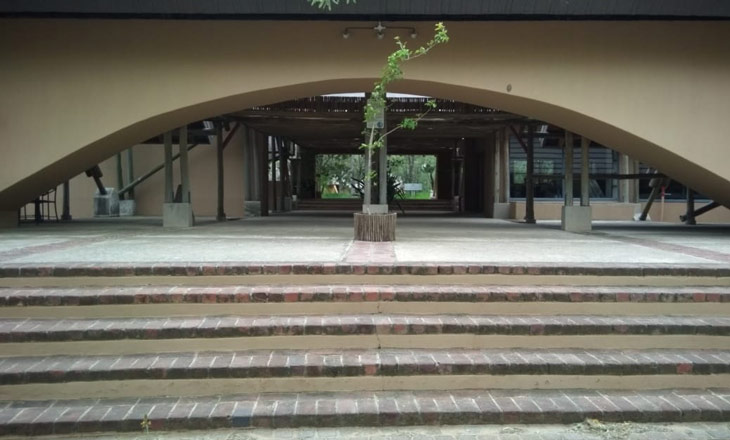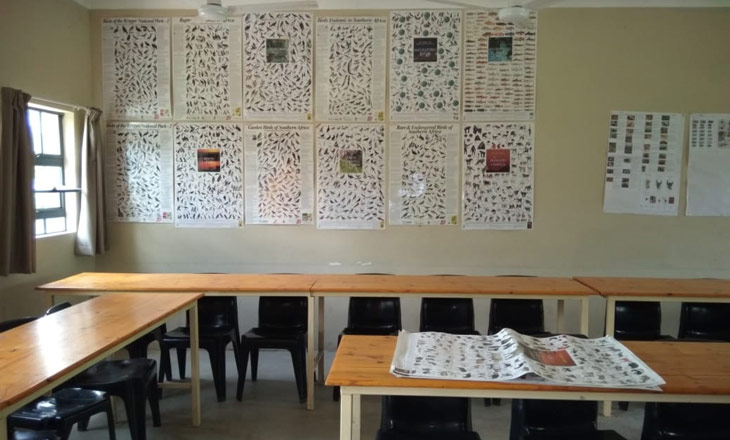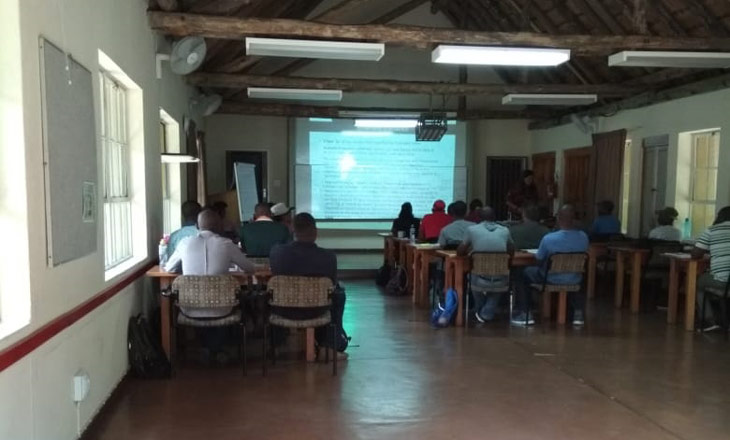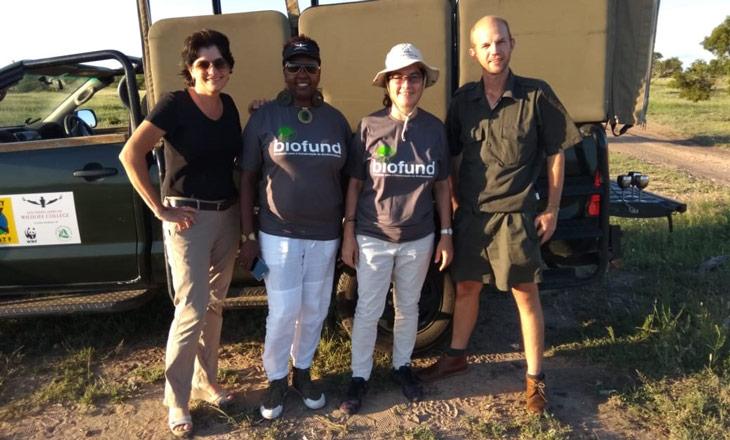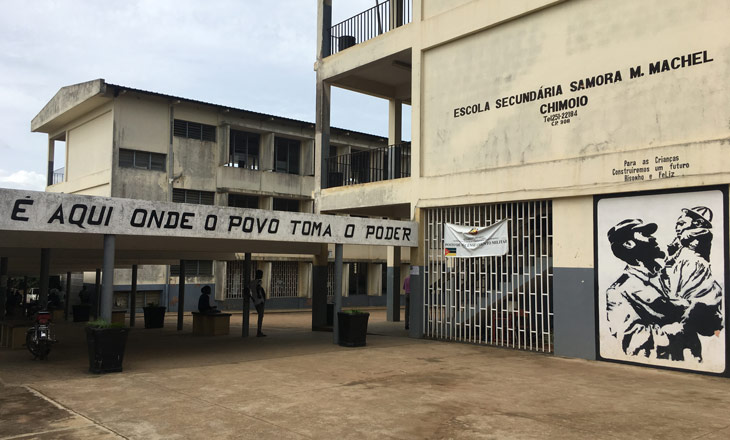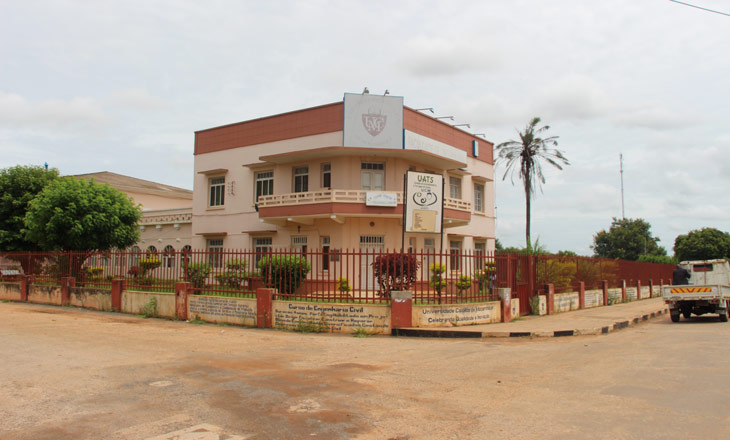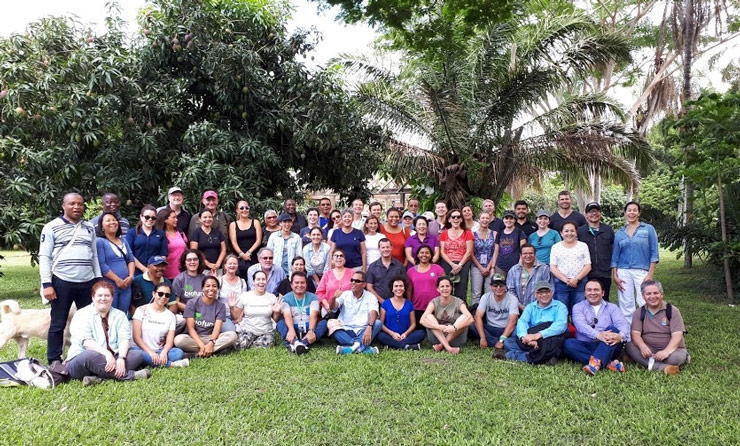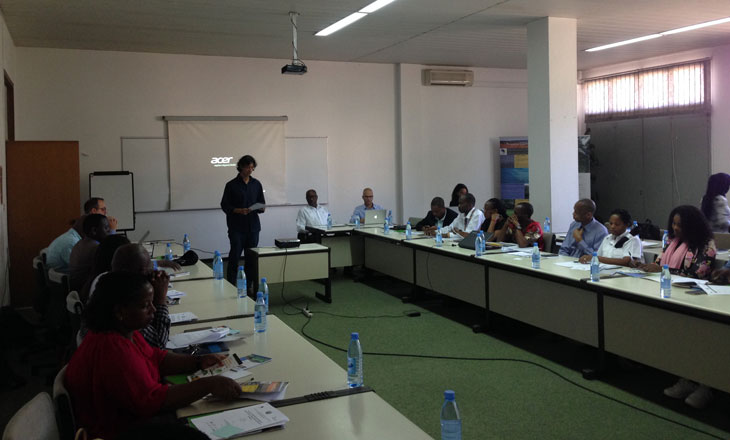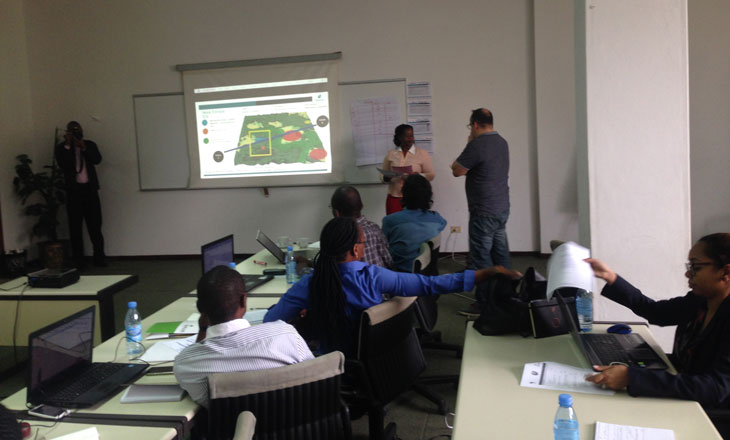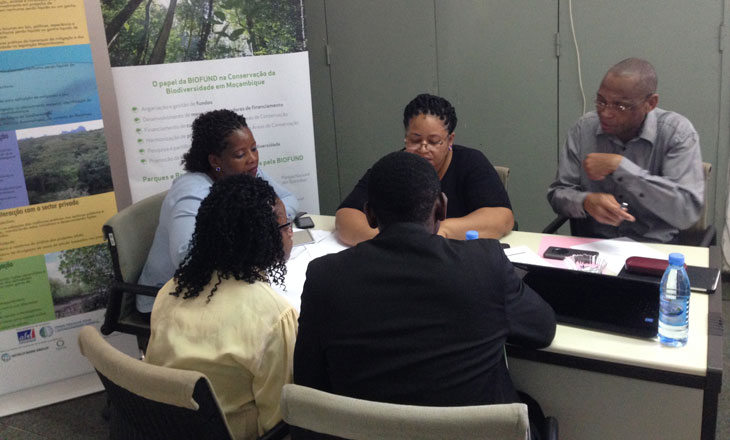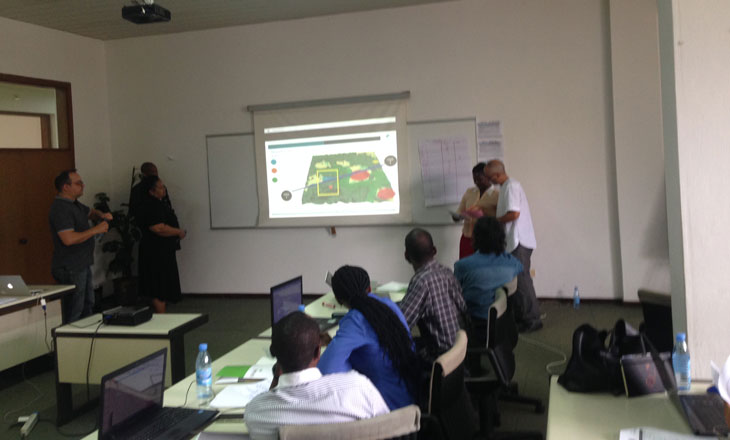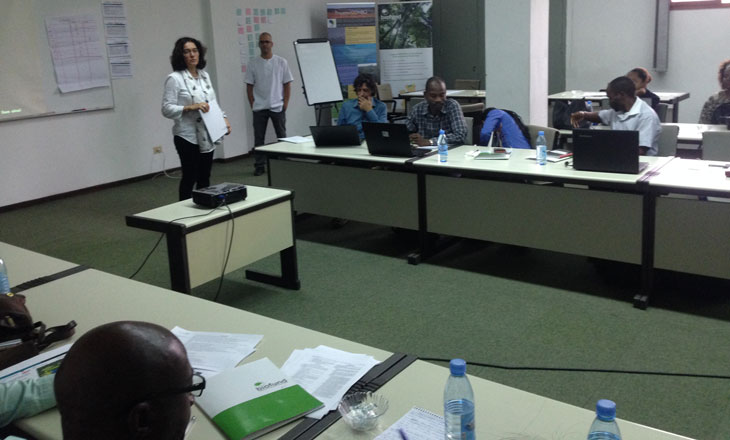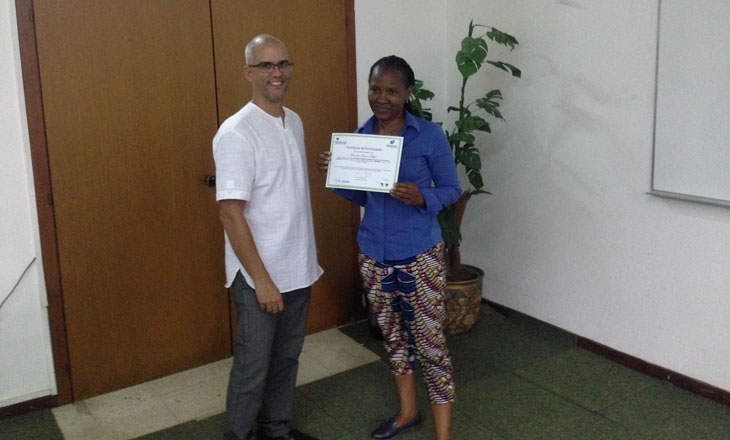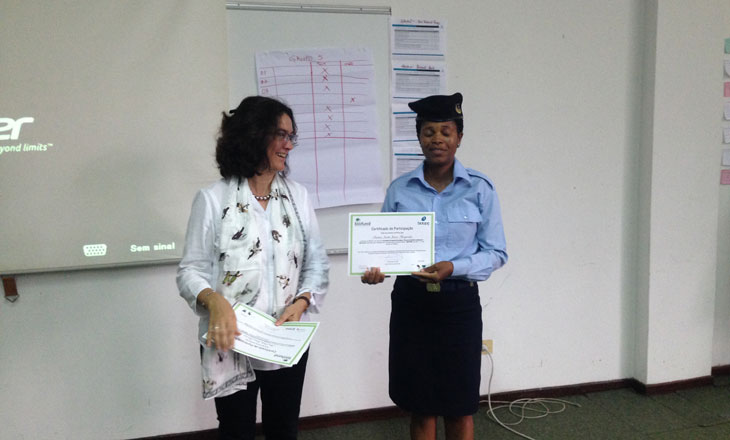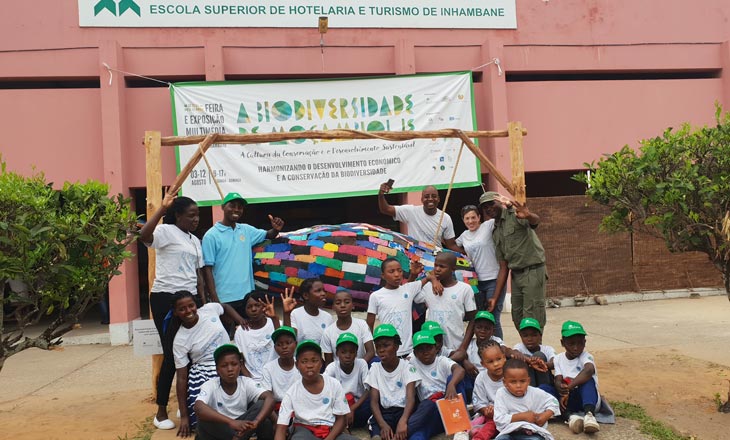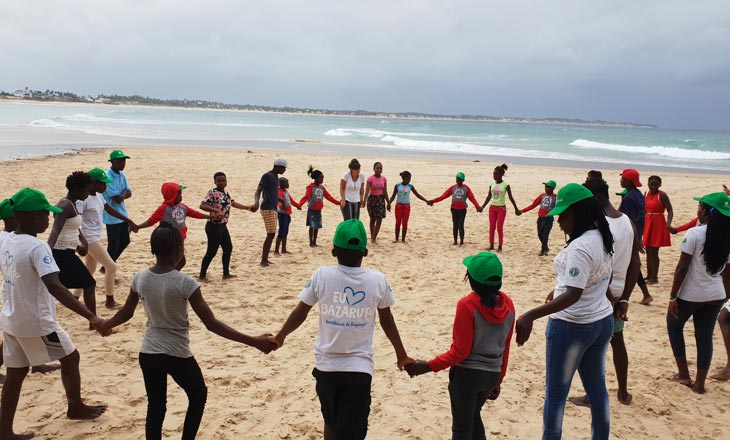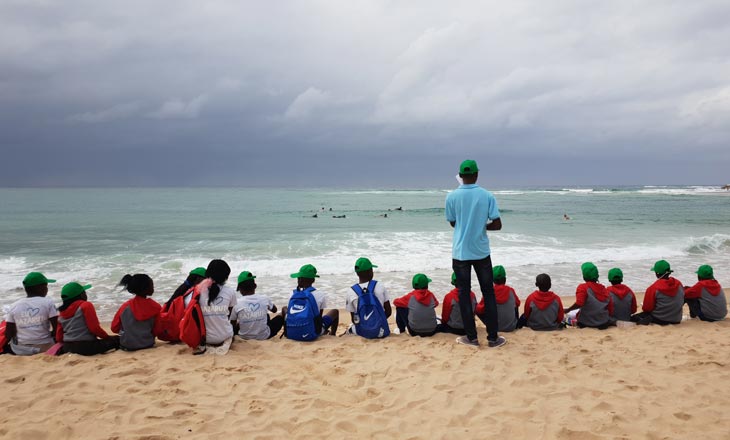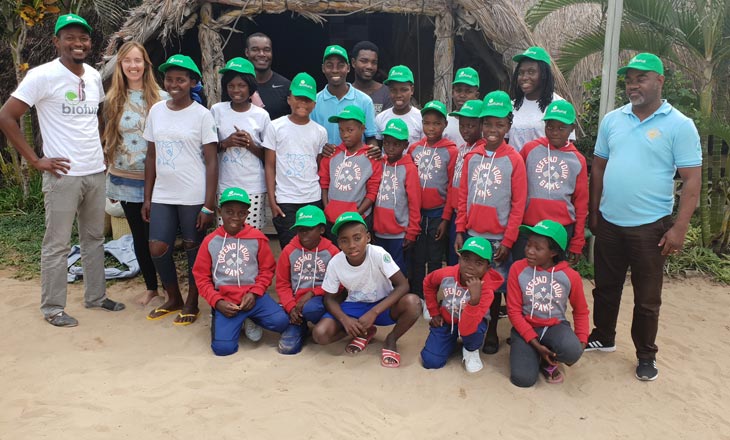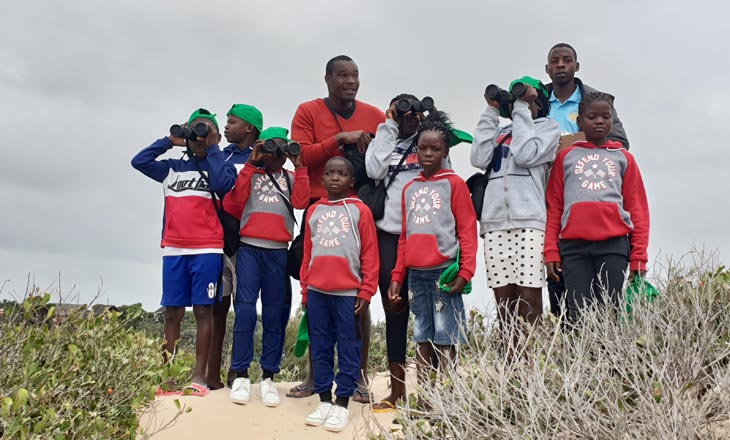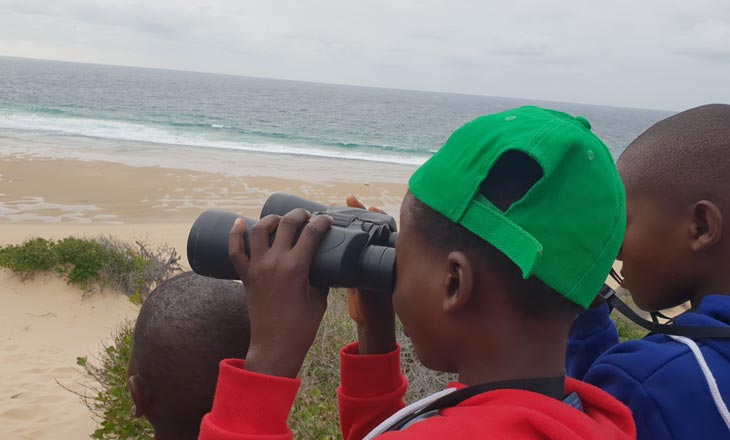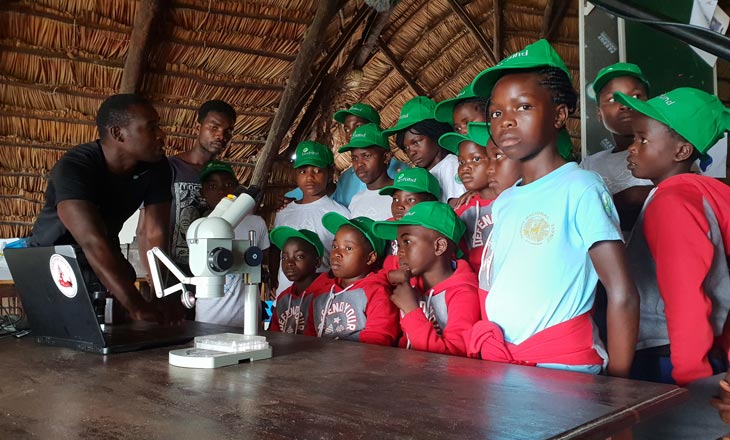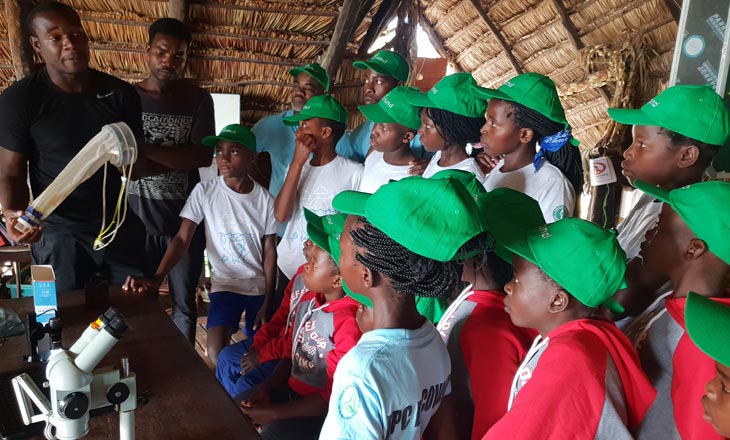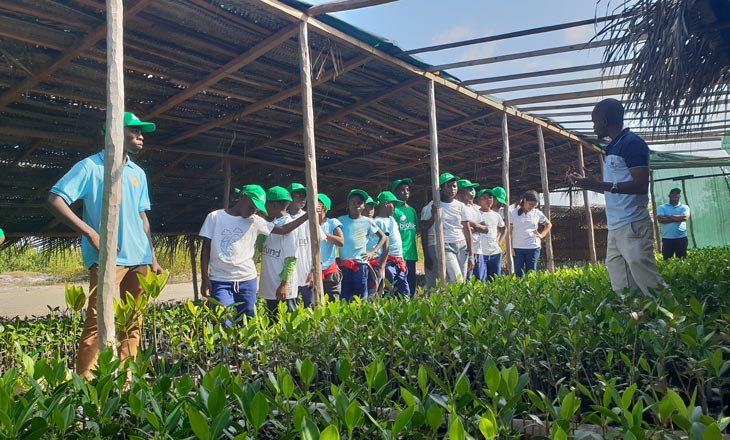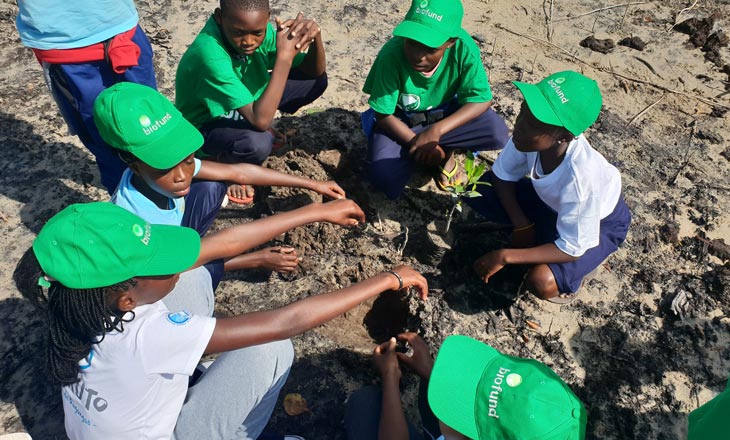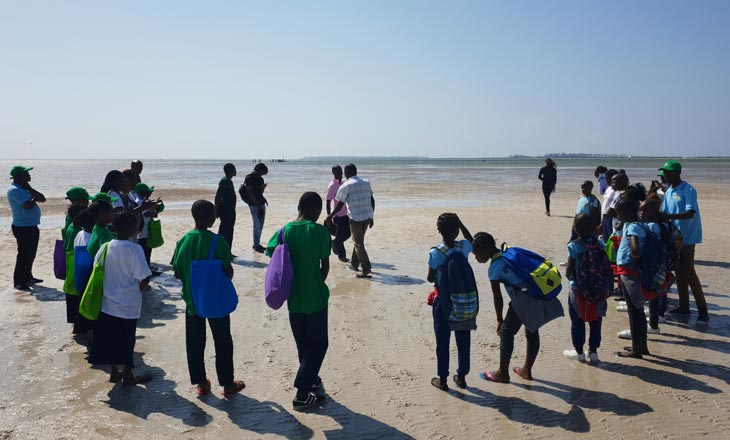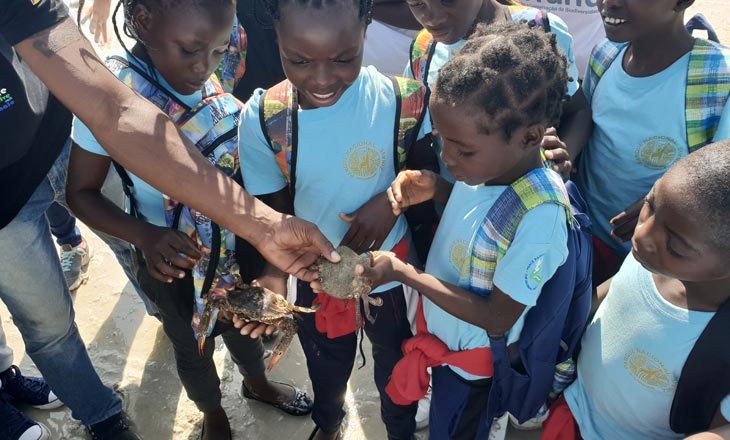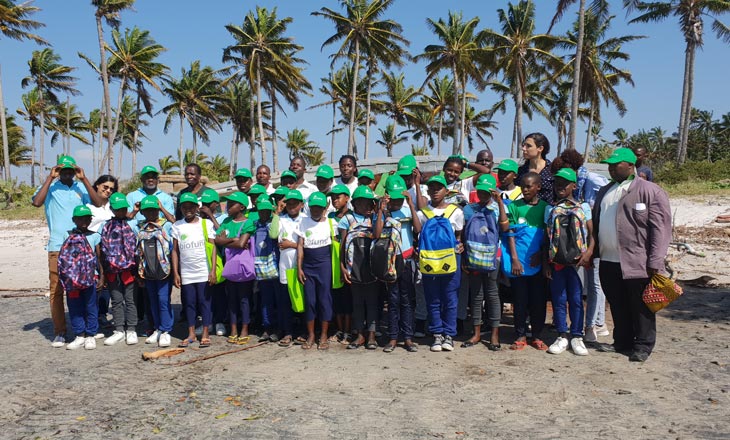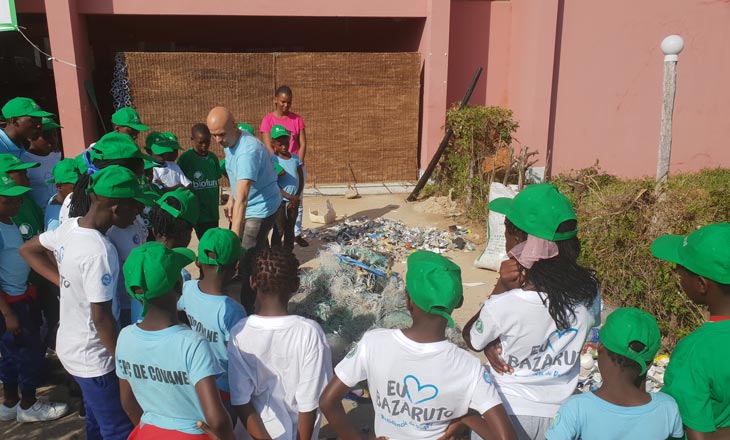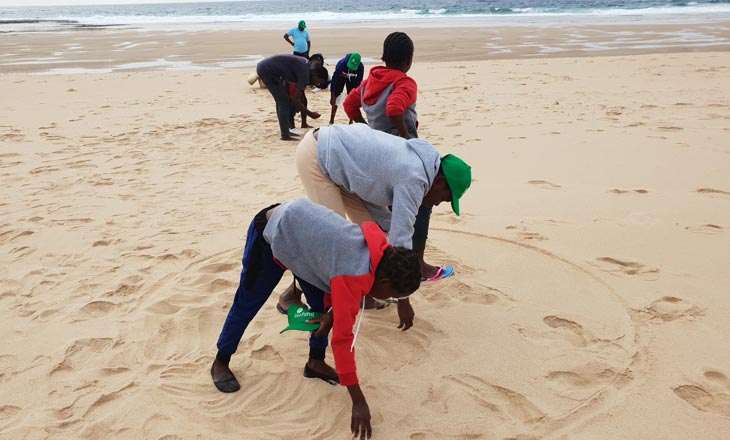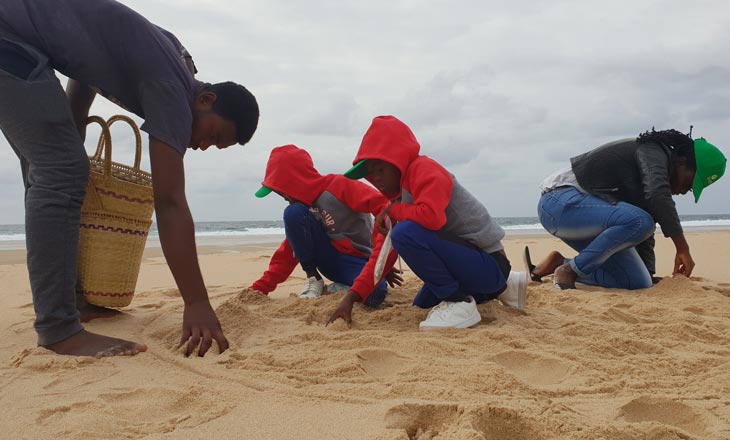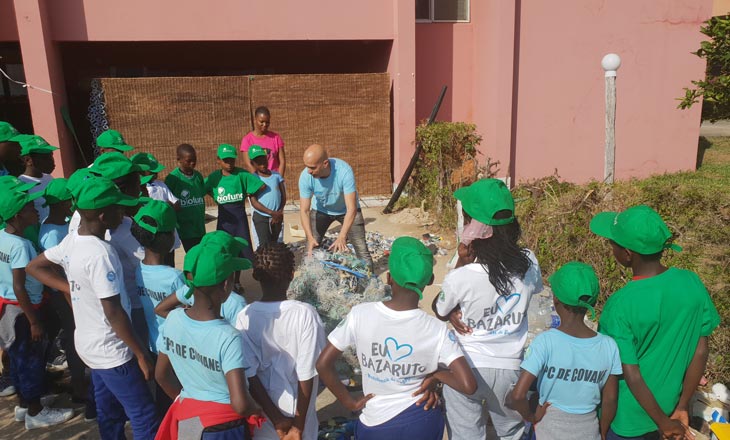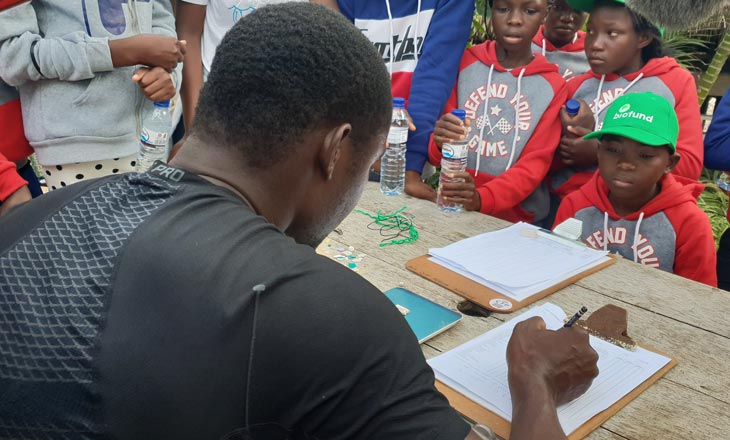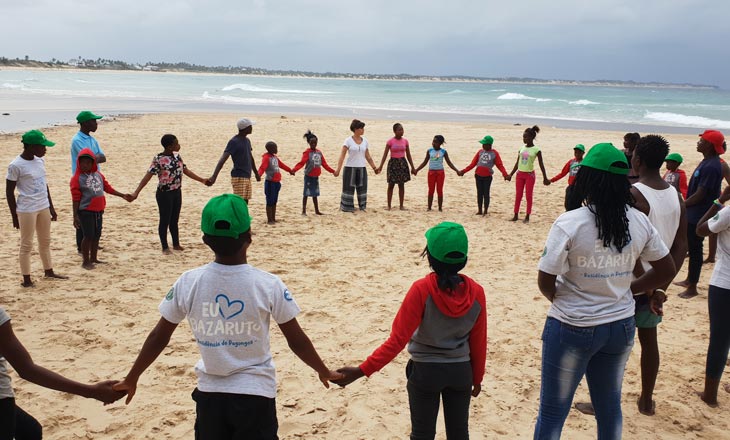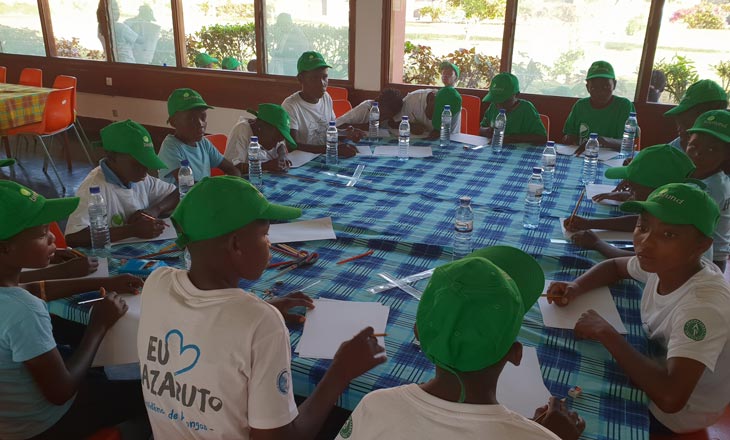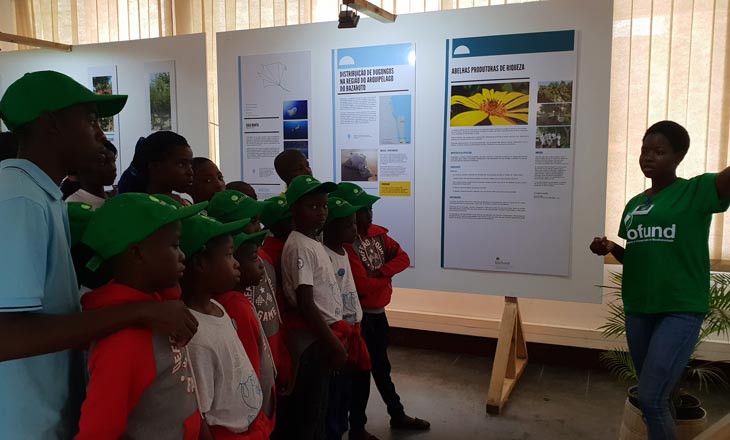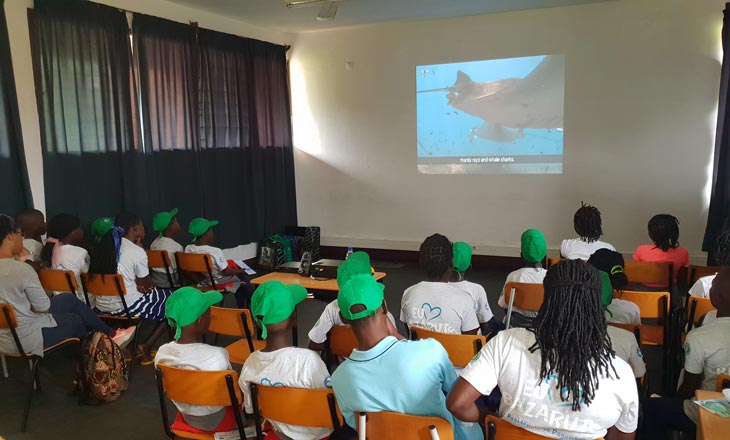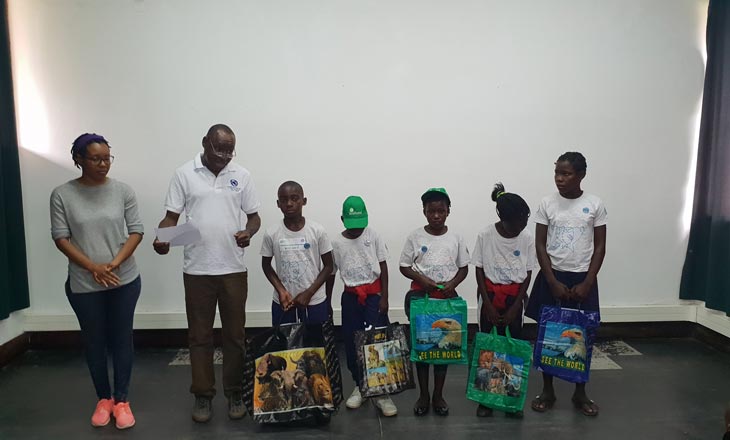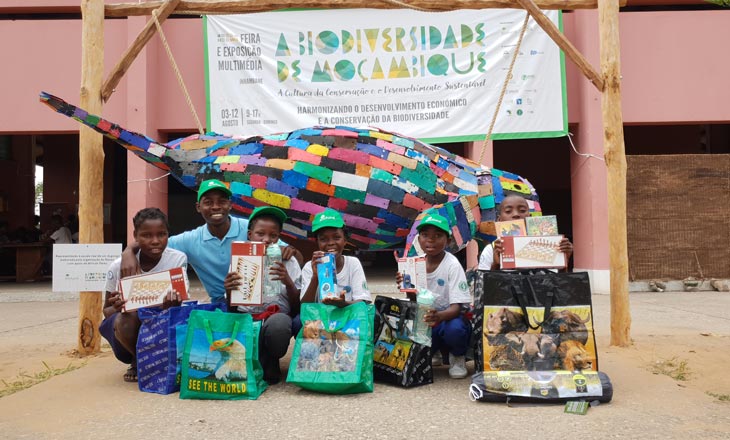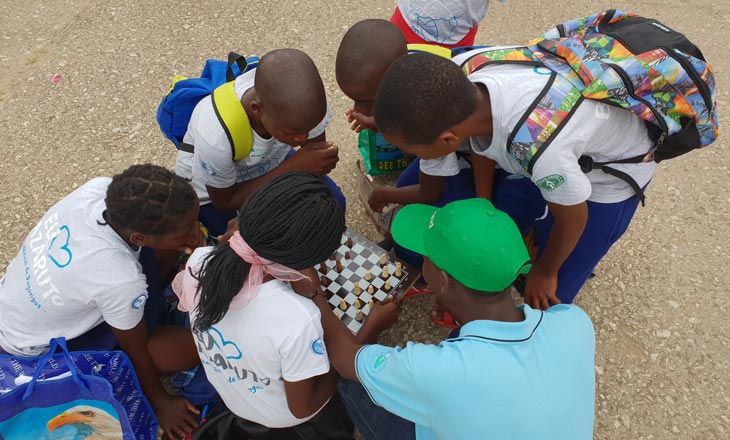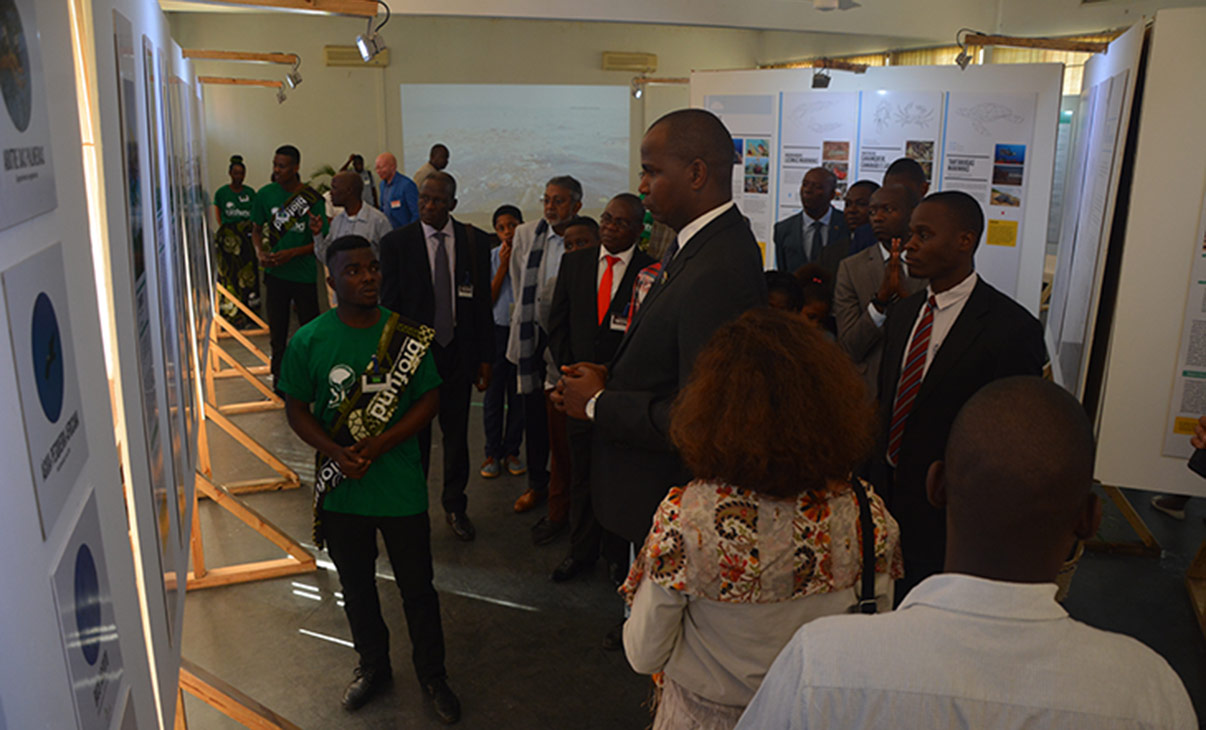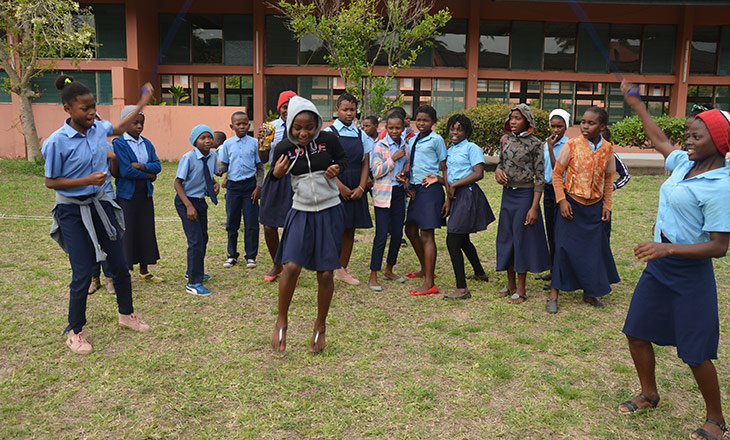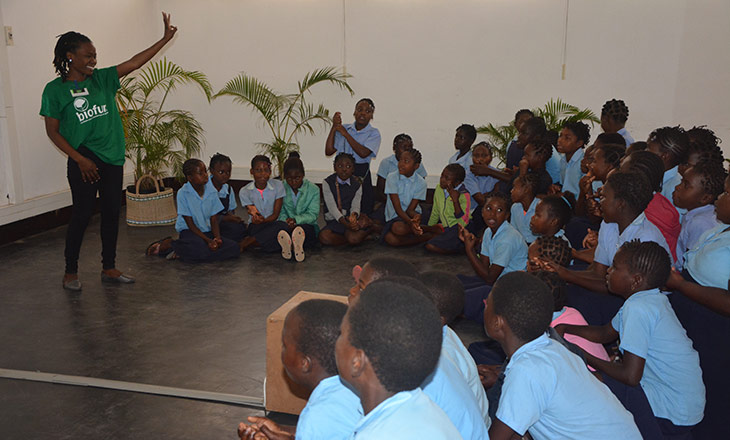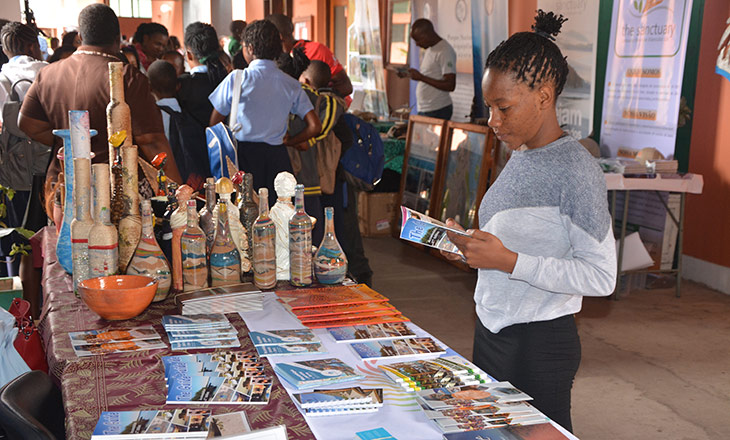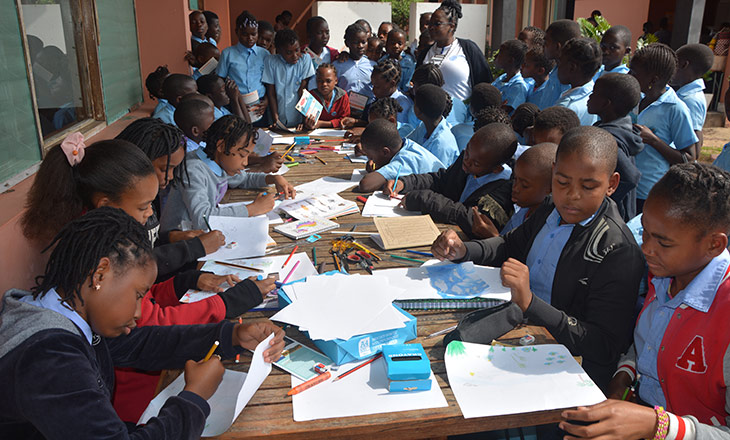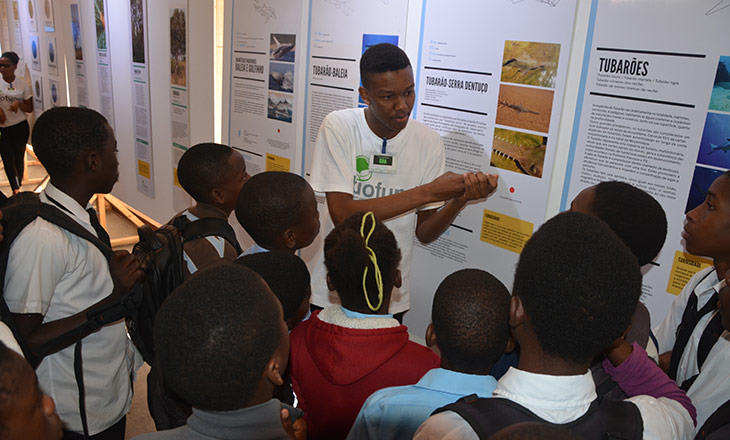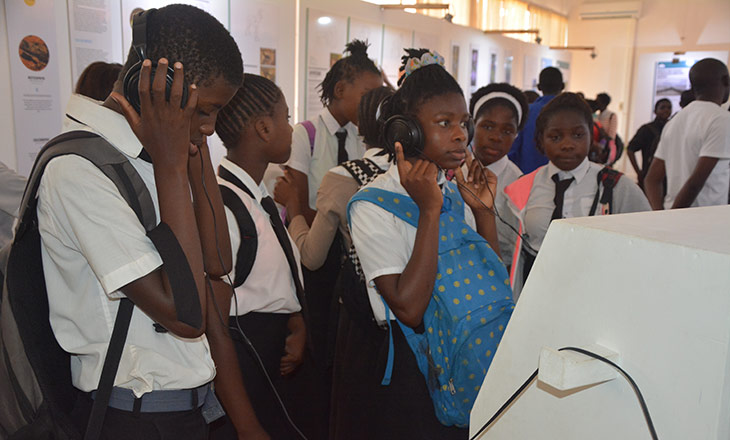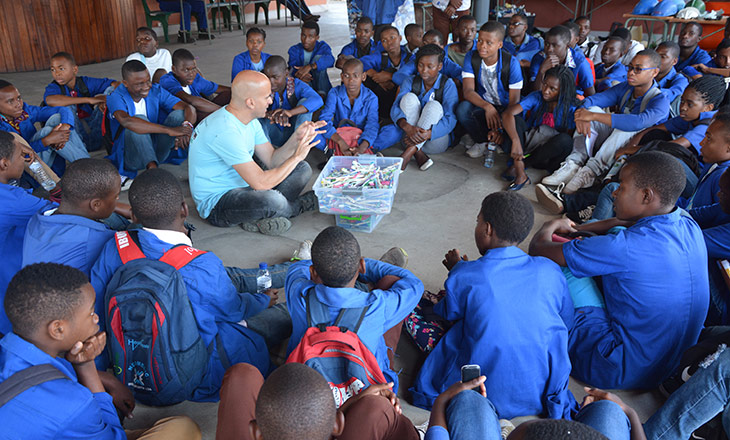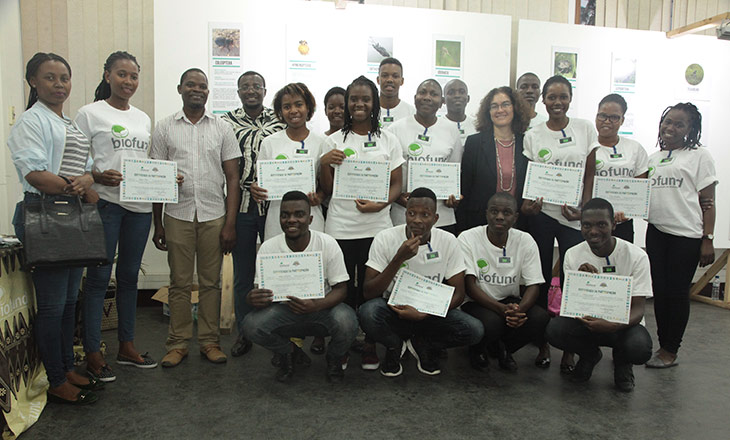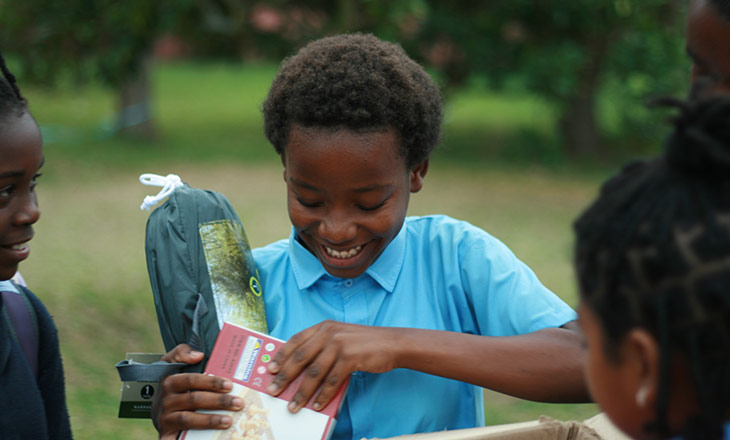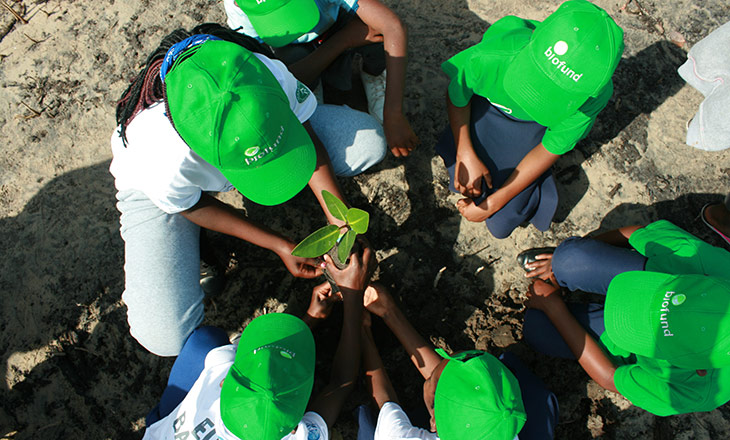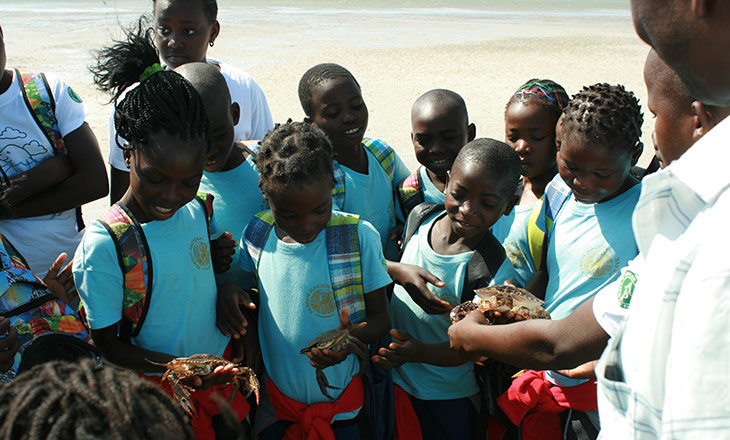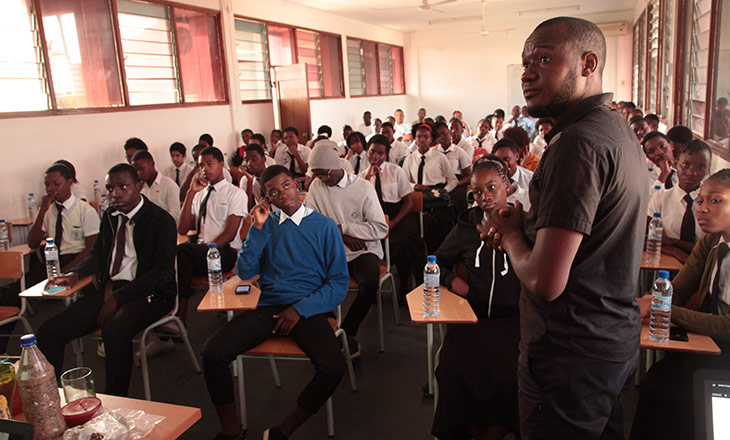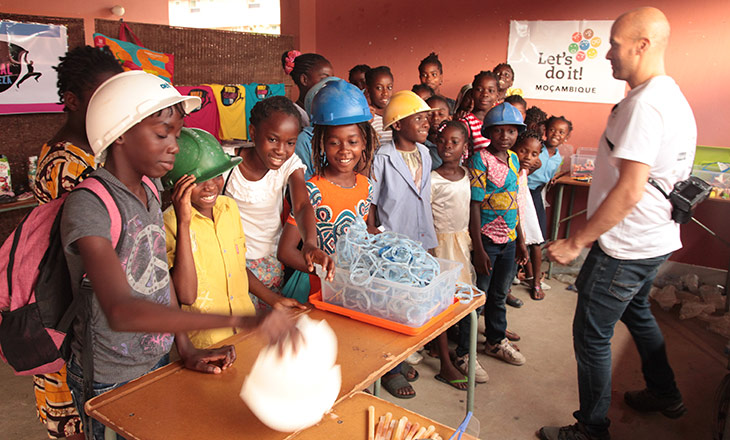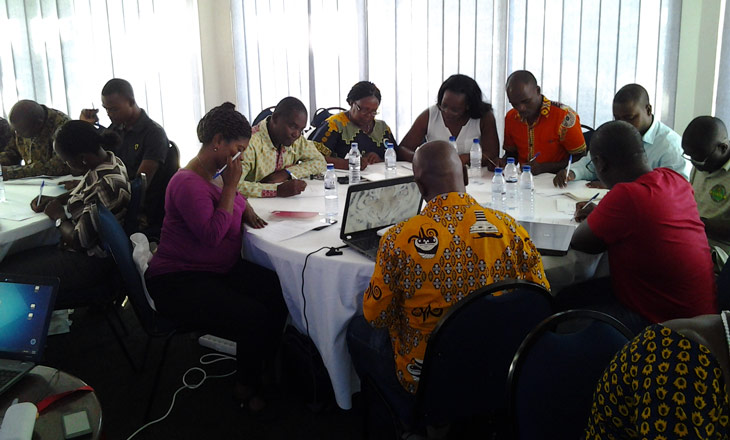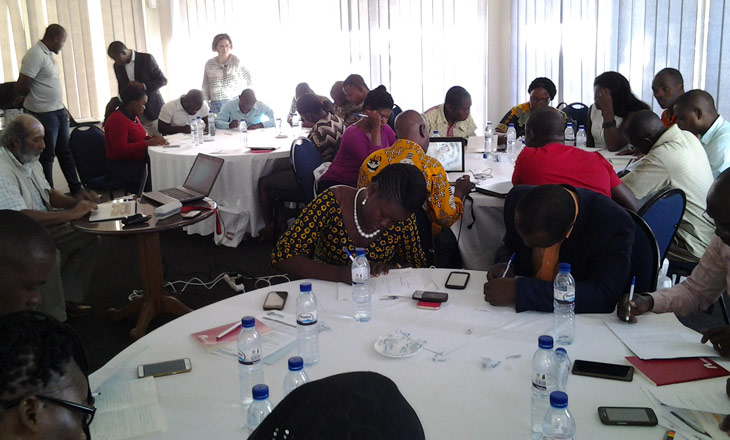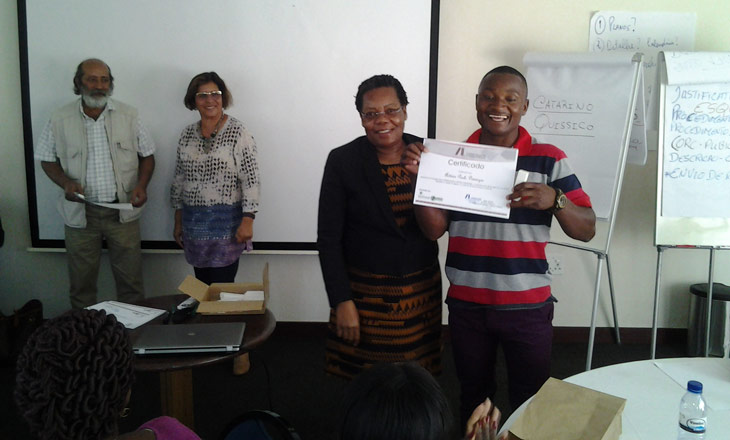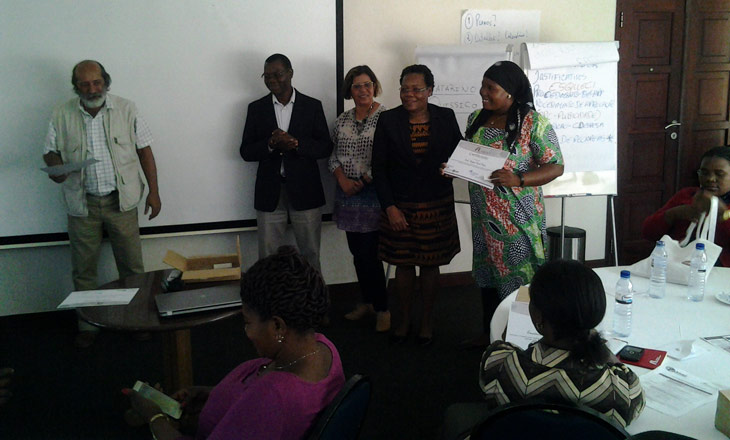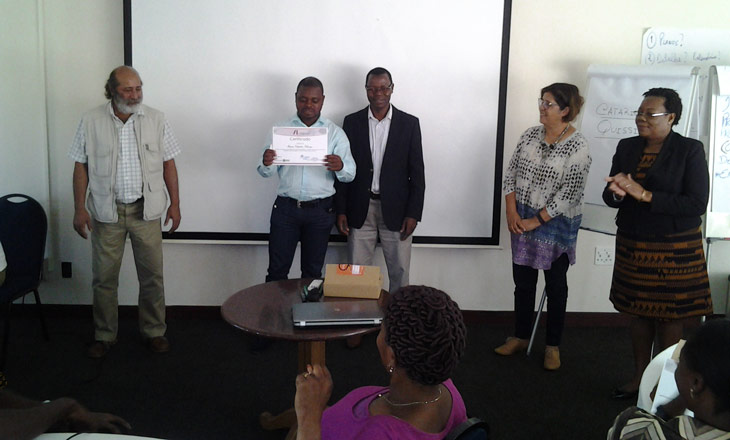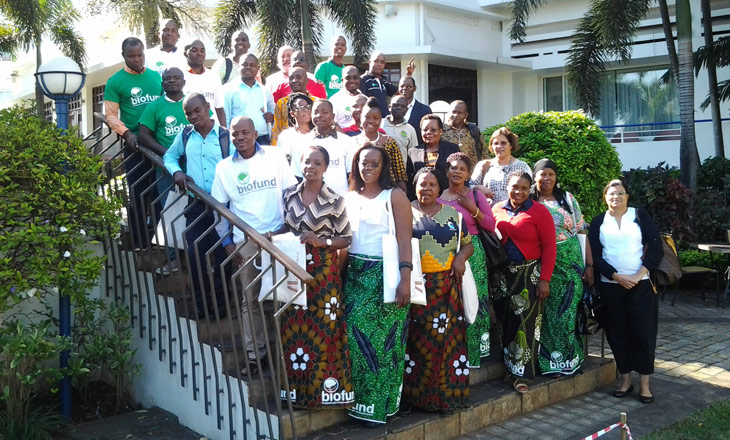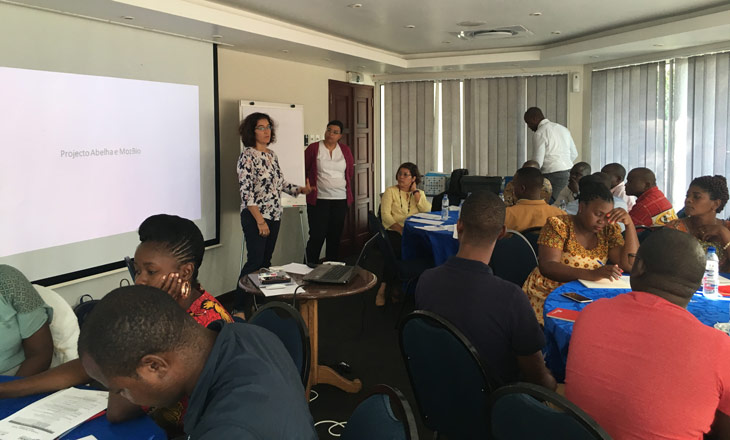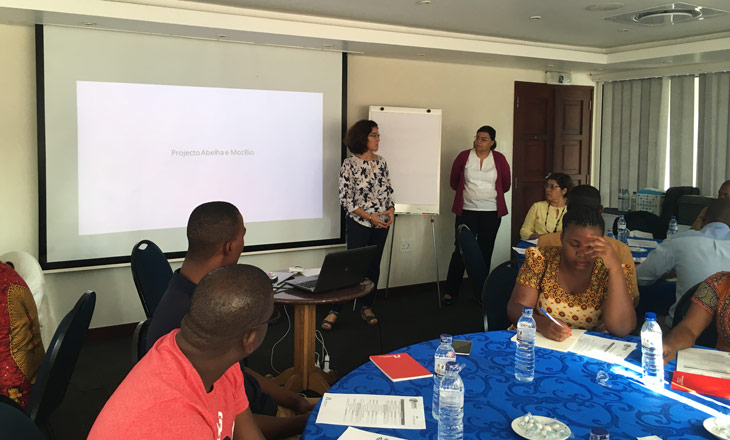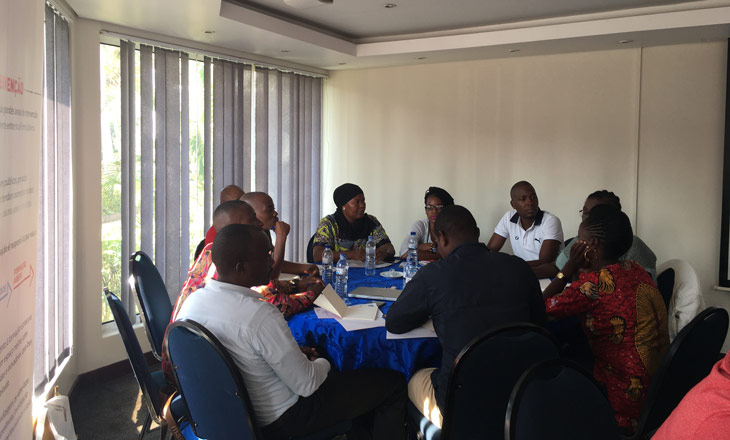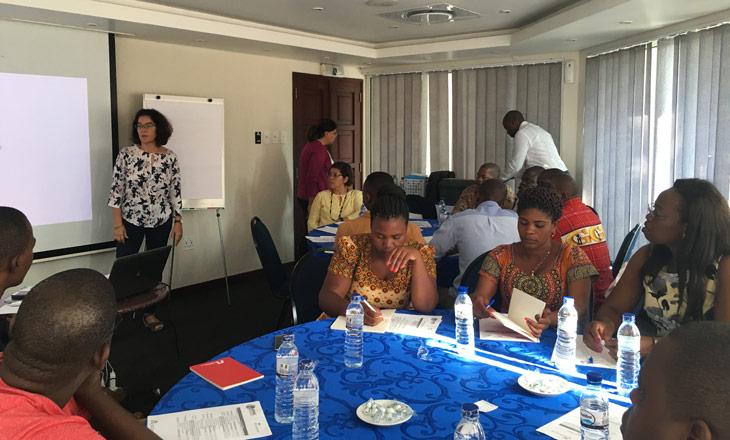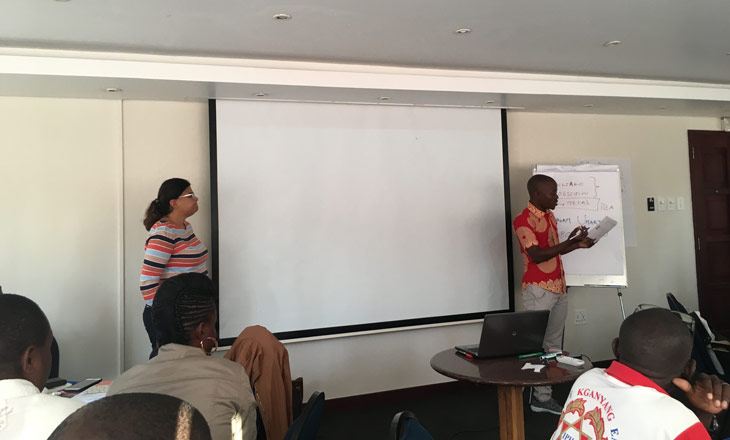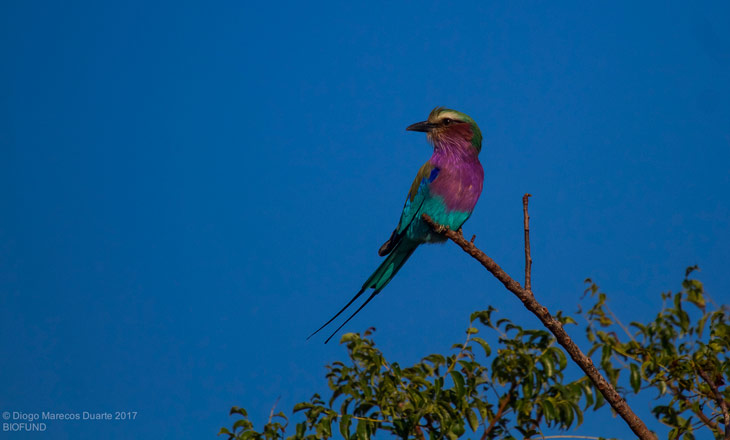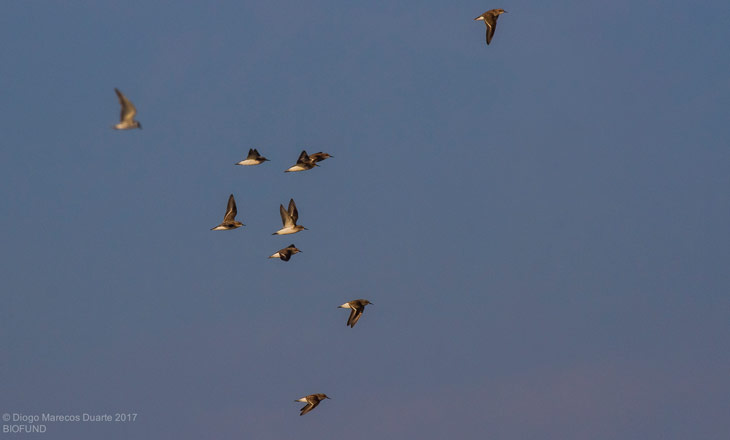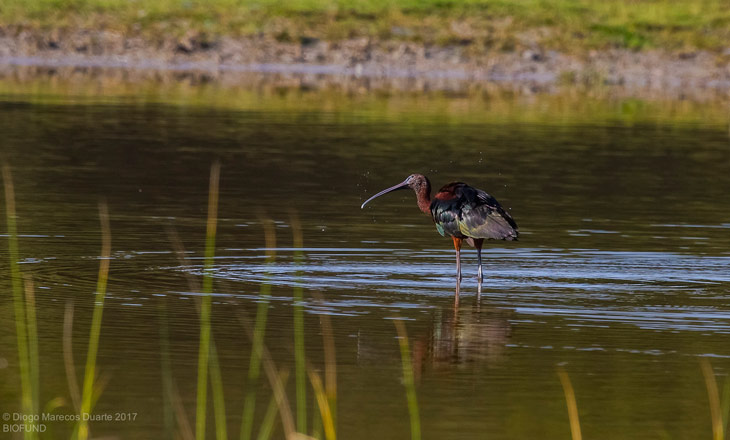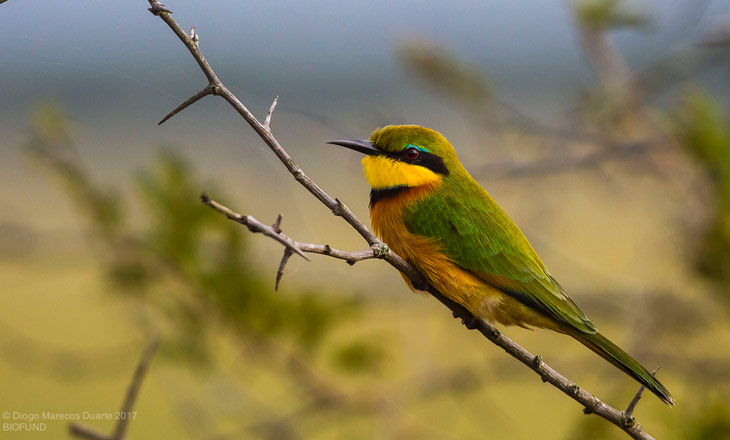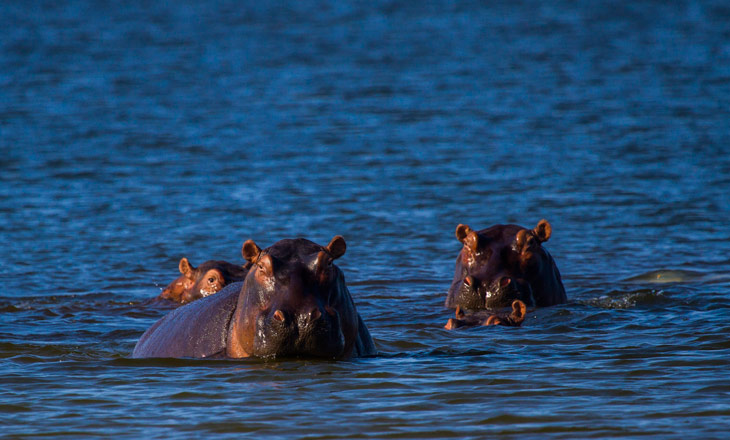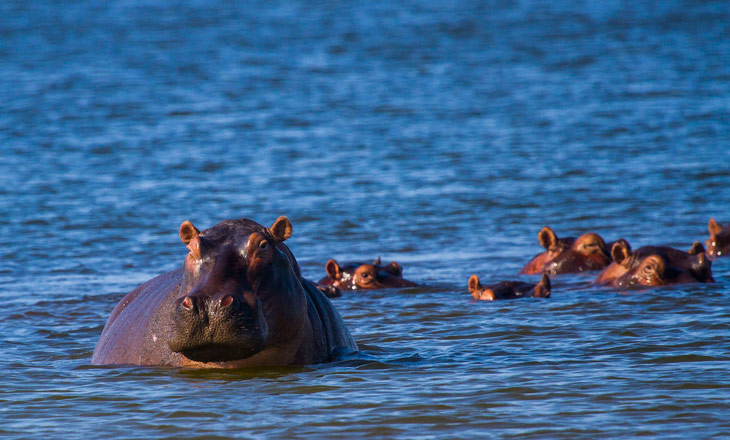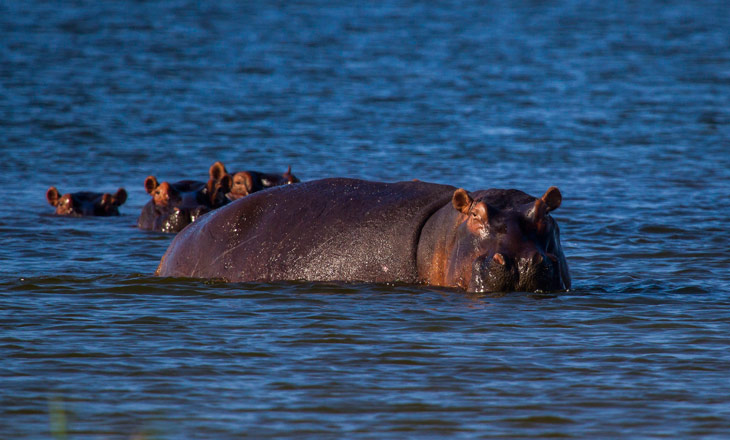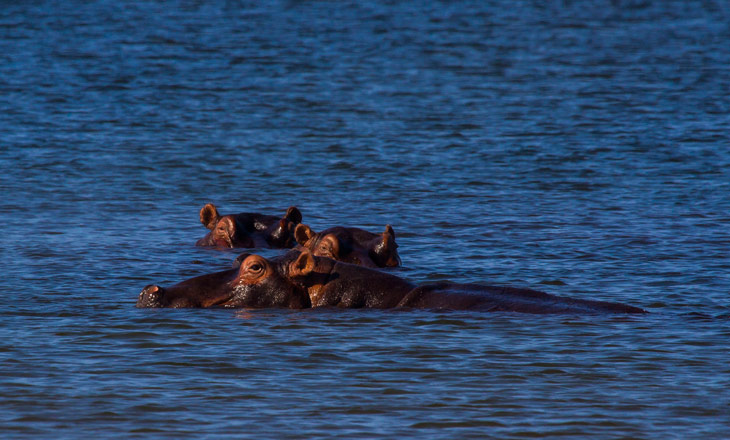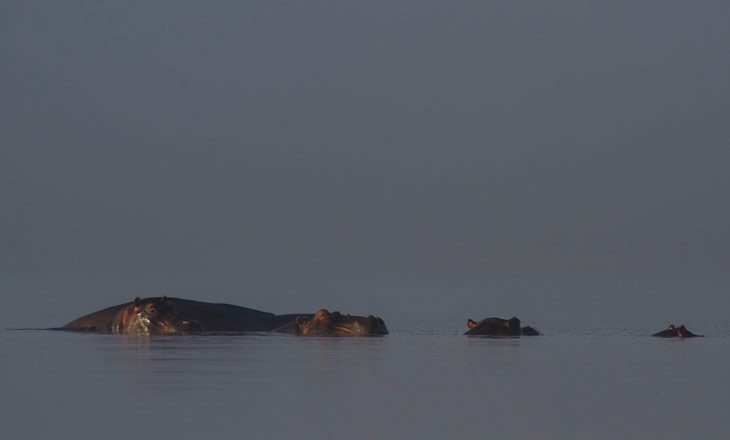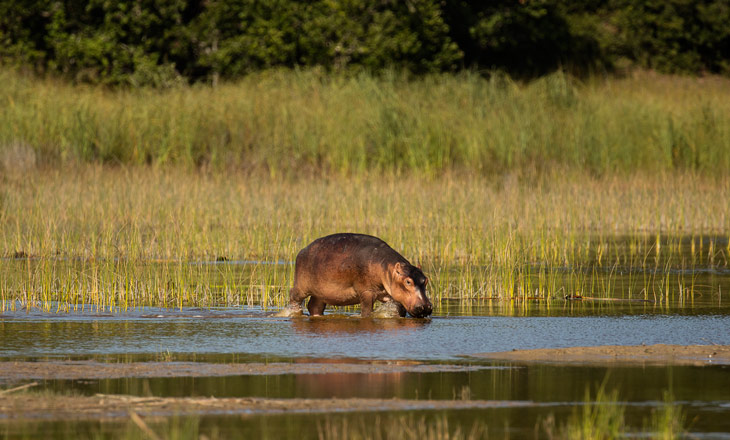BIOFUND, through the Mozambique Conservation Leadership Program (PLCM) will participates from 8th to 9th of September in Kigali – Rwanda in a Conference on Conservation Business with the theme “Environmental Investment – from scarcity to abundance”.
PLCM Seeks Partnerships at Business of Conservation Conference, Kigali 2019
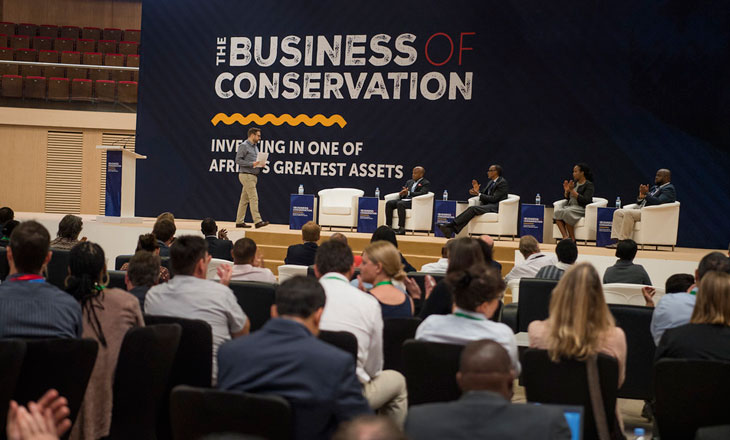
This conference will bring together around 300 participants from around the world, including, CEOs, political leaders, investors, entrepreneurs, innovative conservationists, including a new generation of young leaders to analyze how to ensure economic growth for nature conservation.
The Conservation Business Conference (BCC) aims to catalyze economic development in Africa by bringing together influential leaders to collaborate tangibly around one of Africa’s competitive advantages – its unique biodiversity.
According to the organization of the event, this year’s edition will seek to raise some questions, namely:
- What would it take to make conservation a ‘growth’ industry in Africa?
- What conditions would enable us to move our wildlife and habitat from scarcity to abundance?
- How could nature be one of the key drivers of Africa’s development trajectory–instead of a casualty of development?
- How can conservation attract a greater percentage of African and Global environmental investments?
BIOFUND’s participation in the event will be an occasion to broaden its network of partners and funding for its programs, in particular for its Conservation Leadership Program – PLCM.
For more information about the conference visit: https://africanleadershipuniversity.swoogo.com/bcc_2019/274277
V Edition of the largest Biodiversity Exhibition will prevail in the memory of Manica residents
Almost 4000 people had access to the V edition of the largest sample of Biodiversity of Mozambique, between 8 and 17 August 2019, in the city of Chimoio, province of Manica, an event visited by His Excellency Filipe Jacinto Nyusi, President of the Republic and held in synergy with the all school games.
During the visit, the Head of State challenged BIOFUND to systematize Mozambique’s biodiversity contents and turn the rich contents of the exhibition into a book. The exhibition entitled “The Culture of Conservation and Sustainable Development” includes a multimedia exhibition, a fair, lectures, film sessions, among other environmental education activities
This year’s multimedia exhibition was held at the Catholic University of Mozambique, Chimoio City, Manica delegation, and consisted of 84 panels illustrating different ecosystems and species, complemented by a screening of about 32 films related to Mozambique’s Biodiversity.
“The visit to the Exhibition was an odd opportunity to complement my knowledge of the rich Biodiversity of Manica and Mozambique globally, with particular emphasis on some endemic flora species,” said Chilasse Salvador Fernandes, a young graduate in Ecotourism and Wildlife Management, by the Superior Institute of Manica.
The event also featured a Fair that was attended by 27 exhibitors, including conservation organizations, educational institutions, private companies, government, projects and local artisans who showed the best of their work and initiatives, between 8 and 10 of August.
The first day of activity was marked by a session in the morning, including a forum entitled “Mining and Water Pollution: Challenges and Solutions” which was attended by 257 people. The success of this event was so evident that, according to the organization of the event, several BIOFUND partners have requested for a future replication in Maputo of the debates hosted in Chimoio.
Also on the first day, the afternoon session was marked by the presentation, by representatives of Chimanimani National Reserve, Fauna & Flora International and Gorongosa National Park, of the results of studies on “Conservation of Biodiversity and Identification of New Species in the Reserve Chimanimani National”. Also noteworthy is the launch of the Map of Arts of Manica, produced by Cine Group with the support of BIOFUND, which is now available in the main tourist sites of the city.
The period from 10 to 17 August, in addition to an Environmental Education Festival at Sussudenga Secondary School, Sussundenga district, which attracted around 1,200 people, included the holding of environmental education lectures in partnership with ANAC, FNDS and EcoMicaia at UniZambezi University and at the all school game accommodation centers: Bagamoio Home, Teacher Training Institute – Chibata and Chimoio Agrarian Institute. As an integral part of the school games program, sportspeople took a guided tour of the exhibition on 15 August.
According to the Minister for Education and Human Development, Conceita Sortane, the exhibition is of such relevance that it provides a clear opportunity to study ways of including its contents at the classroom level and has encouraged BIOFUND to continue to drive these discussions.
BIOFUND had the collaboration of the Ministry of Education and Human Development, National Administration of Conservation Areas (ANAC), Manica Provincial Government, Chimoio Municipal Council, Sussundenga Municipal Council, Sussudenga District Education, Youth and Technology Service ( SDEJTS), educational institutions, the business sector and non-governmental organizations.
This Edition had the particularity of including, on August 9, the launch of the campaign against poaching, marked by the movie “Elephant Defender”, produced by ANAC.
Mozambique participates in the 18th Conference of the Convention On the International trade of Fauna species and Threatened flower of extinction
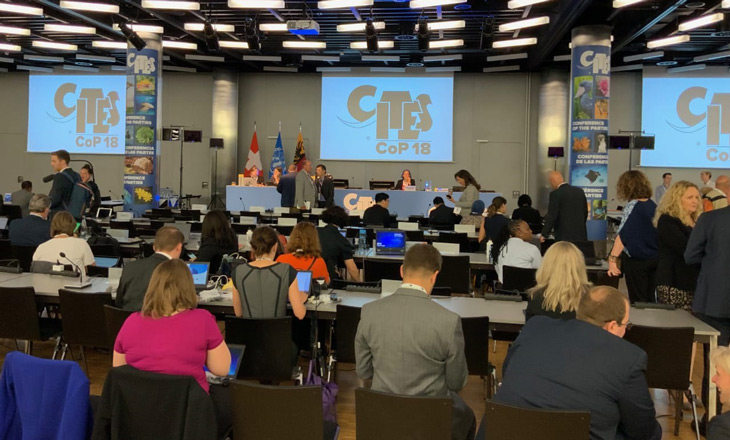
The 18th Conference of the Convention on International Trade of Endangered Species of Wild Fauna and Flora is under way until 28th of this month (CITES)
Convention is the highest political decision-making meeting on the processes for the Conservation and International Trade of endangered Fauna and Flora Species.
Several decisions and resolutions are expected to be taken on conservation issues, namely: sustainable exploitation and international trade of wildlife species, including coordination of efforts to combat crime against them.
“CITES is a powerful tool for ensuring sustainable use of wildlife resources and responding to the rapid loss of biodiversity – often called the sixth extinction crisis – by preventing and reversing the decline in wildlife populations. This year’s conference will focus on strengthening existing norms and standards, while while extending the benefits of the CITES regime to plants and animals threatened by human activity.” said CITES Secretary-General Ivonne Higuero.
Mozambique’s participation is being led by the Ministry of Land, Environment and Rural Development (MITADER) through the National Conservation Areas Administration (ANAC).
A Map promoting Manica's tourism, cultural and biodiversity places
A special edition of Mapa das Artes, indicating several touristic and cultural points, as well as aspects about the biodiversity of Manica province, was launched in the city of Chimoio, during the V Edition of the Largest Mozambican Biodiversity Exhibition, under the motto “The Culture of Conservation and Sustainable Development”.
Showing that Manica is much more than the Old Man mountain and Serra do Vumba, the Map of the Arts, produced by the Cine Group Mozambique with the support of the Foundation for the Conservation of Biodiversity (BIOFUND), allows you to take a trip through the cultural and tourist sites of Manica, interlinked with biodiversity aspects, helping to discover ancient flavours and secrets preserved over time.
First published in 2017, with sights of Maputo, Mapa das Artes circulates and is holding a rich cultural diversity. In 2018, for the first time in partnership with BIOFUND, the platform showed places from Inhambane Province, integrating biodiversity to the tourist poster of Mozambique.
With the release of this edition about Manica, the Director of Map of Arts, Gabriel Borges, says it is a great achievement for the country, as the vehicle allows greater dissemination of tourism and cultural potential.
“We look at the Arts Map as a way of making Mozambique increasingly culturally known, and this special edition of Manica portrays a little about the biodiversity and conservation areas of that region.”
Mapa das Artes is a guide that portrays the tourist and cultural potential of the provinces in which it is present. In addition to being available in physical and free format, this cultural agenda also exists in digital format and can be accessed at https://www.mapadasartes.co.mz
In addition to Cine Group Moçambique and BIOFUND, Mapa das Artes Manica has the support of the National Tourism Institute (INATUR), Fauna and Flora International, ANAC and Mozambique Airlines.
Biodiversity in Mozambique - President Filipe Nyusi Inaugurates the 5th Edition of the BIOFUND Exhibition
The President of the Republic of Mozambique inaugurated in Chimoio the 5th annual edition of the exhibition “BIODIVERSITY IN MOZAMBIQUE” and congratulated BIOFUND for this initiative, which shows, especially to younger generations, the need to preserve nature to guarantee the future of humanity.
The Head of State visited the 90 panels exhibited in the amphitheater of the Catholic University of Mozambique, and talked to over two dozen exhibitors at the fair about conservation activities that accompany the exhibition, encouraging them to continue and expand their work. The Head of State also watched the screening of Elephant Defenders, marking the launch of an international campaign against poaching, promoted by ANAC.
With the subtitle “Conservation Culture and Sustainable Development” the Exhibition aims to raise awareness among society and, in particular, new generations, about the importance of biodiversity in Mozambique. The exhibition focuses particularly on the province of Manica and the landscape of the Chimanimani National Reserve, known for the endemism of various flora and fauna species.
The exhibition will be on display at the UCM amphitheater until August 17 and will also feature 32 documentaries on the country’s biodiversity in attached rooms. At the same time, several lectures on environmental issues are being held at the student´s accommodation centers linked with the 14th edition of the all school games.
The Head of State’s visit was preceded (on 8 August) by a discussion forum attended by Deputy Minister of Education and Human Development, Armindo Nuvunga. The forum served to address the problem of mining and pollution of aquatic systems in Manica province, with emphasis on artisanal gold mining, which often has harmful consequences for biodiversity, mainly due to mercury contamination of rivers. Also in this forum were presented the results of the largest biological survey of fauna and flora of the Chimanimani National Reserve, lecture by young masters students of Gorongosa National Park and the administrator of the Chimanimani National Reserve.
Also within the scope of the Biodiversity Exhibition on August 10, an environmental education event was held at Sussundenga Secondary School, in partnership with Chimanimani National Reserve, District Government, FNDS / Mozbio 2, Fauna and Flora International, EcoMicaia and Gonazololo Association, an event that involved about 1200 students and residents of the village of Sussundenga.
This activity included lectures, drawing contests, film projection, educational games, recycling of paper, plastic and metals, among other activities. Students who excelled in the activities of drawing, poetry and recycling were awarded. The event also includeda 500 tree planting project launch in Sussundenga district.
It is estimated that by the end of the fourth day of the Biodiversity Exhibition, over 2500 people will have participated in the event, including visitors from other parts of the country.
In memoriam: Claudia Sobrevila
BIOFUND Mozambique has heard with sadness of the passing away of Claudia Sobrevila of the World Bank. Claudia was a great friend of Mozambique and BIOFUND, and was instrumental in encouraging, supporting, and guiding our institution in its earliest and most critical days. We would not be the institution we are today without her, and she will be deeply missed. Our condolences go out to her immediate family, and to her enormous extended family around the world.
Thank you.
Biodiversity Exhibition: Forum on Mining and Pollution
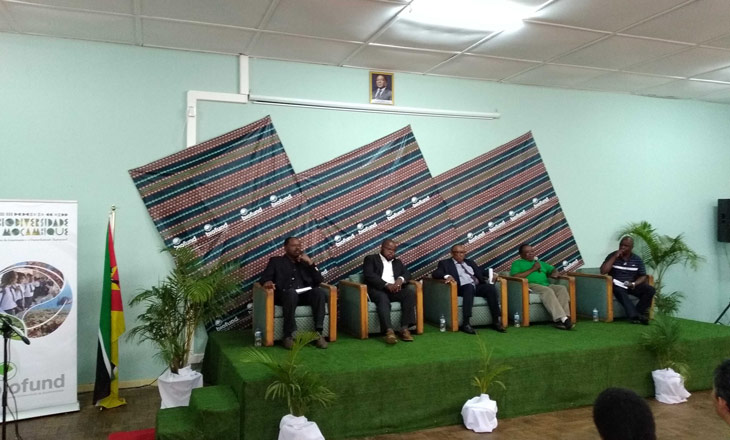
Mining and Water Pollution, was the theme of the forum held this Thursday, August 08th, at the Catholic University, delegation of Manica, in the context of the V edition of the Mozambican Biodiversity Exhibition, entitled The Culture of Conservation and Sustainable Development (see aqui the detailed program of this activity).
The event was attended by His Excellency Deputy Minister of Education and Human Development, Armindo Nuvunga, who highlighted the relevance of the event to the formation of young people. For its part, he called for the massive participation in the event, during the 10 days, of the approximately 2000 students who are part of the XIV edition of the school games taking place simultaneously in Chimoio.
The presentations were preceded by a film that addressed the issue of gold mining in Mozambique, which, like the forum’s different presentations, highlighted issues such as land and landscape degradation, river and stream pollution and siltation, child labour, among other harmful aspects.
Isidro Manuel (PhD), geologist and associate professor (UEM), member of the panel, highlighted the negative impacts of informal mining and the need to formalize artisanal mining activity in order to strengthen coordination, legalization, strengthening concept of designated areas and the use of good practice to minimize the impact of the damage that this activity may cause to the environment.
Other Mozambican experts contributed to the event, especially the panel which also included: Tomás Muacanhia, UniZambeze; DinisJuízo (PhD), Associate Professor – Hydrology and Water Resources Management (UEM) and Dr. Joaquim Langa, ITC-F representative.
However, on August 10th, a cycle of lectures (see the program) will begin, which will take place throughout the week, from August 10th to 17th.
At the same time, other environmental education initiatives are scheduled, highlighting the event scheduled to take place in Sussundenga (see the detailed program of the event)
BIOFUND Announces the First Contest for Research Grants Concerning Biodiversity Conservation in Mozambique
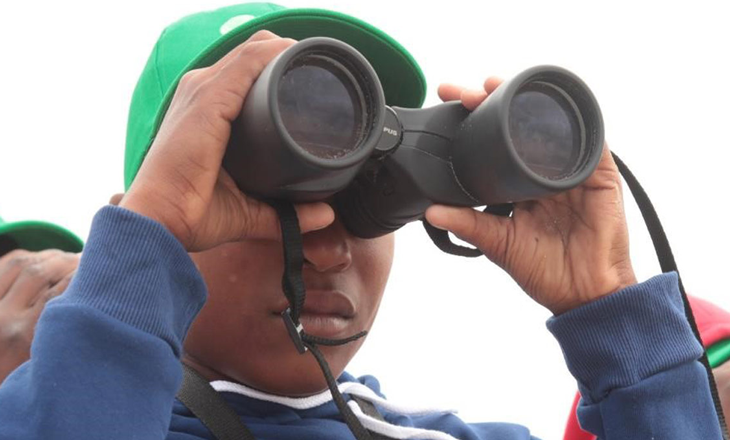
Until the 30th of August, the first research grant contest is underway for elaboration of researchprojects for undergraduate and master’s levels conclusion, related to multidisciplinary areas that are directly linked to specific and selected needs of Conservation Areas.
This pilot initiative will cover priority research topics in conservation areas, including the Maputo Special Reserve, Zinave National Park, Limpopo National Park, Gorongosa National Park and the Cape San Sebastian Total Protection Zone.
The contest was launched in the context of the Mozambique Conservation Leadership Program (PLCM) which aims among other things to motivate and attract young students to the conservation system.
Interested candidates may obtain the terms of reference through the BIOFUND website (https://www.biofund.org.mz/projects/programa-de-lideranca-para-a-conservacao-de-mocambique-plcm/).
Applications should be submitted via the following email address: plcm@biofund.org.mz
For more information on the PLCM, please refer to our web page: : https://www.biofund.org.mz/projects/programa-de-lideranca-para-a-conservacao-de-mocambique-plcm/
V Edition of the Largest Mozambican Biodiversity Exhibition Will Take Place During the School Games
Between the 8th and 17th of August, in the city of Chimoio, the largest exhibition on Mozambican biodiversity will take place, an event organized by BIOFUND, entitled “The Culture of Conservation and Sustainable Development”. The purpose of the event is to disseminate information about Mozambique’s rich biodiversity, with particular focus on the province of Manica.
The official opening of the exhibition will be made by His Excellency President Filipe Nyussi, on August 9, at the Catholic University of Mozambique – Delegation of Manica.
This event also includes a forum for discussion and debate on biodiversity conservation and a fair where local conservation partners will have the opportunity to publicize their projects and achievements, showing the challenges they face in their daily lives.
This is the fifth edition of an itinerant event which, after being launched in Maputo in 2015, in 2016, scaled the province of Gaza, followed in 2017 by the province of Zambézia and, in 2018, the from Inhambane.
Experience Exchange Between Mozambique and Madagascar on the Implementaiton of Biodiversity Offsets
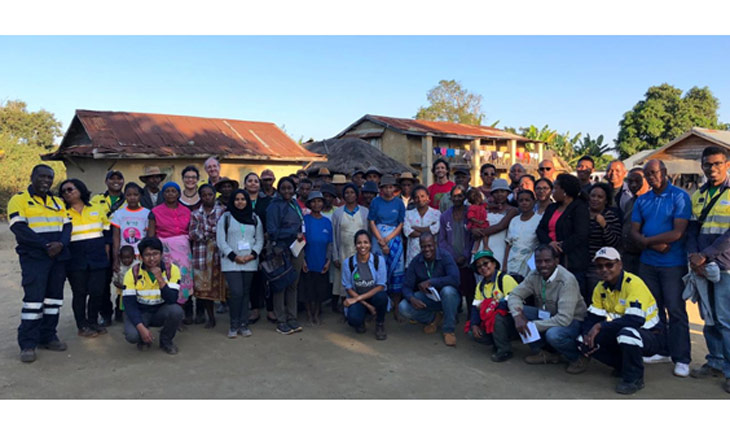
BIOFUND under the Mozbio 2 Project in partnership with the COMBO Project and the Government of Madagascar held from 7 to 14 July 2019 in the cities of Andasibe and Antananarivo in Madagascar an exchange experience visit on biodiversity offsets with the goal of achieving “no Net biodiversity loss” at the level of development projects.
Biodiversity offsets aim to compensate negative environmental impacts that may result from development projects, particularly from the extractive industry.
The 7-day visit to Madagascar aimed at visiting the Ambatovy mine and promote the exchange of experience and knowledge between representatives of the countries represented. Around 25 participants attended the visit, including members of the government of the environmental sector, conservation areas, mining and oil, private and public environmental funds and private sector.
Madagascar is currently one of the African countries with a largest experience in implementing biodiversity offsets, as it has biodiversity offset projects implemented voluntarily by the country’s two leading mining companies, Ambatovy (one of the largest large tonnage and long-life miners for nickel and cobalt mining in sub-Saharan Africa and the Indian Ocean region) and Qit Madagascar Mineral – QMM (ilmenite and zircon mining from heavy sand extraction with a 40-year operational plan).
The exchange of experiences featured a number of workshops including Governance, Policy and Law workshops to minimize the impact on biodiversity in Africa: present and future, Discussion on the objectives of the COMBO Project, Implementation of the Mitigation Hierarchy in Madagascar: Visit from Ambatovy mine field, Discussion on guidelines for implementing the mitigation hierarchy: case of Mozambique and mechanisms for collaboration and funding for the implementation of biodiversity offsets.
This activity fits in with the objectives of the COMBO Project to support Governments, the private sector and civil society in Mozambique, Madagascar, Uganda and Guinea to support each country’s policies and capacity to reconcile economic development and biodiversity conservation and ecosystem services. In this context, BIOFUND and the COMBO Project have been collaborating to promote learning experiences between the COMBO Project implementing countries in the implementation of the mitigation hierarchy, and this trip was followed by an exchange of experiences trip held in Mozambique, with the participation of Madagascar and Uganda Environmental funds, Government representatives from Mozambique and Madagascar on biodiversity offsets thematic area.
This visit to Madagascar has resulted in the recognition of the relevance of experiences exchange trips in the promotion of knowledge and consolidation of lessons learned about on the implementation of this concept in the context of each country. This meeting emphasized the relevance of the COMBO Project as well as the role of environmental funds in financing and monitoring biodiversity offset projects, an example already in place in Madagascar.
The above-mentioned initiatives for sharing experiences are in line with the recommendations of CAFÉ – African Environment Fund Consortium where countries exploring offsets schemes should promote training and learning opportunities to strengthen collaboration between the Environmental Funds through this network.
International Day for Mangal Ecosystem Conservation
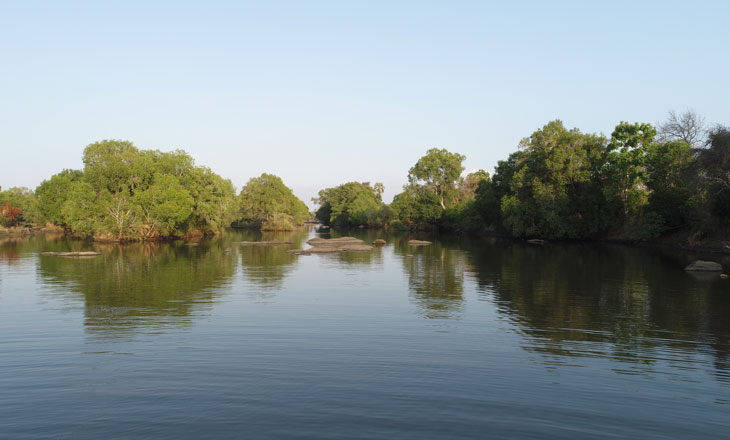
The World Mangrove Ecosystem Conservation Day is celebrated on 26 July. According to UNESCO, it is estimated that worldwide mangrove coverage will have halved in the last 40 years due to coastal development and the impact of climate change.
Mangrove forests are a transitional coastal ecosystem between the terrestrial and marine environment that have specific adaptations to respond to the extreme salinity, wind and tidal cycle conditions to which they are continually exposed.
This ecosystem is the basis for coastal and marine life, mangroves are a key player in combating climate change, contributing to climate control through carbon sequestration, water purification and air. They act against natural phenomena such as cyclones, coastal erosion, floods, rising sea levels, minimizing impacts while providing stability and protection to coastal areas. In addition to providing important timber resources for the communities’ lives, they are the basis for the production of medicines, and nursery for various marine species such as fish, crab and shrimp, considered crucial for the dietary food of coastal communities, the country’s economy and for the balance of the oceans.
Despite their importance, the value of mangrove forests is still poorly known, placing them under great vulnerability not only for the impact of climate change but for the great global coastal economic development.
World Day for Mangrove Ecosystem Conservation leads to reflection on the growing coastal development and the need for active advocacy to strengthen mangrove governance through conservation, preservation, sustainable management and community awareness. about its importance and value.
Mozambique has a relevant role to play in mangrove conservation considering that at least 2/3 of its population lives in the coastal zone and has Africa’s 3rd largest mangrove extension and 13th largest global coverage.
BIOFUND recognizes that mangroves are unique and vulnerable ecosystems and joins the United Nations International Mangrove Day commemorations to increase awareness of their importance and seek sustainable solutions for their management and conservation.
Avifauna Management, Protection and Sustainable Use Regulation in Preparation
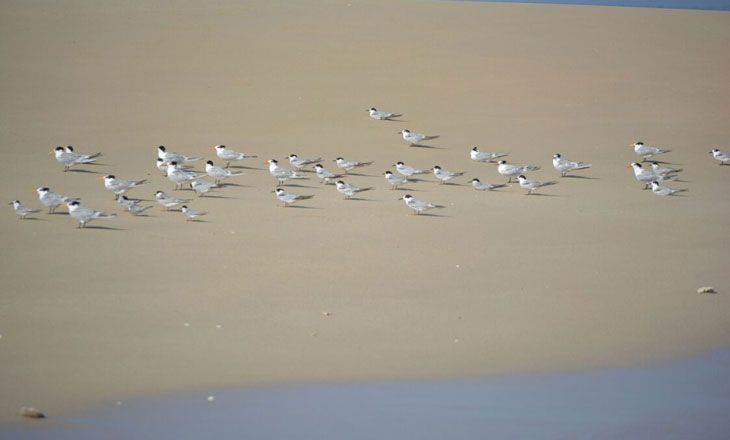
The Ministry of Land, Environment and Rural Development, through the National Conservation Area Administration (ANAC), in partnership with USAID’s SPEED + Project, is in the process of preparing the Proposed Regulations on Management, Protection and Sustainanble Use of Avifauna.
In view of the relevance of the legal instrument and in order to submit it to the public participation process, hereby all interested parties are invited to attend a public hearing meeting to present the content of the Proposal for a Regulation, and obtain public contributions to its finalization.
The Public Hearing Meeting will be held at 9:00 am on August 13, 2019, at the unannounced venue.
The Draft Rules can be accessed on the following web pages:
Comments and observations may be sent by 16 August 2019 to the following email addresses:
Forum Highlights Some of The Major Challenges of The Largest Marine Conservation Area of Mozambique
This was one of the results of the forum held last June 18th over the theme “The Wonders and Challenges of the Largest Marine Conservation Area of Mozambique”, correlated with the General Assembly of BIOFUND, held at the Montebelo Indy Maputo Congress, Maputo.
The Forum was intended to exchange experiences on conservation efforts in the region, to discuss the various challenges facing its management, particularly associated with the growing economic development in the region, and to explore synergies to promote sustainable development in APAIPS.
The event was attended by representatives of financial entities, members of government, civil society, academy, local communities, private sector and media.
During the debate, aspects related to the dynamics of the APAIPS operation were highlighted, with emphasis on some of the problems that this area of protection is facing, namely: mangrove deforestation due to anthropogenic factors; the mining activity that has changed the environmental conditions triggering and contributing to several environmental problems that alter the balance to the marine environment; the absence of an administrative structure; and the possible occurrence of coral bleaching.
On the other hand, Mateus Mutemba, Director of ANAC, one of the guests of the panel, stated that “the present moment is a very important milestone in the beginning of a new work between different actors, aiming for a more effective management, which began with the hiring and presentation of the APAIPS administrator to partners in the provinces of Zambézia and Nampula. From this moment, conditions are created to coordinate and take advantage of opportunities for development that take into account the different forms of resources in the referred area of protection.”
Below you will find topics and links to forum presentations including a video:
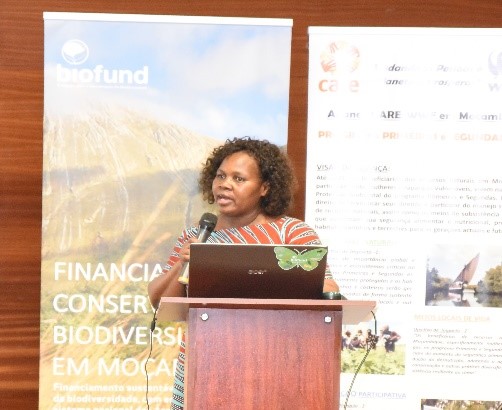
Ricardina Matusse – Administrator of APAIPS
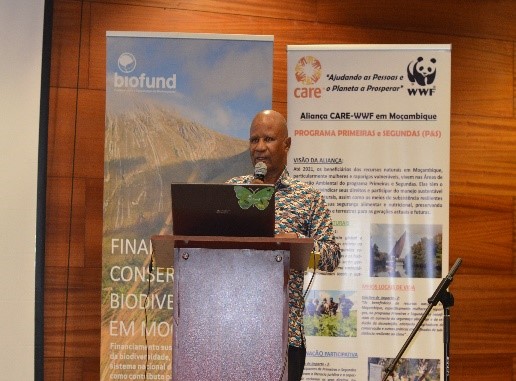
Community involvement in biodiversity conservation initiatives of APAIPS
Domingos Almeida, Association of Artisanal Fishermen of Pebane, APAPE
June, The Ocean Celebration Month
Under the United Nations International Day of Oceans motto – No to Marine Pollution on June 8th , BIOFUND, in partnership with the Fisheries Museum and the Ministry of the Sea, Inland Waters and Fisheries (MIMAIP), carried out a number of environmental education on the importance of coastal and marine biodiversity for the life of living beings.
The oceans constitute about two-thirds of the earth’s surface and contribute in an indispensable way not only to man, but to the entire planet.
– Marine pollution is currently a major danger to the oceans and endangers the survival of various marine species, including sea giants such as manta ray, sea turtle, dugong, dolphin, whale and whale shark – said Narci Nuro de Premegi, Permanent Secretary of the Ministry of the Sea, Inland Waters and Fisheries.
BIOFUND through its Biodiversity Exhibition on marine, coastal and aquatic biodiversity illustrated in various panels, photos on sustainable fisheries, lectures on the importance of mangroves to mitigate the impact of coastal pollution on the oceans has sensitized an additional 500 primary and higher education students of the city of Maputo.
The importance of mangrove forests in mitigating the impacts of coastal pollution was also emphasized as well as the various challenges such as climate change, population growth, degradation of the marine environment, loss of biodiversity, pollution and proliferation of plastic garbage that demand urgent intervention of man to guarantee the health of the oceans and the maintenance of resources for the current generation, as well as for the future.
This celebration is taking place at a time when BIOFUND is preparing to carry out, next August 2019, in Chimoio, the fifth edition of the largest biodiversity exhibition in Mozambique, targeting more than 5000 visitors, entitled “The Culture of Conservation and Sustainable Development”
Maputo hosted the VII General Assembly of the Foundation for the Conservation of Biodiversity - BIOFUND
The VII General Assembly of the Foundation for the Conservation of Biodiversity (BIOFUND) was held in the city of Maputo. The event was held on June 18th 2019 under the chairmanship of Professor Doctor Lourenço do Rosário and attended by more than 50 representatives of governmental and non-governmental institutions related to the conservation sector. During the session, the members of this body approved the 2018 activities and finance reports, as well as the plan and budget for 2019.
These presentations included: (i) the foundation’s growth and the assumption of greater responsibilities in new projects such as Mozbio 2 (with World Bank funding), including the implementation of the Conservation Leadership Program; ii) BIOFUND’s contribution to the establishment of procedures for the implementation of biodiversity counterbalances; (iii) the growth of its investment capital; (iv) doubling the volume of BIOFUND disbursements (about US $ 2 million disbursed in 2018) and supporting more than half of Mozambique’s parks and reserves.
“This moment is very important for us because it allows to do an analysis and evaluation of our work, level of execution of our activities and ultimately the exchange of ideas about the path we want to follow. We are happy because our institution helps to reinforce the awareness and importance of biodiversity for the country. We are growing, the impact of our activities is visible, so we want to reinforce the idea that the Foundation for Biodiversity Conservation – BIOFUND is an important pillar in the sustainable development of Mozambique, “according to the program director, Alexandra Jorge.
VII General Assembly of Biofund: Forum of debate on the largest Area of Marine Conservation of the Country
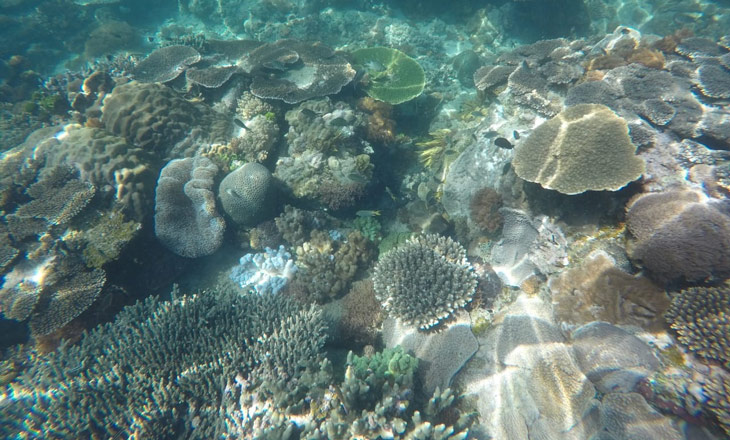
The VII General Assembly of BIOFUND will take place next June 18, and this year, the theme of the subsequent forum, at Montebelo Indy Maputo Congress, at 5:00 p.m., will be “The Wonders and Challenges of the Largest Marine Conservation Area in the Country “
The Environmental Protection Area of the First and Second Islands Archipelago (APAIPS) covers an area of approximately 1,040,926 ha, along a land area of 205 km, covering the provinces of Nampula and Zambezi. It has estuarine areas, rich in mangrove forests, coral reefs, fish resources and several endemic species of fauna and flora, such as Icuria dunensis, providing a colossal ecological and socioeconomic potential.
Recognizing this value, BIOFUND proposes to hold a dissemination forum that will have the participation of several experts that worked and studied the APAIPS and an exhibition open to the general public.
For more information on the APAIPS, please consult:
biofund.org.mz/biblioteca_virtual
Biofund in Highlight at the International Conference Growing Blue in Maputo
Mozambique hosted the International Crescendo Azul Conference promoted by the Ministry of the Sea, Inland Waters and Fisheries (MIMAIP) between 23 and 25 May, with BIOFUND standing out with a multidisciplinary participation.
The conference aimed to promote reflection on the management of marine and coastal resources, provide assistance in decision-making and define actions for the realization of a common vision for the sustainable development of the oceans.
BIOFUND was supported by the Biodiversity Offsets Program, funded by the CPI / USAID, and participated at various moments in the conference on the theme “Together for the Enhancement of Mozambique’s Marine and Coastal Biodiversity“. The participation includes high-level debates, a speech on the importance of mangroves in combating marine and coastal pollution, and the exhibition of marine biodiversity in Mozambique.
The event was attended by more than 500 representatives of bilateral, multilateral institutions, governmental institutions, non-governmental organizations, academics, local communities and media representatives at the national and international level, with the participation of the Honourable President of the Republic of Mozambique, Filipe Jacinto Nyusi, the Honourable President of the Seychelles, Danny Faure, and other representatives of the region.
The Chairman of the Board of BIOFUND, Dr Abdul Magid Osman in his participation in the High Level Panel highlighted the various aspects related to the management of the marine environment in Mozambique and the need to promote sustainable development based on the importance of ecosystems that can promote the well-being of communities.
Under the scope of the event on May 24 and 25 in the Museum of Fisheries, a speech was held on the importance of mangroves for humans beings guided by BIOFUND technicians in order to sensitize young students about the importance of mangroves in the maintenance of the ecological balance of cities and life of living beings, and the exhibition of marine biodiversity illustrated through exhibition panels and photographs representing sustainable fisheries practices.
In partnership with the Eduardo Mondlane University, Faculty of Biological Sciences, Department of Marine Biology, 4th year students took visitors to the exhibition on an incredible tour of the marine, aquatic and coastal biodiversity of Mozambique.
This conference is part of the actions planned by BIOFUND as part of its Strategic Plan and its programs to raise awareness among civil society of the urgent need to harmonize economic development and biodiversity conservation with a particular focus on conservation areas in Mozambique.
BIOFUND participation was supported by the photographer Pedro Ferreira (www.ferreirasphotography.com) in the photographic exhibition on marine life on the stand of the Joaquim Chissano Conference Center and the Environmental Educator and photographer Mário Ngonga who collaborated in the speech and photographs exhibition on sustainable fisheries held at the Fisheries Museum.
World Environment Day
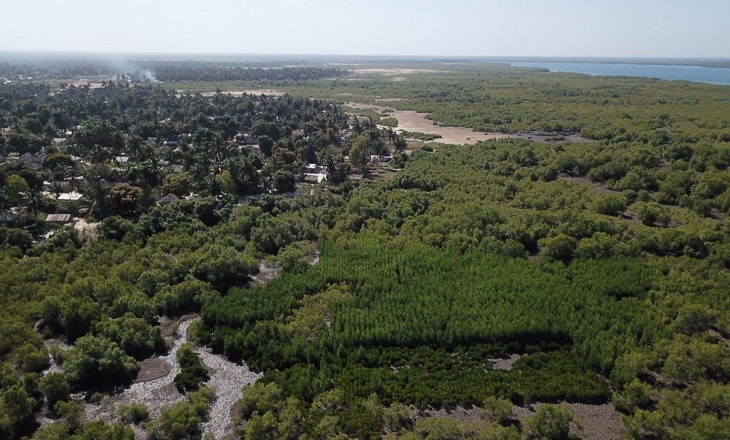
World Environment Day (WED) is celebrated on the 5th of June every year, and is the United Nation’s principal vehicle for encouraging awareness and action for the protection of our environment.
First held in 1974, it has been a flagship campaign for raising awareness on emerging environmental issues from marine pollution, human overpopulation, and global warming, to sustainable consumption and wildlife crime. WED has grown to become a global platform for public outreach, with participation from over 143 countries annually.
Each year, WED has a new theme that major corporations, NGOs, communities, governments and celebrities worldwide adopt to advocate environmental causes. This year the chosen theme is: “Air Pollution”
BIOFUND also marks this date in the context of the celebration of the day of the oceans with an exhibition at the Museum of Fisheries, scheduled to run until 8 June.
For more information: https://www.unenvironment.org/news-and-stories
BIOFUND takes part of the 2019 International Conference "Growing Blue"
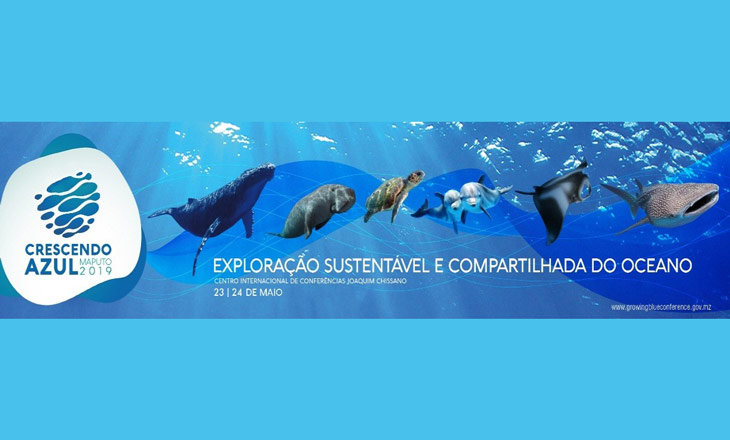
BIOFUND will take part of “Growing Blue” conference, organized by the Ministry of the Sea, Inland Waters and Fisheries, between May 23 and 25, this year at the Joaquim Chissano Conference Center and the Fisheries Museum in the city of Maputo.
The initiative of the Ministry of the Sea, Inland Waters and Fisheries, aims to promote the integration of the development of the oceans economies in the framework of sustainable Blue Economy, taking into account the robust scientific and technological knowledge.
BIOFUND, on May 24th and 25th, will provide a voyage to the oceans world through an exhibition of marine biodiversity. “Together for the Valorization of Fisheries and Marine Resources in Mozambique, is the theme that will be illustrated in panels and photographs around items such as sustainable fishing, the importance of mangroves, among other aspects. The thematic will also be addressed at Joaquim Chissano Conference center on May 23rd and 24th
Biofund aims to drive visitors to a reflection on the pressure that the marine ecosystem is undergoing because of the human activities that directly affect the oceans. The exhibition will focus on the richness of underwater biodiversity in Mozambique, which should be protected by its relevance in people’s lives and ecosystems.
The theme of the conference will be “Sustainable and Shared Ocean Exploration”, with discussion sessions being organized around various topics, with emphasis on topics such as Governance and Ocean Sustainability;
Simultaneously with the activities mentioned in the above paragraph, in the amphitheater of the Museum of Fisheries, an exhibition of films with themes related to marine ecosystems is scheduled, in order to alert the public of the importance of the preservation of the oceans.
BIOFUND celebrates the world water day and launches virtual library of biodiversity in Mozambique
BIOFUND in partnership with the Pedagogical University (UP), held on 22 March, World Water Day, a debate on water management in urban environment in Mozambique, with the aim of raising awareness about the management of this indispensable natural resource to the life of all living beings.
The event took at Faculty of Sciences and Philosophy of the Lhanguene University Campus of Pedagogical University and gathered around 200 students, teachers, public, private organizations, civil society and media.
Under the motto of the United Nations for the year 2019 Whoever you are, wherever you are, water is your human right, Professor Gustavo Dgedge – lecturer at UP, stressed that water management is a permanent challenge and that we all have a role to play to ensure the sustainable use of this natural resource.
During his speech Professor Dgedge reiterated that the environmental catastrophe that the center of the country is facing points to a profound reflection that integrated management of water resources should be a priority of the country’s development agenda.
Still on this occasion, BIOFUND launched the biodiversity virtual library: an online platform that provides access to over 2200 entries: study reports, scientific articles, educational materials, maps and digital files about biodiversity in Mozambique.
This initiative is part of BIOFUND’s effort to promote knowledge and increase environmental awareness of society and it was supported by its partners such as Counterpart International / USAID and the COMBO / WCS Project.
For more details access the Virtual Library at: https://www.biofund.org.mz/biblioteca_virtual/
BIOFUND and COMBO Project promote an exchange of experiences workshop for Environmental Funds of Madagascar, Mozambique and Uganda on biodiversity offsets
BIOFUND in partnership with the COMBO Project held between 18 and 20 February 2019 in Maputo City, Mozambique an experience exchange workshop for Environmental Funds of Madagascar, Uganda and Mozambique members of the consortium of African environmental funds (CAFÉ) on biodiversity offsets as a mechanism to harmonize economic development and biodiversity conservation in Africa.
Biodiversity offsets are conservation measures to compensate negative environmental impacts that may result from development projects such as large-scale agricultural and extractive industry projects.
About 20 participants attended the event, including representatives of the environmental funds, public institutions in the conservation sector of Mozambique and Madagascar, representatives of civil society, multilateral agencies and the media.
This event featured a number of working sessions and networking opportunities to share the experiences of each country regarding the implementation of biodiversity offsets as a financial mechanism to support biodiversity conservation. A field trip to Maputo Special Reserve complemented the event, giving participants the opportunity to witness the rich terrestrial and marine biodiversity of one of the most important conservation areas in Mozambique, and hear from its Administrator, Mr. Miguel Gonçalves about the conservation and protection actions that have been carried out in partnership with the Peace Parks Foundation (PPF) among other actors including BIOFUND, as well as the challenges that urban development represents for this region.
This meeting culminated with the agreement for the creation of a dedicated biodiversity offsets working group within the African Funds Network (CAFE). Thus, creating a communication platform for sharing knowledge and experiences among countries with the support of partners such as WCS through the COMBO Project.
This collaborative mechanism will enable Africa to unite efforts, harmonize procedures and document its path towards harmonization of economic development and biodiversity conservation.
For more information visit
Watch the videos of the Biodiversity Itinerant Exhibition 2015-2018!
Initially shown in Maputo in 2015, in a ceremony presided over by His Excellency the President of Mozambique, in Maputo, the BIOFUND Biodiversity Exhibition was transformed into an itinerant program, so that the first systematic survey of our natural heritage would also be appreciated in other capitals of the country.
The first point visited was the city of Xai-Xai in 2016; the second was Quelimane in 2017 and the third Inhambane in 2018.
The main objective of the exhibition and biodiversity fair is to share information and knowledge about the importance and need to conserve biodiversity in our country, with particular emphasis on the richness, risks and challenges that exist, identifying and involving partners and beneficiaries from different areas of action. The primary recipients of this initiative are teachers and pupils in primary and secondary schools, educational centers and universities, and encourage the participation of the general public.
Watch the videos, follow BIOFUND in this retrospective and be part of the 2019 edition in the province of Manica!
BIOFUND explores partnership opportunities for training professionals in the national system of conservation areas and young conservationists
This visit is part of a series of actions to identify qualified institutions for the development of training, coaching and mentoring activities that BIOFUND is carrying out under its Conservation Leadership Program, improving the institutional capacity of the national conservation system; (ii) expanding and improving the recruitment base for conservation institutions; and (iii) encouraging youth in general to engage in voluntary conservation actions at national level.
During this visit, BIOFUND team collected information on the range of courses that SAWC offers from long-term courses to short courses related to biodiversity conservation, and had fruitful discussions with different SAWC teams on possible collaboration / partnership platforms for training personnel in the national conservation area system, young conservationists and general public.
SAWC already has a partnership with ANAC and, in this context, has been training staff from conservation areas in Mozambique.
The team also had the opportunity to visit training infrastructure and discuss with three (3) Mozambican students from the Limpopo National Park, who are currently studying at SAWC, that served as a practical example for assessing the training services that Southern African Wildlife College offers.
The preparations for the 5th edition of the Annual Biodiversity Conservation Exhibition have begun: Manica 2019
The province of Manica presents a great biodiversity and at the same time faces many challenges for its conservation. The biodiversity of Manica ranges from beautiful mountainous landscapes – including Monte Binga, the highest point in the country and the emblematic Cabeça do Velho – to marvelous waterfalls and creeks, set in the landscape of a conservation area: the Chimanimani National Reserve, which is since 2017 one of the beneficiaries of BIOFUND funding.
In coordination with the 14th edition of the National Festival of School Games – which this year will have a motto related to conservation and bring together about 2000 young participants representing all the provinces of the country – it is intended to strengthen the importance of biodiversity conservation amongst the youth.
Manica will also be the stage for the launch of the new project “Leadership for Conservation”, under the MozBio program, which will start with training activities in conservation and dissemination of information on internships and scholarship opportunities for young people!
The 5th edition of BIOFUND’s Annual Biodiversity Exhibition in Manica will surely be an event not to be missed!
BIOFUND participates in the 20th Assembly of Latin America and the Caribbean Network of Environmental Funds (RedLAC) in Santa Cruz de La Sierra, Bolivia
The Latin American and Caribbean Network of Environmental Funds (RedLAC) met from 27 October to 1 November 2018 in Santa Cruz de La Sierra city in Bolivia, at its 20th Annual Assembly with the theme of Creativity and Innovation for Sustainable Development.
This is event is held annually rotated among country members and for current year it was held in Bolivia with the support of FUNDESNAP, FCBC and Fundación Natura.
More than 130 members were present among members of RedLAC, CAFÉ – African Consortium of Environmental Funds, members of the government, multilateral agencies, civil society, private sector, representatives of protected areas, academia, media and keynote speakers to present and discuss about innovation for financing biodiversity conservation.
RedLAC considers continuous learning and innovation as a value of the network, which over these years has not only been limited to its financial profile, but also went beyond the environmental, social and economic dimensions, aiming to contribute to local, national sustainable development, regional and global, integrating all relevant sectors of society.
Hereupon, RedLAC highlighted the main contributions and innovations of a joint work of over 20 years of its existence, picking the lessons learned as a basis to face the challenges to reach Agenda 2030.
During the event, several parallel sessions were held, including the session on innovative sustainable financing mechanisms facilitated by the Conservation Finance Alliance (CFA), monitoring and evaluation sessions, biodiversity offsets, K project results, donor round table discussions, success stories in the region and the General Assembly.
A field trip complemented the concept of Innovation in conjunction with the tourism experience in a regional protection area and natural heritage of Bolivia – the Lomas de Arena Regional Park and the Simon Applied Ecology Center Simón I. Patiño that seeks to validate and transfer methodologies to implement sustainable agriculture in fragile tropical soils, seeking to reduce environmental pollution caused by intensive agriculture.
The participation of BIOFUND in this event represented an opportunity for learning and exchange of experience on the most varied areas of intervention of environmental funds. BIOFUND’s biodiversity offsets program was highlighted and presented in two technical sessions, namely the Conservation Finance Alliance Workshop and Project K – Knowledge for Action from RedLAC and CAFÉ Network collaboration.
For more information, visit www.redlac.org
BIOFUND promotes Training Program on Ecological Impact Assessment, Environmental Management Plans and Monitoring for Government and Private Sector
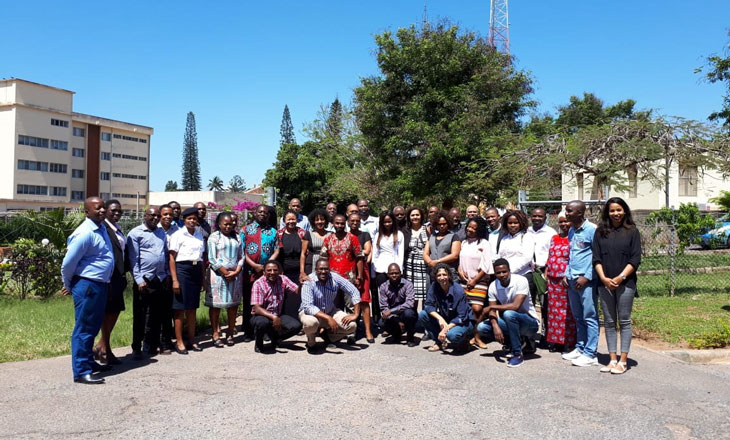
BIOFUND in partnership with Wildlife Conservation Society/ COMBO Project, Biotope and the Government of Mozambique represented by the Ministry of Land, Environment and Rural Development (MITADER) – National Environment Directorate, held between October and November 2018, the Training Program on Ecological Impact Assessment, Mitigation Hierarchy, Environmental Management Plans and Monitoring, aimed to build capacity of around 40 technicians from various government institutions involved in the Environmental Licensing process as well as members from Mozambican Environmental Impact Assessment Association – AMAIA.
The training was funded by USAID/Counterpart International under the BIOFUND Biodiversity Offsets Program with the main objective of training technicians on key aspects of environmental impact assessment at ecology and biodiversity levels, in order to improve capacity to implement national legislation and international best practices regarding the implementation of the mitigation hierarchy.
This training program was constituted by two Training Modules, namely Module I. Ecological Impact Assessment, Module II. Environmental Management and Monitoring Plans, and additionally Training of Trainers Session highlighting the main aspects of the legal framework of ecological impact assessment, categorization process of development projects, introduction to the mitigation hierarchy and guidelines for the creation of standardized environmental licenses following the international best practices.
Using an interactive training model, during the training the various procedures for assessing direct, indirect and cumulative impacts as well as measures for their mitigation were discussed in working groups using as an example the various development projects under way in the country.
In the scope of the Training Program, in partnership with DINAB and AMAIA, six trainers were trained in Ecological Impact Assessment, Environmental Management Plans and Monitoring. The technicians were trained and tools were provided to become the future national trainers regarding this subject.
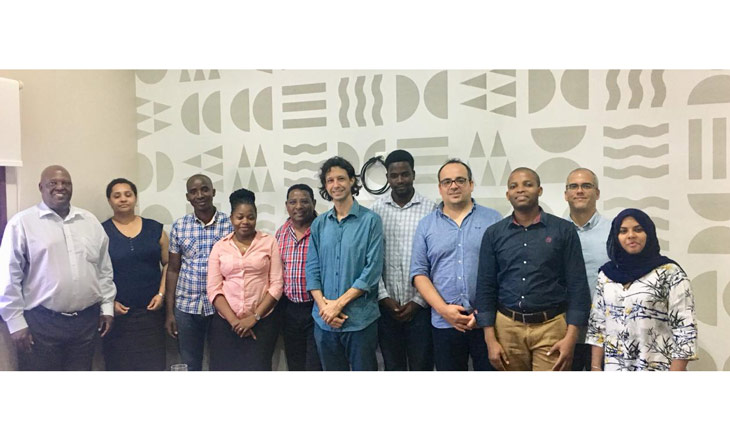
This initiative is part of the BIOFUND effort in partnership with the COMBO project, an initiative implemented by WCS, Forest Trends and Biotope with financial support from AFD, FFEM and Mava Foundation and MITADER in developing national capacity on Ecological Impact Assessment, application of Mitigation Hierarchy and Biodiversity Offsets through training and sharing lessons learned in Africa and worldwide on best practices in Environmental Impact Assessment, No Net Loss, Mitigation Hierarchy and Biodiversity Offsets.
This training program has started in 2016 and over 200 technicians from government, civil society, private sector and academia were trained in this thematic area at national level.
Launching of Bio Card
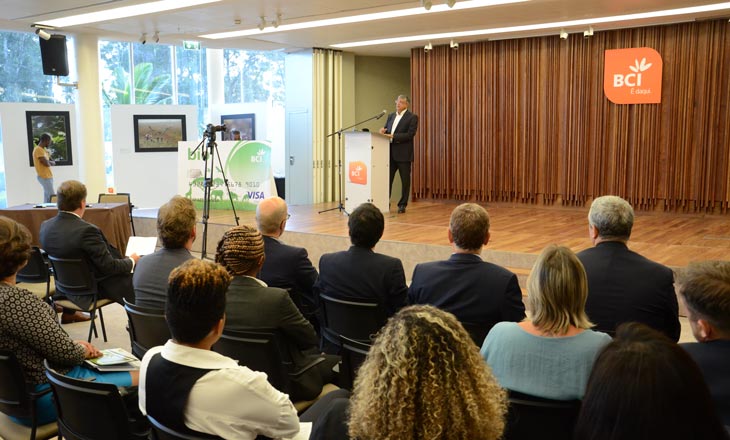
Bio Card is the first biodegradable debit card in Mozambique, the product of a partnership between Banco Comercial de Investimentos (BCI) and the Foundation for Biodiversity Conservation (BIOFUND), launched on December 08, 2017.
This innovative product of biological origin is developed with PLA (polylactic acid) material, a substitute for petroleum-based plastic obtained from renewable sources (maize), which can be recycled and incinerated or landfilled because it is non-toxic.
In the use of the Bio Card in POS, BCI channels a percentage (0.04%) of the amount transacted, to BIOFUND, at no cost to the client, allowing all Mozambicans to contribute actively to the conservation of the rich biodiversity of our country. See the Bio Card brochure here.
The card launching ceremony took place at the Auditorium of the BCI Headquarters Building, with the key moments being the signing of the Memorandum of Understanding between BCI and BIOFUND, by His Excellency BCI Executive Committee Chairman, Dr. Paulo Sousa, and His Excellency Chairman of the Board of Directors of BIOFUND, Dr. Abdul Magid Osman, and the symbolic delivery of Bio Card.
This is BIOFUND’s first partnership with a private Mozambican institution, an important milestone in involving local partners in the country’s conservation.
The adherence to this card has been very good, and there have been regular initiatives to disseminate the card to the level of the provinces, the most recent being in Inhambane, on the BIOFUND Exhibition / Biodiversity Fair under the theme “A Culture of Conservation and Sustainable Development. ” The BCI and the bio card were present at the solemn session of the BIOFUND event and also during the 3 days of the Biodiversity Fair at the ESHTI.
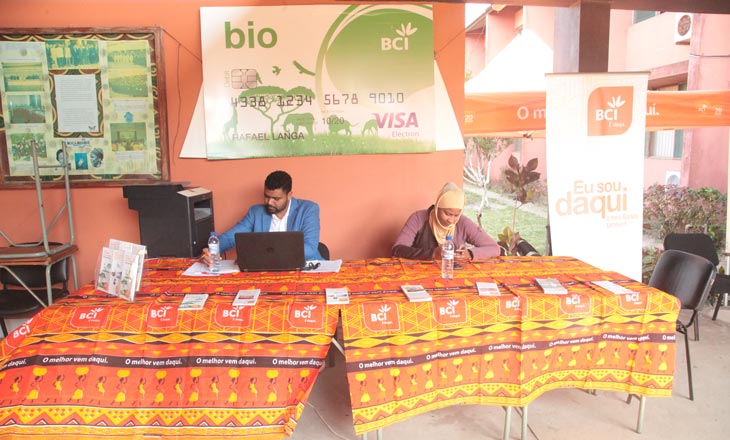
Contact your BCI account manager or branch to learn how to apply for a bio card!
Get more information on launching the Bio Card in the following links:
BIOFUND participates in the 8th Annual Assembly of the Consortium of African Funds for Environment (CAFE)
Consortium of African Funds for Environment (CAFE) met from September 3 – 7, 2018 in Kasane, Botswana, at its 8th session on climate change and finance. This is an annual rotative event amongst country members. This event was organized by the “Botswana Forest Conservancy” (FCB) and was funded by CAFE and RedLAC (Network of Environmental Funds of Latin America and Caribbean).
Around 50 participants have attended the meeting, including representatives of 21 funds, of which 17 are African and 4 representatives from Latin America and the Caribbean – RedLAC, representatives of government, civil society and international organizations invited to present, discuss and deliberate on financing mechanisms for biodiversity conservation and climate change mitigation.
Considering the various challenges and opportunities in this sector during this week were presented and discussed a variety of modules for biodiversity finance in Africa. International experiences were presented by international experts, to promote discussions on resource mobilization, knowledge sharing and engagement of other sectors to contribute for biodiversity conservation.
BIOFUND used this opportunity to share results from Inhambane Biodiversity Exhibition and Fair and the Biodiversity Offsets Program.
CAFE was established in 2011 to build a learning community that shares best practices and seeks innovative financing mechanisms to promote conservation, environmental management and sustainable development in Africa.
For more information visit: consortiumcafe.org and www.redlac.org
Environmental Education Program For Students Of The Primary Education Of The Province Of Inhambane
During the 4th Biodiversity Exhibition held in Inhambane from 3 – 12 August 2018, entitled “A Culture of Conservation and Sustainable Development”, BIOFUND organized three days of environmental education for students from schools around the Conservation Areas of Inhambane.
Twenty-six students participated in the event, 10 from 1st and 2nd grade Covane (within the Zinave National Park), 6 from the 1st and 2nd Bazaruto EP (within the Bazaruto Archipelago National Park) and 10 from the 1st and 2nd grade of Conguiana (Praia da Barra).
The objective of the environmental education program was to develop educational activities aimed at enabling / qualifying students (from 9 to 14 years old) on techniques and tools to minimize the impact of garbage on the environment; Provide conditions for acquiring knowledge, skills among students, as well as for developing attitudes towards individual and collective participation in solid waste management and Sharing knowledge and management practices of coastal and marine resources through participation in guided tours to the mangrove and marine sanctuaries.
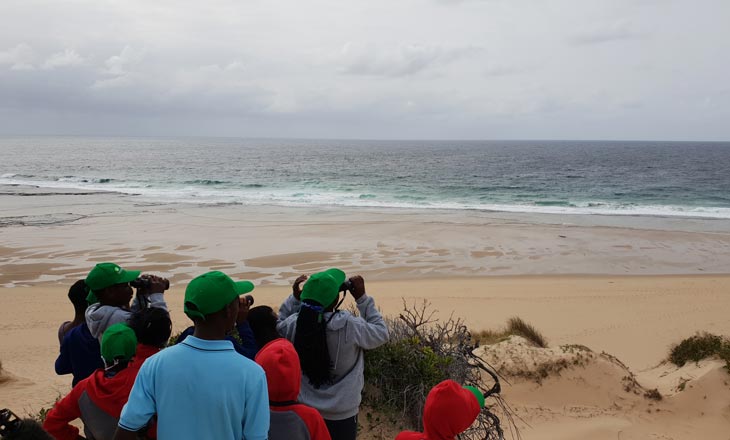
These activities were carried out with the support of a facilitator of environmental education and the following:
Whale watching was an important time for students to have visual contact with one of the largest marine mammal species. Once this was the period of occurrence of Whales on the Mozambican coast was a unique opportunity for students.
The observation of the plankton (main food of the shark) with the aid of microscopes. Prior to this observation of the plankton, an introduction was made on the Whale Shark and its way of life, to facilitate the understanding of the subject.
Guided tour of the greenhouse mangrove seedlings in the city of Inhambane, in partnership with the Fisheries Research Institute of the of the Provincial Directorate of the Sea, Inland Waters and Fisheries of Inhambane, where they learned about what are mangroves, distribution of species of mangrove (red mangrove and white mangrove), the importance of mangroves for coastal protection, erosion control, the use of wood cuttings, among other services provided by mangrove and the role of institutions and people in their protection.
Guided tour of a community conservation marine area, in partnership with Ocean Revolution, to learn how communities have managed it. It is a natural area that is managed in a way to guarantee the livelihood of the communities, without jeopardizing the conservation of the area.
Tofo beach cleaning preceded by a lecture held at the All Out Africa, where the types of garbage that came to shore were explained in various ways.
Basic demonstrations on waste, with the support of environmental activist Carlos Serra, students had an opportunity to be sensitized about the importance of removing plastic waste from the environment.
Artistic activities, where students learned to take advantage of cultural manifestations of the community to develop educational activities, designed the most common animals that they find in their zones of origin and emblematic.
Introspection games, in partnership with MMF, fun on the environment, especially self-discovery of elements that can find in the environment, marine animals such as turtle, marine pollution.
In addition to these activities, students had the opportunity to participate in the Biodiversity Exhibition, Fair, film projection, didactic games (Sack Race, Rope Pull, Spider Web, Cards).
During the 3 days of activities students were evaluated for their attitudes, engagement and quality of responses after the activities they participated in. The award of the five best students was attended by Professor Almeida Guissamulo.
These activities were carried out with the support of several partners, with special emphasis on: Marine Megafauna Foundation, All Out Africa, Ocean Revoluction, IIP, CCS Italy, PN Zinave, Peace Park Foundation (PPF), PNA Bazaruto, African Parks ), Let’s do it, among others.
4th Exhibition and Multimedia Fair - The Biodiversity of Mozambique: Balance of the experience in Inhambane!
The exhibition and multimedia fair is an activity included in the 3rd strategic pillar of BIOFUND “raising awareness of the importance of biodiversity conservation”, developed with the aim of promoting environmental sensitivity and the importance of biodiversity conservation in all layers of the population.
The exhibition took place in Inhambane province, specifically in the city of Inhambane and lasted 10 days, from 3 to 12 August, at the Escola Superior de Hotelaria e Turismo de Inhambane (ESHTI).
Throughout these 10 days, we have received more than 5000 visitors, mostly primary and secondary School students, university students and graduates of the IFPs (Teacher colleges). In total, 24 schools in Inhambane and 9 schools of Maxixe have had the opportunity to participate in the activities of the 4th edition of the Biodiversity Exhibition and thus to have contact and develop sensitivity for the theme of biodiversity conservation.
As a complement to the exhibition, the program was enriched with other activities:
- Solemn Session of Inauguration of the Biodiversity Exhibition, chaired by His Excellency the Governor of Inhambane Province, Daniel Chapo.
- Forum on “Harmonizing Economic Development and Conservation of Biodiversity”, held on the first day of the event and attended by national and international experts, having about 200 participants.
- Lecture and bird watching session of Inhambane Bay with an international expert, Gary Allport
- Launching of the Map of the Arts for the city of Inhambane, presided by His Excellency the Governor of Inhambane Province.
- Photographic exhibition on the biodiversity of Mozambique, at the Casa do Capitão Hotel in Inhambane, during the whole event.
- Environmental education sessions that reached all the schools participating in the event.
- More than 25 lectures, debates and mini-courses, inserted in topics of relevance for the province, which had the audience of more than 1,400 participants.
- 10 days of continuous exhibition of films, attended by more than 2 200 participants.
- 5 days with specific activities for children, including didactic games and drawing contests, organized by FUP and CCS Italia.
- Biodiversity fair, held during 3 days and attended by about 30 exhibitors from the Government, Academia, NGOs and conservation and sustainable development projects. In the days of the fair were present more than 1300 visitors.
- Field visits, including beach cleaning, whale watching, visits to mangrove areas and marine conservation areas, were attended by children from Zinave (10 children), Bazaruto (6 children) and Barra (10 children).
- Film screening and networking at key sites in the city of Inhambane that involved partners from various national and international organizations.
Seeking to awaken in the generation of tomorrow the care for biodiversity, the event was directed to children and adolescents, educational and recreational activities that stimulate the taste for art and imagination around biodiversity, viewing educational films on conservation of natural resources, as well as contests where the winners were symbolically awarded. Distributed prizes included school supplies (backpacks, notebooks, pencils, pens, etc.), musical instruments connected to the province, material for field activities (lanterns, water bottles, tents, radios, etc.).
This 4th edition of the BIOFUND itinerant exhibition was held in partnership with the Pedagogical University (UP) and the Provincial Government of Inhambane, with the support of several national and international partners.
It was remarkable and very positive a variety of synergies and working capacity of all those who in one way or another, were involved in the preparation and holding of the event. To everyone, thank you very much for the support! Khanimambo!
African Ranger Award 2018 - Congratulations to a true custodian of nature
Miguel Gonçalves, Park Warden of the Special Reserve of Maputo (SRM) and Partial Marine Reserve of Ponta do Ouro (PMRPO) – the Mozambique components of the Lubombo Transfrontier Conservation and Resource Area, received this month the African Ranger Award of 2018 a prestigious accolade presented by Paradise Foundation International and Alibaba Foundation.
The award honors 50 rangers in Africa who go beyond the call of duty in the battle against wildlife crime and play a pivotal role in protecting and conserving natural heritage and biodiversity.
For more information see here.
Multimedia Exhibition on Biodiversity – Inhambane
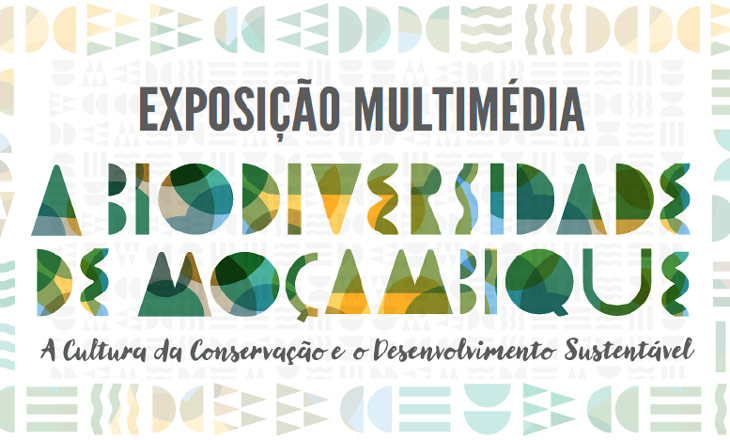
SAVE THE DATE 3-12 AUGUST 2018
Inhambane City
BIOFUND will hold the fourth Multimedia Exhibition on Conservation, as part of its strategy to promote the consolidation of a favorable environment for conservation in Mozambique.
This event aims to share information and knowledge about the importance and need to conserve biodiversity in our country, with emphasis on the wealth, risks and challenges in the province of Inhambane, identifying and involving partners and beneficiaries from different areas of action.
This initiative has the support of the Ministry of Education and Human Development (MINEDH), the Government of the Province of Inhambane, the Pedagogical University (UP), the University Foundation for the Development of Education (FUNDE / A Politécnica), the Pedagogical University Foundation (FUP) and the National Administration of Conservation Areas (ANAC), among others.
The choice of Inhambane province for this year was because it presents a great biodiversity and, at the same time, great challenges to guarantee a sustainable development in the South of the Country. Inhambane is also the province with the largest number of the country’s conservation areas, including the National Pomene Reserve, the National Park of Bazaruto Archipelago, the Total Protection Zone of Cabo São Sebastião and Zinave National Park, from which the last three are beneficiaries of BIOFUND support.
This year, in addition to the general themes, we added a special theme, “Harmonizing economic development and biodiversity conservation in Mozambique” – Biodiversity Offsets: taking advantage of innovative financing solutions for biodiversity conservation in Mozambique, for which we are seeking partners who want to share experiences, presentations or materials for display. This theme, supported by Counterpart International / USAID, COMBO Project (a WCS, Biotope and Forest Trends initiative supported by the FFEM) and project K (supported by Funbio, CAFÉ and RedLac), is of great preponderance as a way of reconciling economic development with the necessary protection of the renewable resource base for future generations.
The main activity of the event is an interactive exhibition of biodiversity that includes more than 80 panels illustrating habitats and species from the north to the south of the country, as well as specific topics of Inhambane, in an explanatory course conducted by guides specially trained for this purpose. There will also be a fair with stands of projects in Inhambane, lectures, seminars, mini-courses, film shows and educational games with the aim of sensitizing the new generations to environmental issues and arousing their interest in nature. This year there will also be a route by the city of Inhambane with complementary activities such as bird watching, photography exhibitions, movie screenings, among others, happening a bit throughout the city.
The event is open to the public and the detailed program will be available shortly.
World Turtle Day
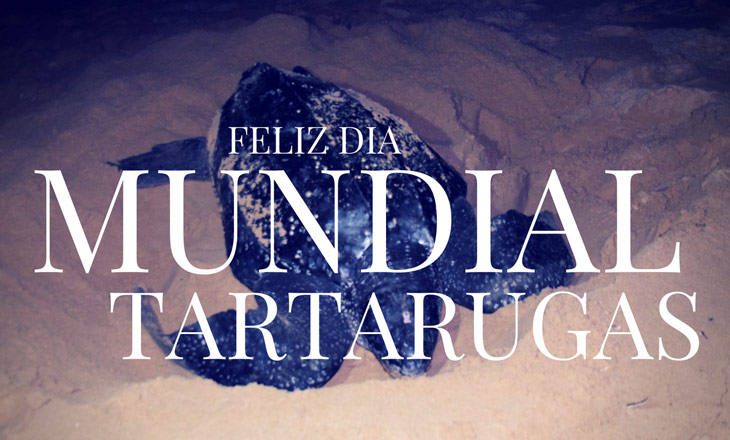
The World Turtle Day is celebrated on June 23rd. The date was established in 2000 by the American Tortoise Rescue (ATR), with the aim of raising awareness about the need for rehabilitation, adoption and protection of turtles.
The non-profit organization was created to help protect all types of turtles, and this day was created to help people learn more about animals and how to preserve them. The ATR has guidelines available online for your treatment, which include instructions on what to do if a person encounters a turtle on a road, how to ensure fair treatment of animals and more.
The purpose of World Turtle Day is to educate people about the things they can do to protect turtle habitats. It is also a celebration of the joy that these reptiles bring daily to so many people.
There are also several resources available that teachers can use to develop World Turtle Day classes in schools. This is an important step in raising the future generation’s awareness of the threats that turtles face, which is also something that children like to get involved with.
World environment day
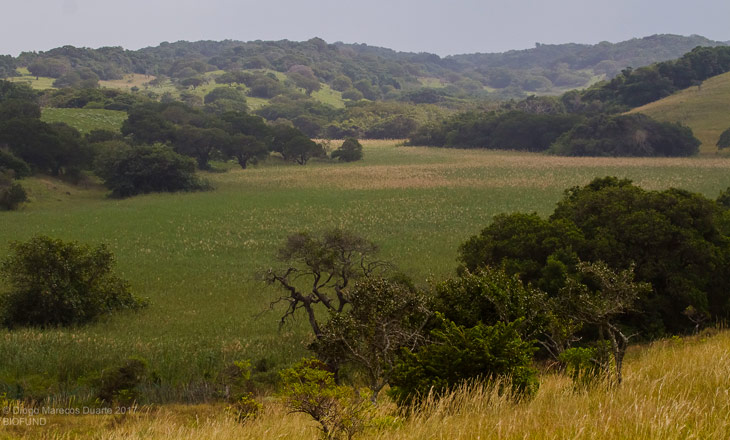
World Environment Day is celebrated on 5 June. The date was established by the United Nations in 1972 with the main objective of making civil society aware of the importance of preserving natural resources in order to create a critical and active attitude towards the environmental problems that exist on the planet.
Each year, the United Nations presents a theme that serves as a starting point for the development of actions to celebrate World Environment Day in more than 100 countries, with a variety of activities planned for this theme. For 2018, the theme “End Plastic Pollution” was chosen, with the aim of inviting governments, the private sector, communities and individuals to reduce the production and excessive consumption of disposable plastic products, which are difficult and long to decompose, polluting the oceans, damaging marine life and affecting human health.
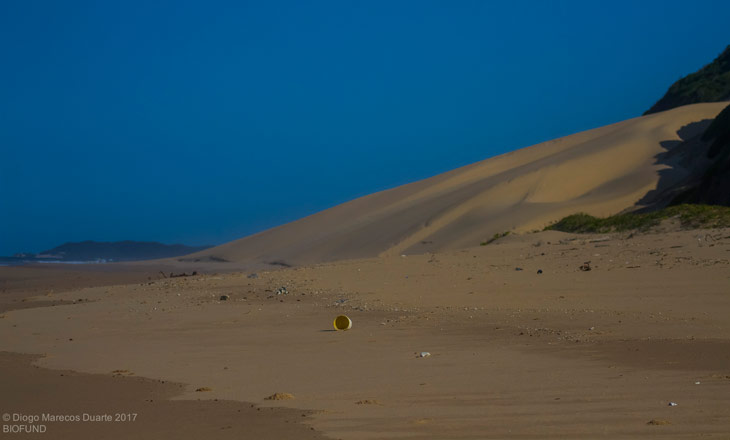
Over the last decade, humanity has produced more plastic than in the past century. Every year, between 500 billion and 1 trillion plastic bags are consumed around the globe, and every minute 1 million plastic bottles are bought. Half of the plastic used by humans is for one-time use, and at least 8 million tons of plastic a year goes to the oceans – it’s as if the entire cargo of a plastic garbage truck is dumped every few minutes into the seas. This material currently accounts for 10% of all man-made waste.
Since it was established in 1972, World Environment Day has become a global platform for public awareness of environmental issues. In the United Nations assessment, the date is an opportunity for all to actively engage in the protection of nature.
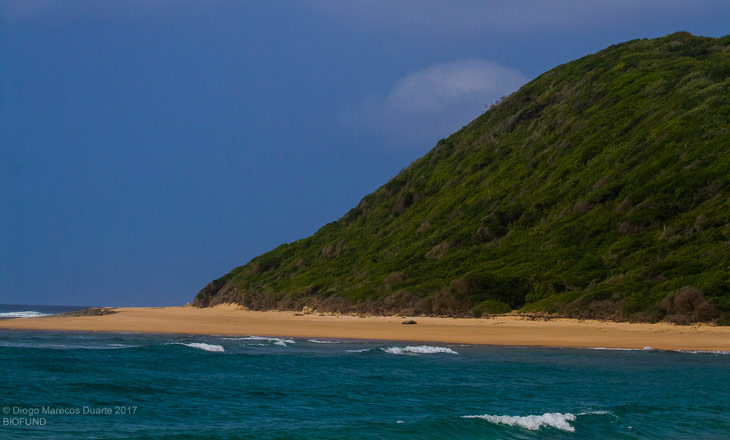
In Maputo, the celebrations will take place in the Municipal Field of Zimpeto, with the presence of hundreds of children and some public figures. The aim is to make young people aware of the dangers of waste, especially plastic.
The broader scope of action is the responsibility of the National Environment Directorate / MITADER, the Municipal Council of Maputo and New Sigma Holding, Lda..
BIOFUND organizes training in planning and finances for Conservation Areas
From May 28th to June 1st, a training course in planning and finances for all Conservation Areas in the Country was organized by BIOFUND in partnership with the National Administration of Conservation Areas.
This training builds on BIOFUND’s administrative and financial procedures manual as a way of equipping the Areas with technical capacity to implement projects funded by the Foundation.
The training took place in Maputo City and was attended by 25 participants from all the different Conservation Areas of Mozambique, represented by finance, planning and procurement technicians.
This was the second training session conducted by BIOFUND with a focus on administrative and financial procedures. It was the first in 2016, followed by training in project preparation conducted in 2017 with the managers of the Conservation Areas.
The training was designed to include the different aspects of results-oriented planning, procurement and budget management, from practical exercises and adapted to the reality of the Areas, taught by the Academy of Management and Public Finance.
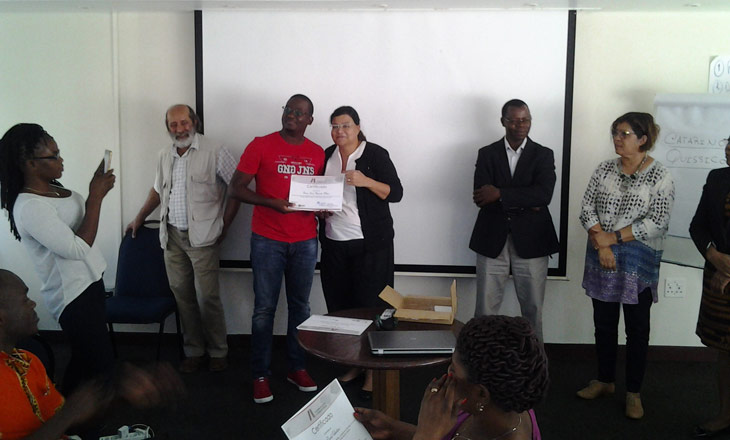
Fenias Nhari, accountant at Vilankulos Bravio Sanctuary in the Total Protection Zone of Cabo de São Sebastião, participant of this training for the second time, said that it was a very useful recycling and a great opportunity to remedy the difficulties that he has faced during the financial execution, and leaves the training with a new vision and equipped with tools to improve their daily work.
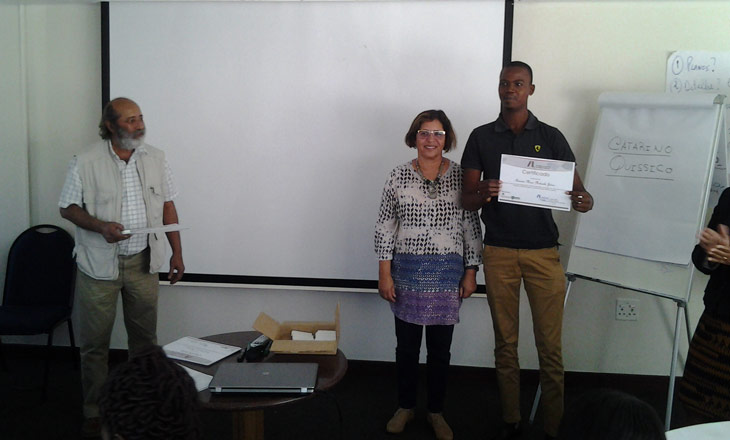
Armindo Matavel, of Limpopo National Park, who attended the training for the first time, believes that the training served to iron out the doubts of day-to-day planning issues, organization and also the monthly accountability report that has been submitted to BIOFUND.
These training and capacity building for the Conservation Areas are part of the second objective of the BIOFUND Strategic Plan and are intended to be an annual activity, in order to allow the recycling of technicians.
Forum Harmonizing the Development and Conservation of Biodiversity in Mozambique
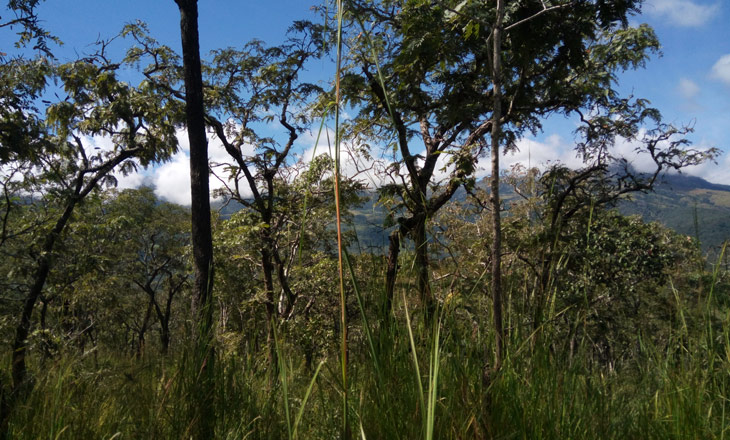
BIOFUND will organize on the 24th of May from 17.00 to 19.30, the Forum on the need for harmonization of economic development and biodiversity conservation in Mozambique and draws attention to the possible consequences of non-observance of international best practices in the economic development of the country.
This theme will be addressed in the forum specially convened for this purpose, in parallel with the holding of the Sixth General Assembly of this Foundation, in the Montebelo Indy Maputo Congress Hotel (Indy Village), on 24 May. The event will be attended by government officials, bilateral agencies, private sector, academy and civil society.
This initiative, which has partners such as Counterpart International / USAID and RedLAC / CAFÉ, COMBO / WCS Project and the BIOFIN / UNDP Project, is part of a BIOFUND campaign, under its Biodiversity Offset program to disseminate concepts such as Mitigation Hierarchy, No Net Loss and Biodiversity Offset exploring opportunities for its dissemination and regulation.
At a time that several media are often reporting the damage caused to the environment and biodiversity by some development projects incorrectly conducted by its promoters, the subject is extreme relevant.
For more details about the event click here.
World Migratory Bird Day
(Unifying our voices for bird conservation)
May 11th, 2018 is the International Day of Migratory Birds. The date was established by the Agreement on the Conservation of African-Eurasian Migratory Waterbirds (AEWA), along with the Convention on the Conservation of Migratory Species of Wild Animals (CMS), with the purpose of celebrating and also initiating educational programs and events for the awareness and preservation of species.
This is a celebration that starts on the second weekend of May each year. The day is an opportunity to summon governments, organizations and individuals to save and conserve endangered species such as some migratory bird species.
The United Nations Environment Program (UNEP) reported that more than 40 countries will participate in the day’s activities, which seek to increase international cooperation for the conservation of migratory birds. As part of the celebrations, there will be festivals, educational programs, birdwatching tours and photo contests.
About 19% of birds on the planet are travelers. They face a large number of threats caused by human activities, such as habitat degradation, hunting and logging, among others. UNEP recalled that more than 1,200 birds are currently in danger of extinction.
Although the reasons for the decline in the number of migratory birds are complex and relate specifically to particular species, the overall decline is a reflection of the general environmental problem associated with the worldwide loss of habitats and biodiversity.
Being vulnerable to environmental changes, migratory birds depend on where they stop to rest and to feed during their long trips, but these sites are threatened or disappear as a result of agricultural development, urban, industrial and infrastructure.
Mozambique has wetlands along the coast frequented by migratory birds. Marromeu wetlands are the most notorious and global ecological value, so it was declared as a Reserve within the RAMSAR Convention. Other wetland areas of high ecological value are located in the Bazaruto Archipelago National Park and the Maputaland biodiversity hotspot region. The main migratory birds observed in Mozambique include: Pelecanus onocrotalus, P. ruescens, Ciconia episcopus, Anastomus lamelligerus, Ephippiorhynchus senegalensis, Mycteria ibis and Sterna caspia.
In addition to these places, the variety of birds you can see in Gorongosa National Park is simply breathtaking. The best time of year to see birds is November, when migratory birds arrive in Mozambique and the resident birds have bright plumage for the breeding season. Over 150 different species can be registered on a single day at this time of year.
Sources/Links
New Tourist Map of the Maputo Special Reserve and Ponta do Ouro Partial Marine Reserve
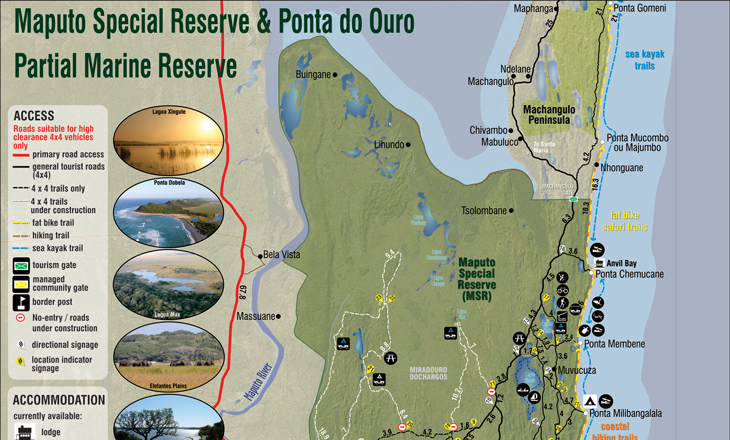
Consult here the brochure with tourist information about the Maputo Special Reserve and the Partial Marine Reserve of Ponta do Ouro.
6th BIOFUND General Assembly and discussion forum: Harmonizing the Development and Conservation of Biodiversity in Mozambique
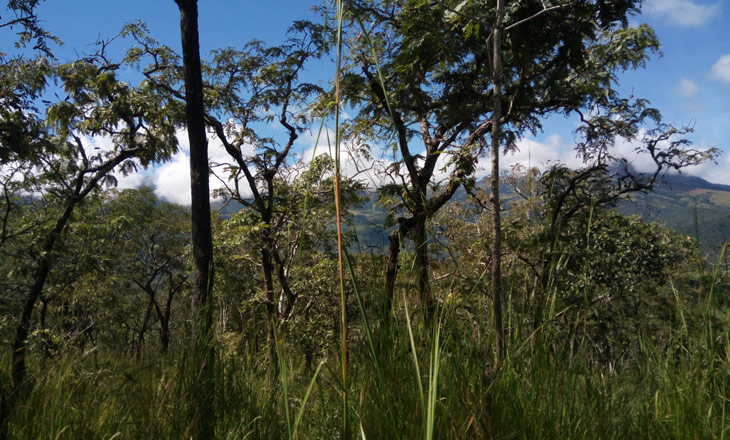
BIOFUND will hold its 6th General Assembly, as well as a discussion forum on Harmonizing Biodiversity Development and Conservation in Mozambique, and will focus on the analysis of the economic growth associated with the extractive industry in Mozambique in the last decade versus impacts on the conservation of biodiversity.
The event will take place on May 24th at 5:00 pm, at Montebelo Indy Maputo Congress Hotel in Maputo, and will consist of presentations and debates by national and international experts as well as a photographic exhibition and film.
For more details click here.
Population of hippos in good condition
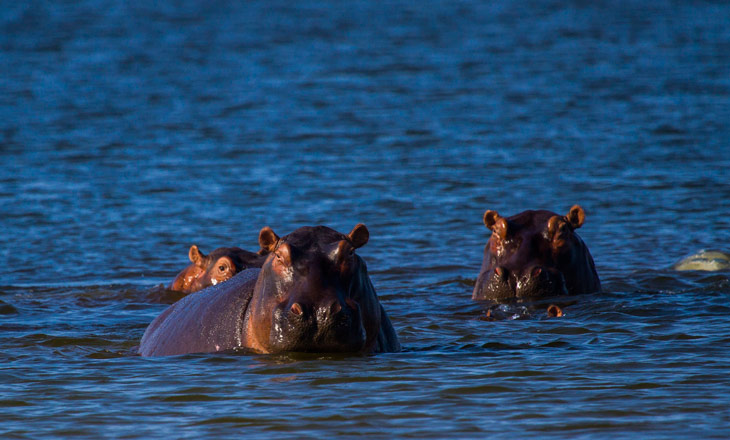
National air census reveals more than seven thousand animals
Mozambique currently has a population of hippos estimated at just over 7,000 animals, according to a recent aerial census commissioned by the National Administration of Conservation Areas (ANAC), funded by the World Bank through the MozBio project.
According to the study, more than 80 percent of the pachyderms are located in the watersheds of Cahora Bassa, with 4,420, Lugenda (802), Save (179) and Zambezi (122), it is imperative that these populations are managed to ensure their existence and long-term sustainability with a comprehensive management strategy involving all actors committed to conservation, including local communities.
The count was in response to a request by CITES-the Convention on International Trade in Endangered Species of Wild Fauna and Flora for Mozambique to show that the population of hippos was viable and their extraction through sport hunting was sustainable.
The results achieved are considered positive and surprising given that the count made in 2010 showed a decline in the order of just over 80 percent of the population of hippos, with an estimate of only 3,000 animals across the country.
This conclusion, exacerbated by the failure of the Mozambican authorities to provide updated data, led in September 2012 to CITES banning trade in hippopotamus trophies from the country, and it was necessary to reverse the situation and prove that the country has a viable population.
In April last year, data from this last count led to a sustainable management plan for the hippopotamus called “NDF-Non-Detriment Finding”, which made it possible to argue during the 69th CITES meeting recently held in Geneva-Switzerland for a lifting of the suspension imposed on the hunting of the hippopotamus in Mozambique and the export of the respective trophies.
At that meeting, the country emerged from the blacklist in this matter and managed to get an annual quota of operation corresponding to 1% of the total population estimated at 7,300 animals, meaning in practice that the country can extract about 70 animals per year.
The lifting of the interdiction has vital importance to the country, fundamentally at this time when several other species of wild animals are threatened with extinction due to poaching, and their exploration for trophies is increasingly problematic.
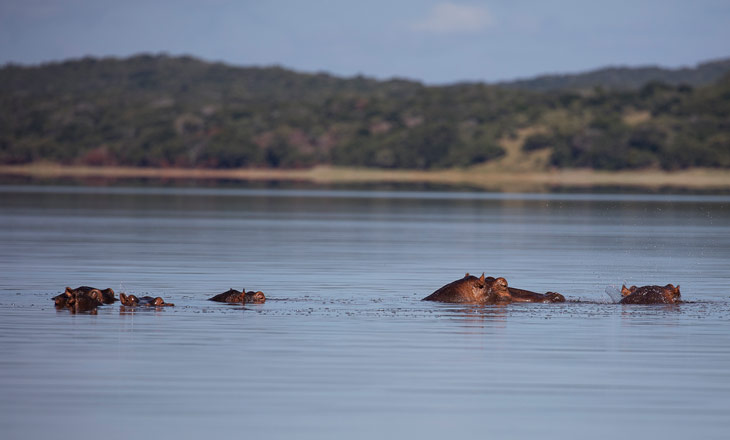
Hippopotamuses (Hippopotamus amphibius) are considered keys to ecosystems because of their important role in maintaining aquatic ecosystem processes, as well as in connectivity between terrestrial and aquatic systems.
The species and its exploration has the potential to contribute significantly to three of the four pillars of the Strategic Plan of the National Administration of Conservation Areas (ANAC), namely Biodiversity Conservation, Economic and Financial Sustainability and Community Development.

